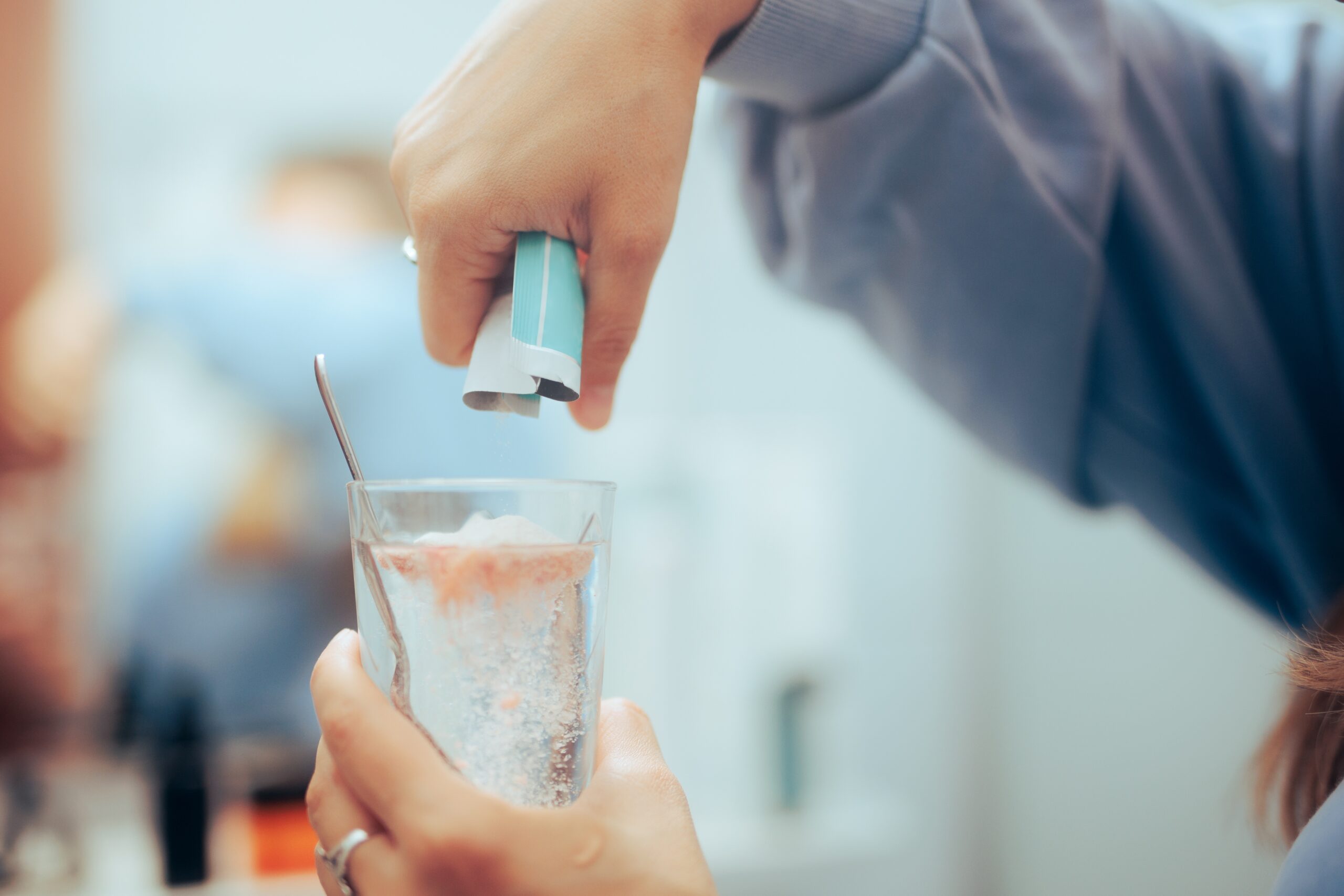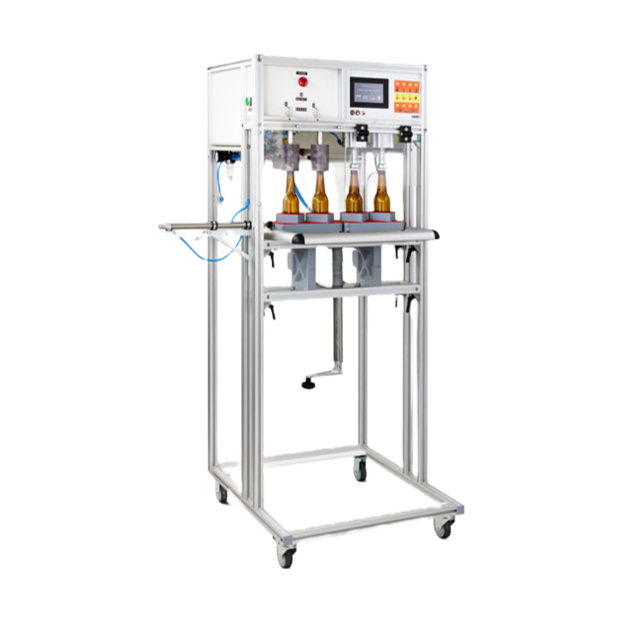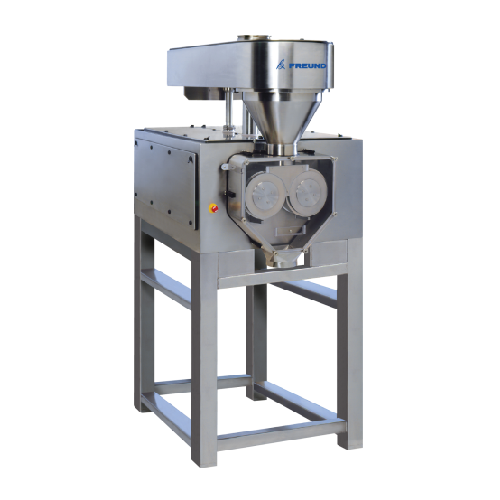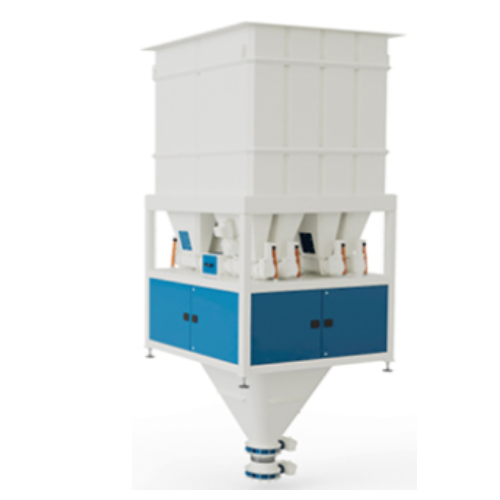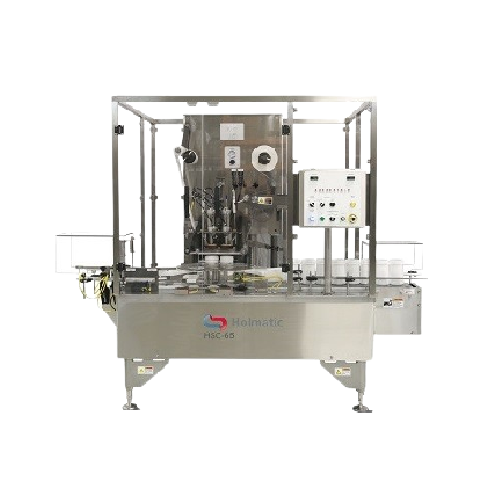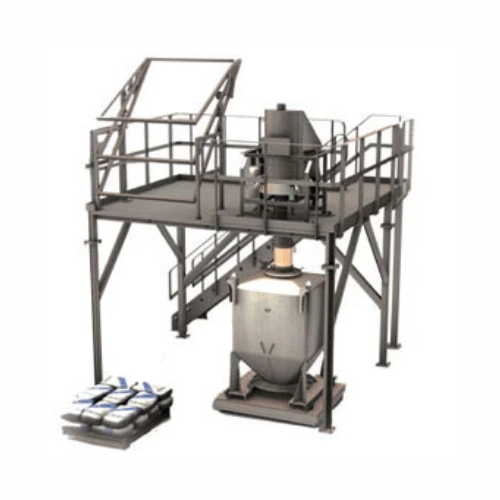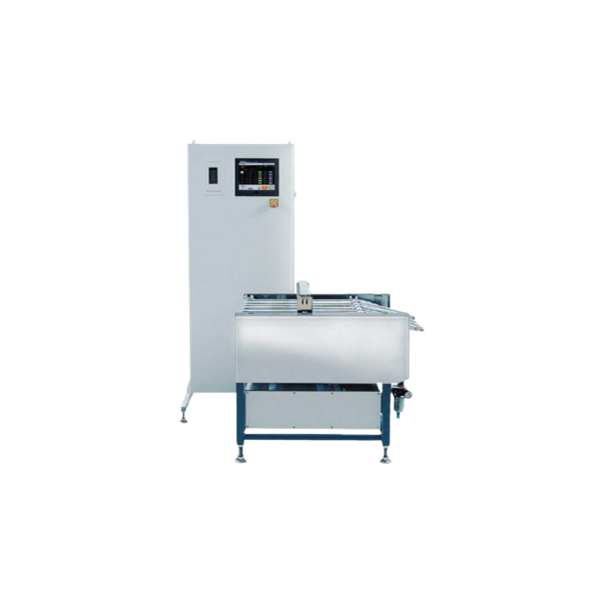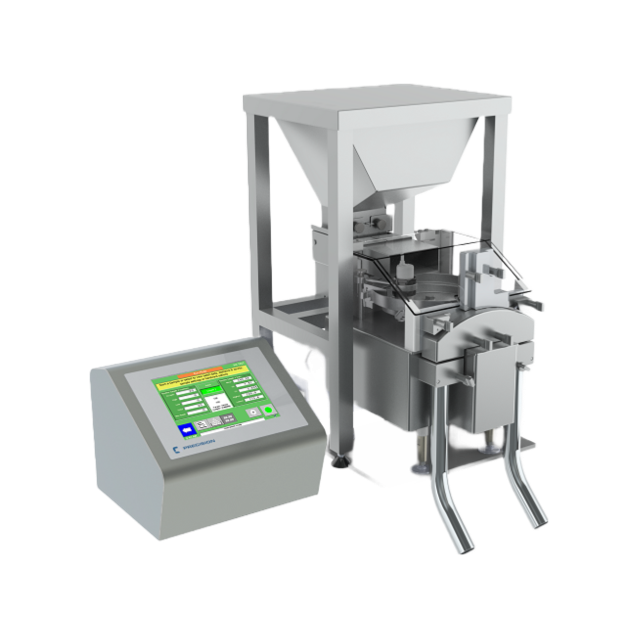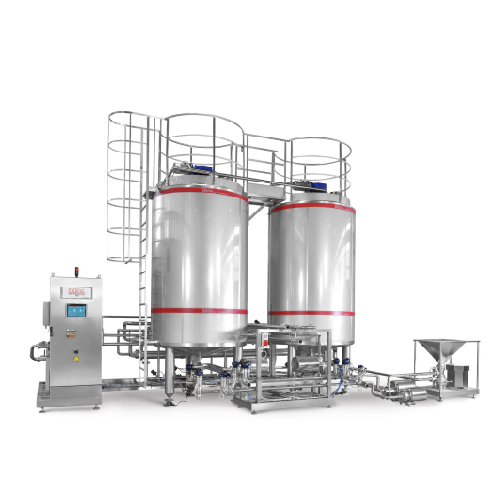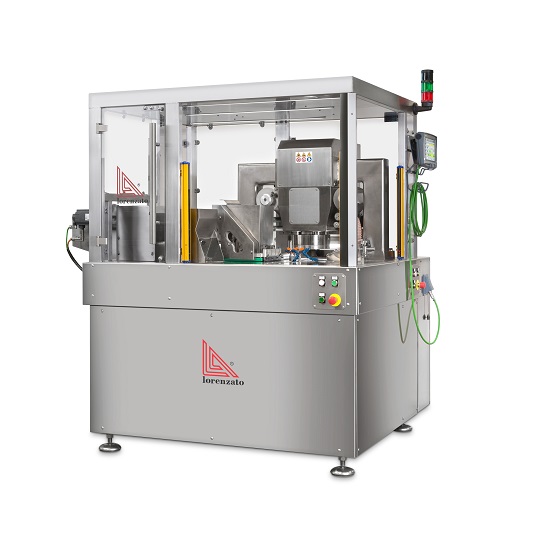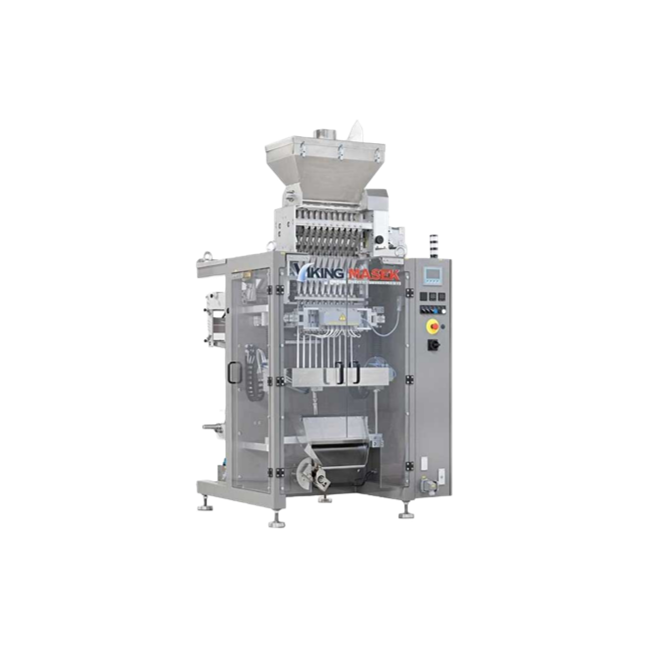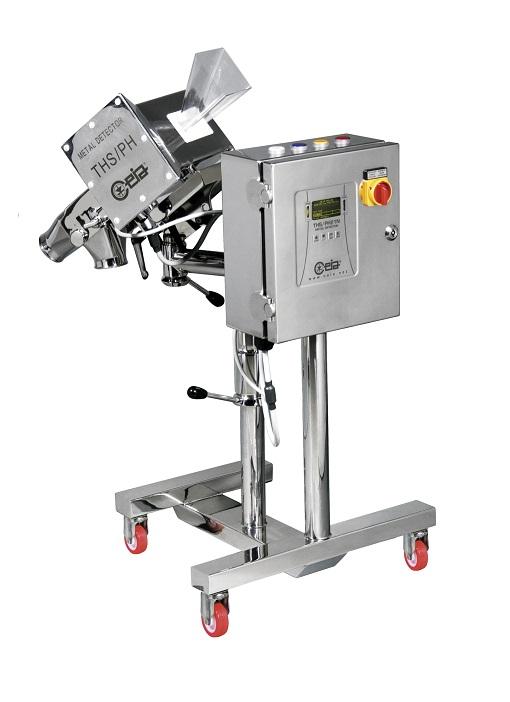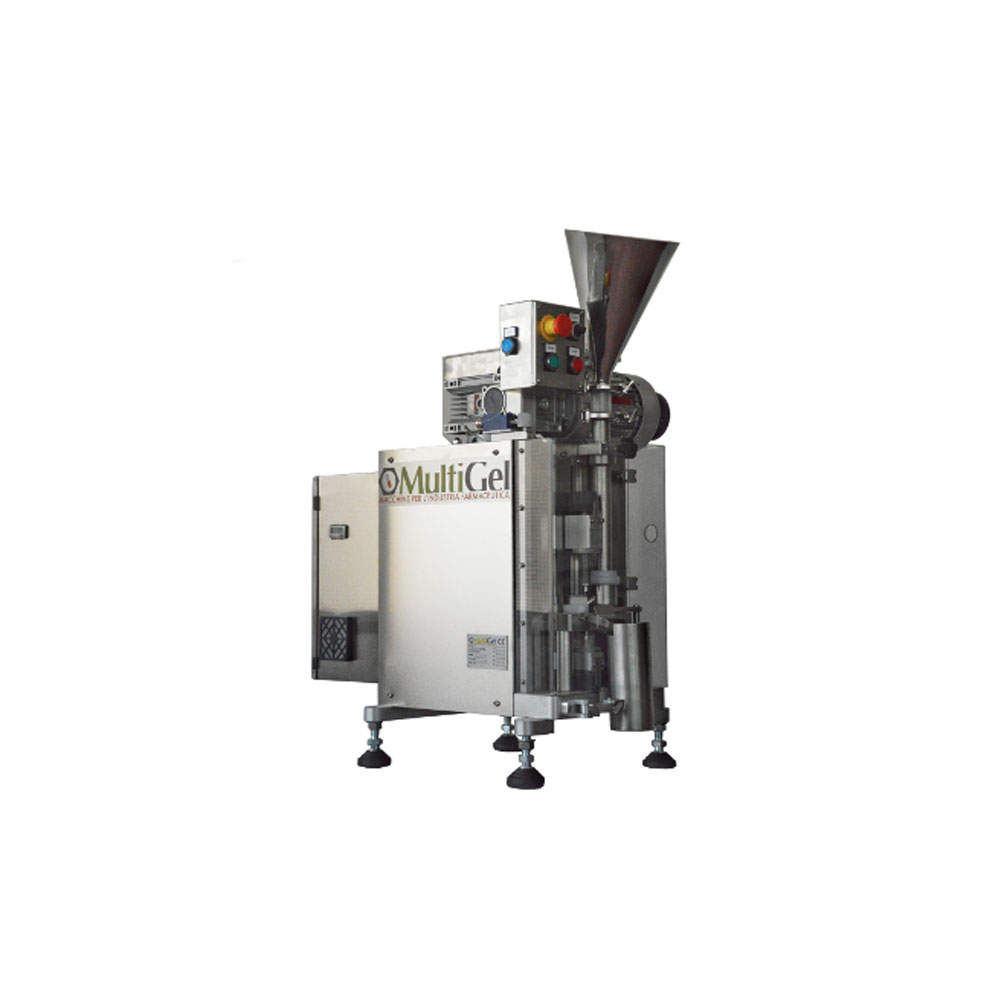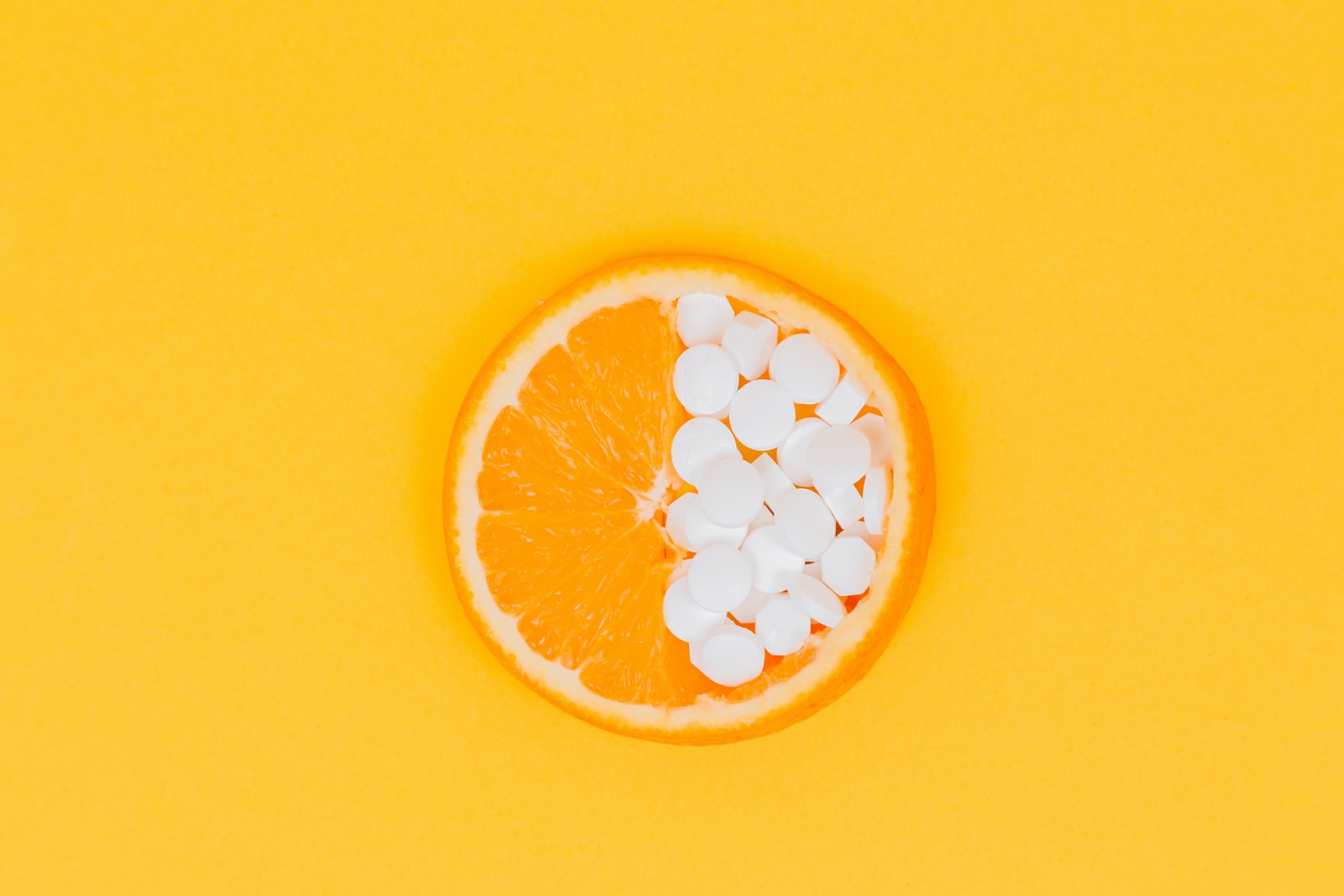
Making Vitamin C
Find innovative production technology for making vitamin c and connect directly with world-leading specialists
Vitamin C is an essential nutrient, but the human species lost the ability to produce it biologically during the course of evolution. Instead, we source the substance either from whole foods or vitamin C manufacturing. The chemical characteristics of the natural nutrient and processed compound are the same, but supplements offer higher concentrations, especially to persons with nutrient deficiencies.
Select your vitamin c process
Tell us about your production challenge
Sorbitol fermentation achieves nature-identical synthesis of vitamin C
Vegetables and fruits such as kale and lemon are rich sources of vitamin C. But the natural compound is susceptible to light and oxygen, which could dent the extraction yield of processing. Instead, industrial production often relies on crops like corn and wheat for vitamin C manufacturing.
Sorbitol derived from the feedstock undergoes a double cycle of fermentation and filter pressing to synthesize ascorbic acid. The two-step fermentation process recovers around 60% of the product with 95% purity.
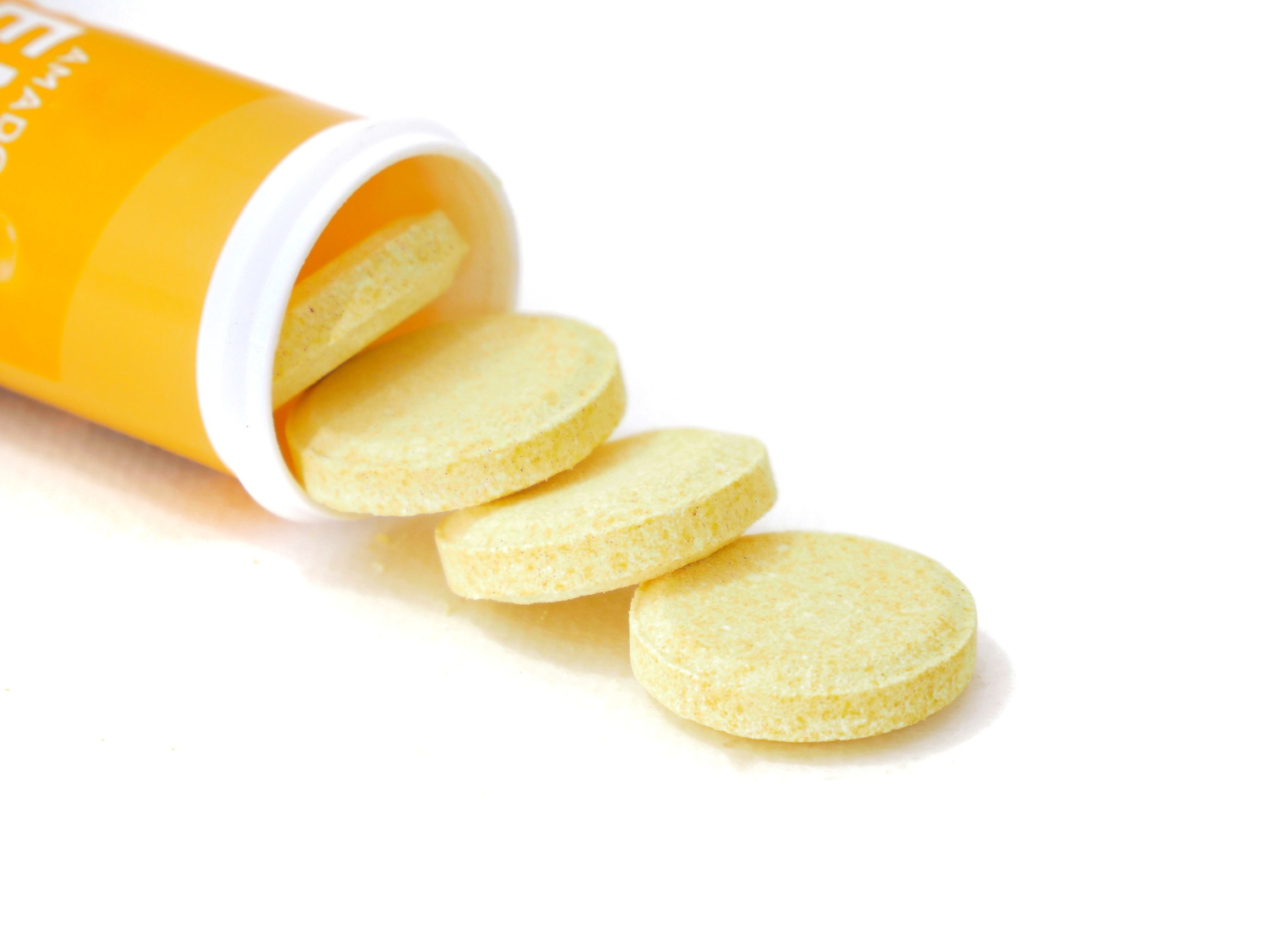
Chemically modified disintegrants break up the binders faster
The bioavailability of synthetic vitamin C is identical to that in food-derived vitamins. But the efficacy of supplements also depends on other ingredients besides ascorbic acid.
Disintegrating agents such as cellulose gum or starch facilitate absorption by the body after the dosage is ingested. Meanwhile, advances in this department are developing superdisintegrants that counter the strength of binders to speed up the release of the vitamins.
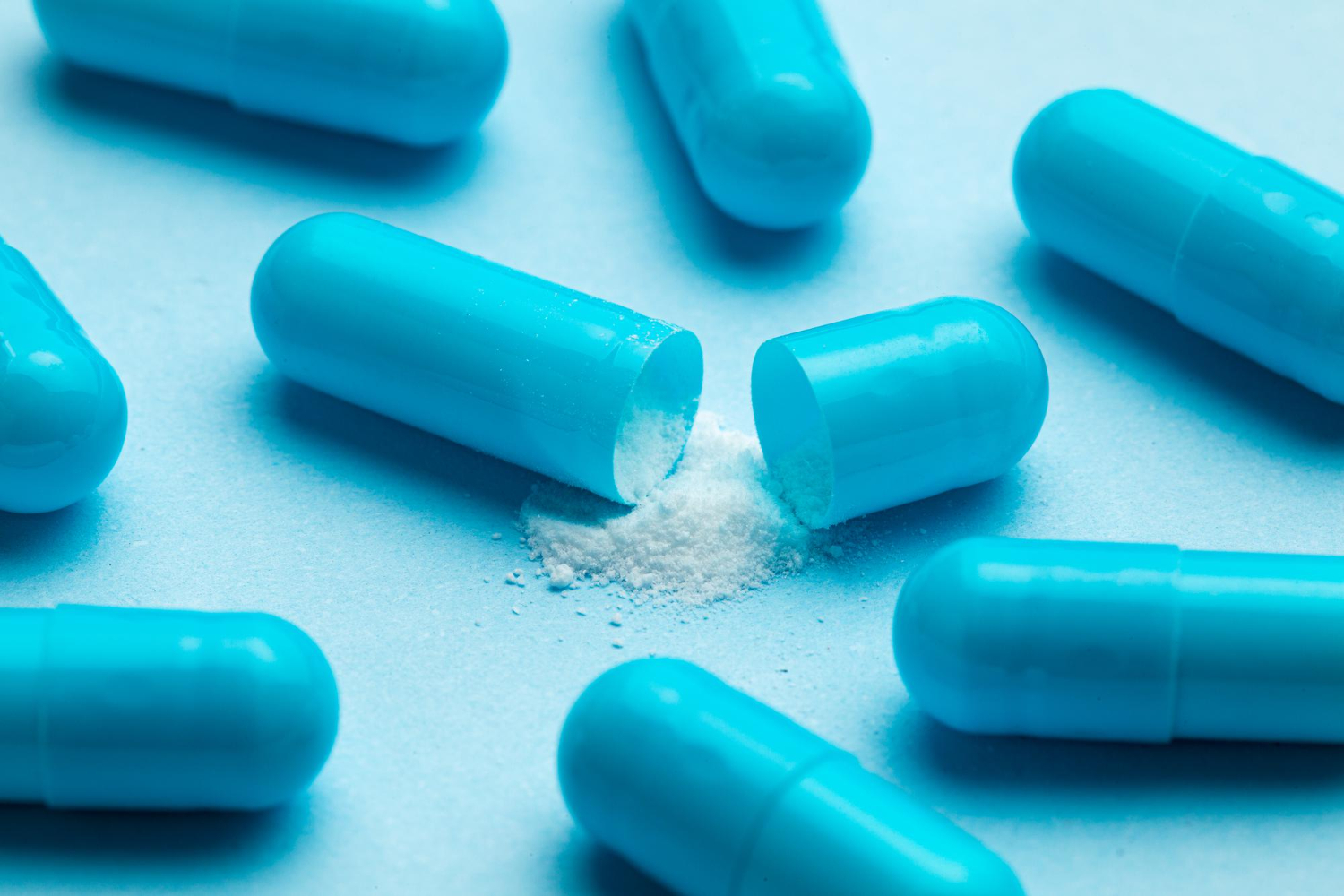
Add the right lubricants to address sticking issues during production
The flowability of the raw materials presents a significant challenge to vitamin C manufacturing. Apart from risks of caking, lack of flow can result in surface imperfections in the final capsule or tablet. Additives like magnesium stearate or stearic acid act as lubricants to decrease friction between the tablet and the forming die.
Silicon dioxide or other flow agents prevent the formation of lumps as the granules travel along the production line.
Label the packaging quantities in terms of the daily vitamin requirement
As a producer, you must always declare the nutrient reference values (NRV) of vitamin C supplements. International labeling guidelines stipulate that these values should be expressed in metric units or as a percentage of the recommended daily allowance (RDA).
In 2019, the Food and Agriculture Organization set the RDA of vitamin C for adults at 60 milligrams. However, national authorities may establish different quantities. Authorities in the US and EU recommend a daily intake of 80 milligrams for adult females and 90 milligrams for adult males.
Processing steps involved in vitamin C making
Which vitamin c technology do you need?
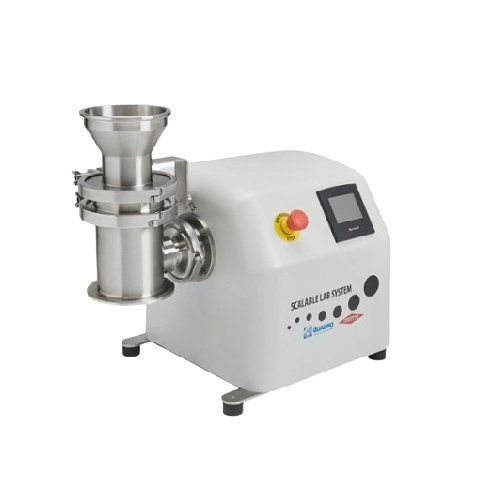
Lab-scale milling and processing platform
Effortlessly transition from lab-scale research to full production with a versat...
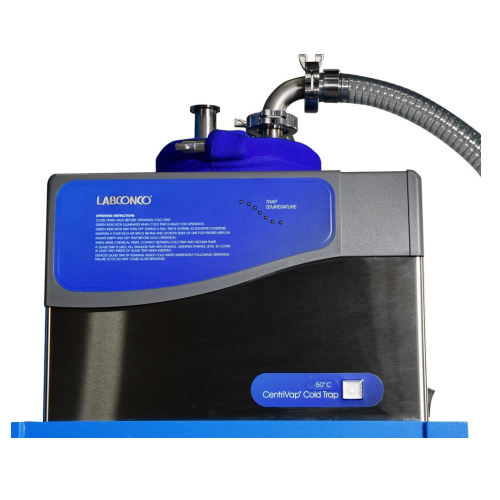
Vacuum cold trap for lab applications
Ensure efficient separation and purification in biopharmaceutical applications with t...
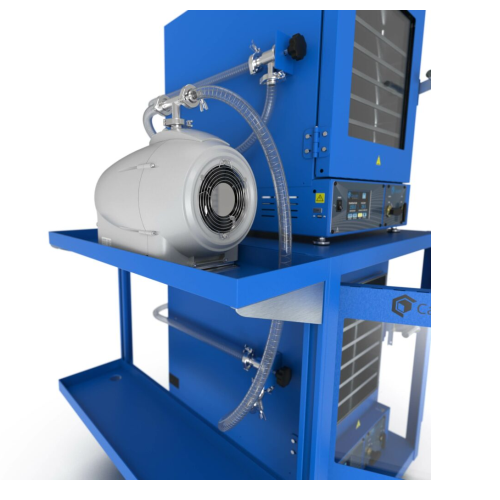
Dry scroll vacuum pumps for laboratories and manufacturing
Ensure a clean, oil-free environment with advanced dry scroll...
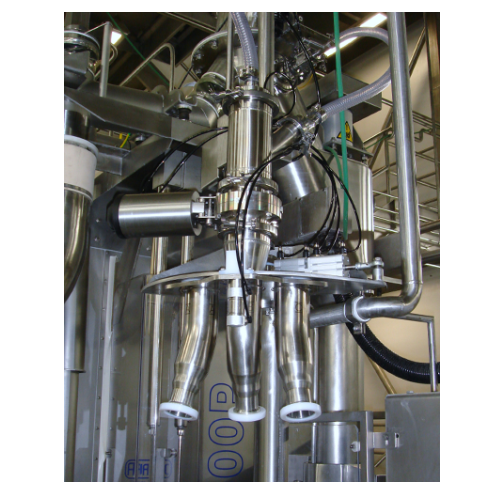
Powder sampler systems for food and dairy plants
Ensure precise quality control by implementing advanced sampling techniqu...
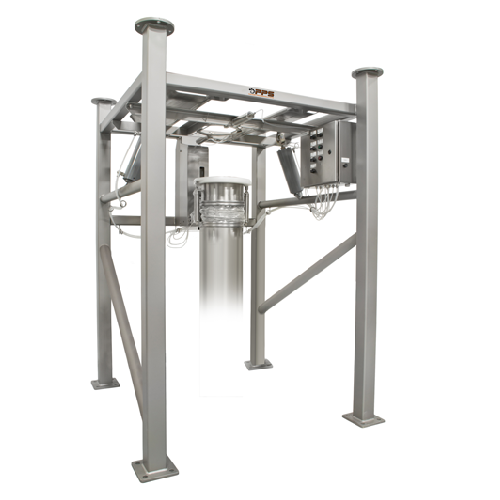
Powder unloading systems for food and dairy applications
Streamline your powder handling with customizable unloading syst...
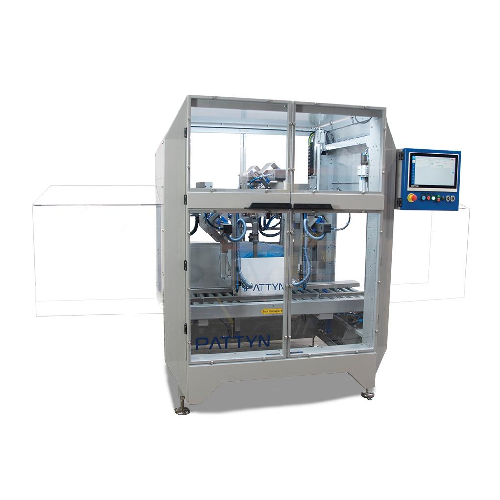
Automatic bag folding solution for bulk packaging
Enhance your production line efficiency and product protection by integ...
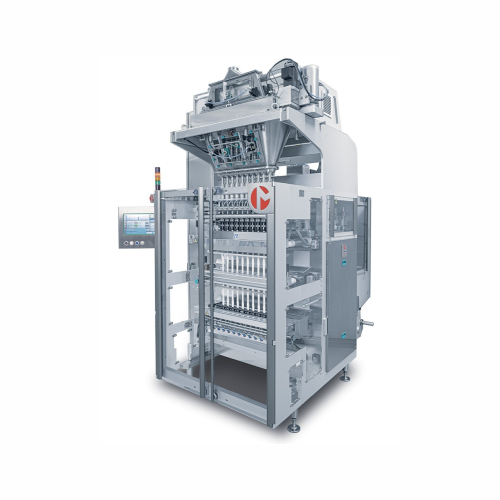
Stickpack filling and closing system for pharmaceutical powders
Achieve precise dosing and secure packaging for pharmace...
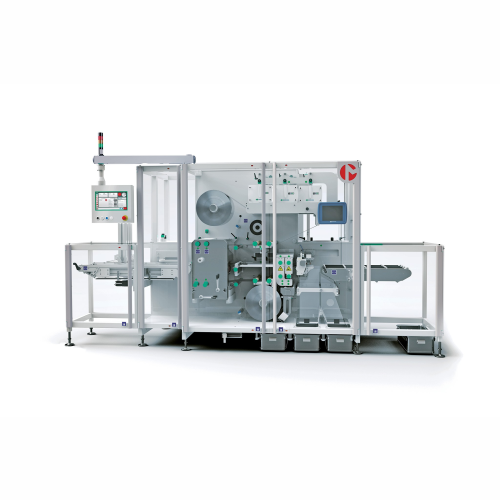
Strip packing for solid products
Ensure consistent quality and precision in packaging solid products with this advanced stri...
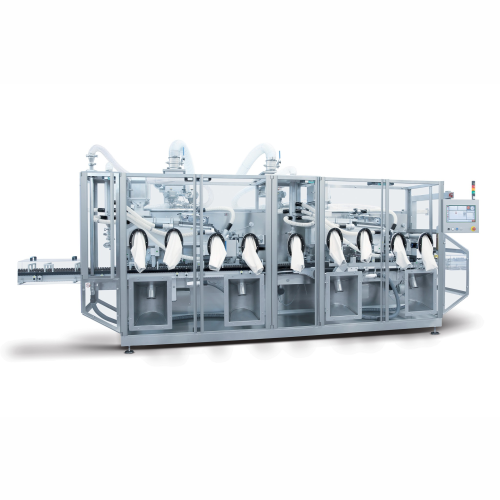
Electronic counting and filling system for vials
Efficiently streamline the packaging of solid dosage forms with a cutting...
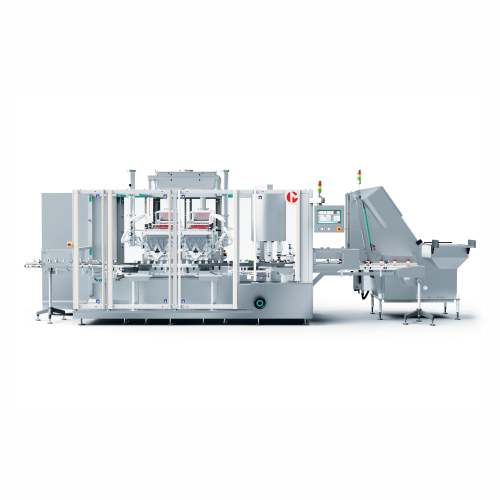
Counting and capping solution for tablets and capsules
Streamline your tablet and capsule production with a high-speed so...
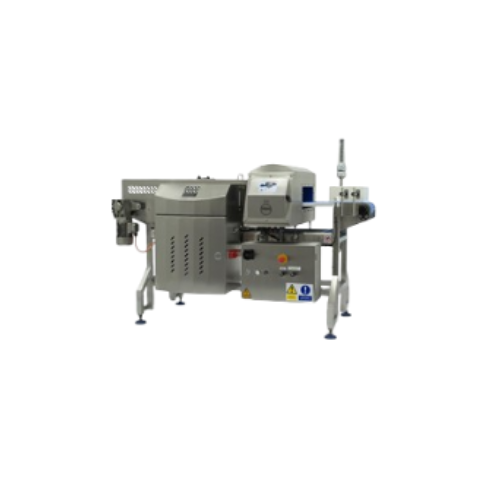
Metal detector for conveyorized applications
Enhance your production line by ensuring product safety with advanced metal d...
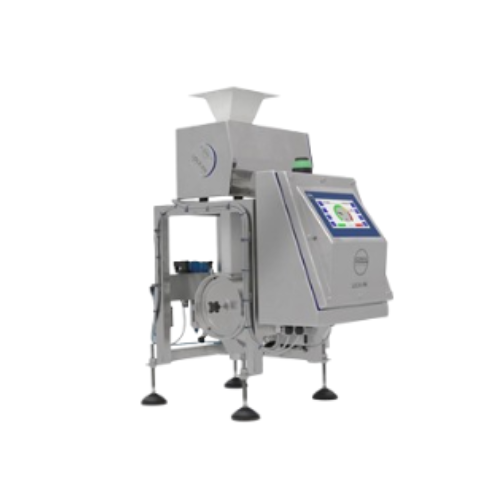
Pharmaceutical metal detector for powder and granule inspection
Ensure product integrity by efficiently detecting metal ...
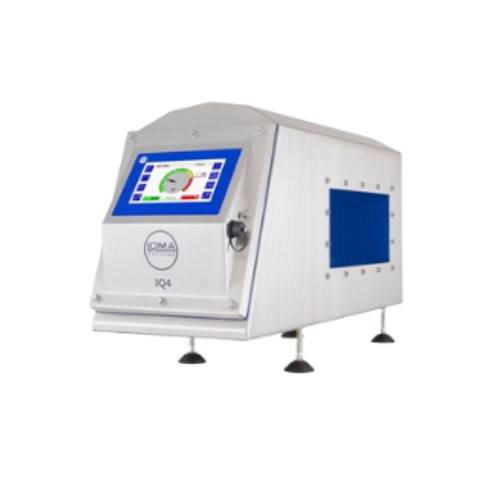
Industrial metal detector for food production lines
Ensure product safety and compliance by seamlessly detecting metal co...
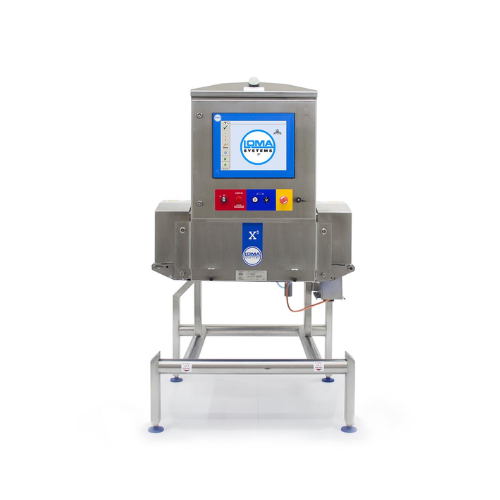
Compact x-ray inspection system for food safety
Enhance food product safety with advanced x-ray inspection, targeting both...
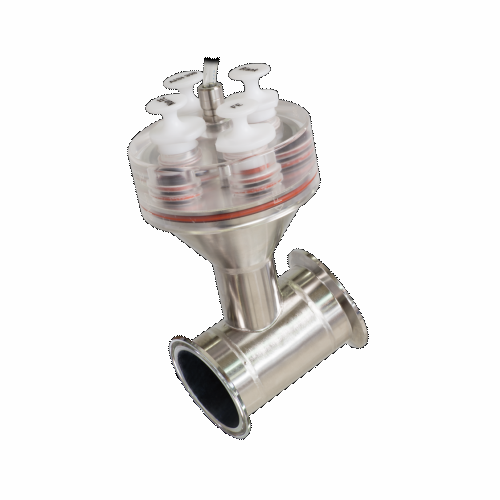
Dust-tight dispenser for metal detector test tablets
Ensure seamless integration of test tablets in high-containment envi...
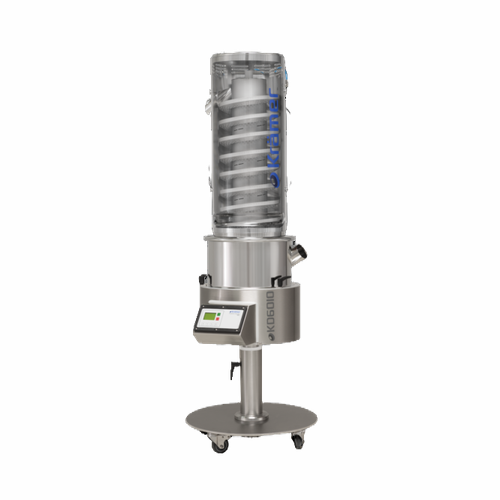
Vertical vibratory tablet deduster for pharmaceutical tablets
Ensure optimal cleanliness and quality assurance for table...
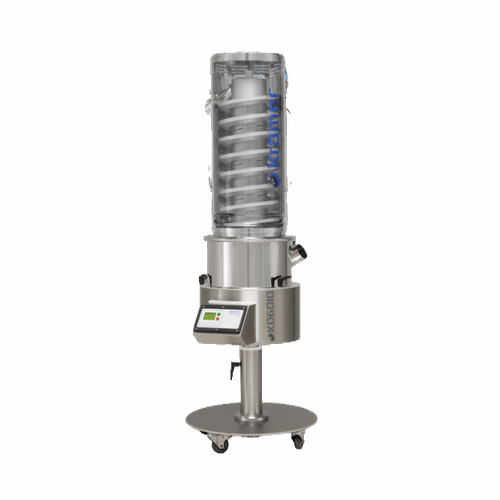
Tablet deduster with upward conveying
Ensure consistent dedusting and deburring of tablets and capsules while maintaining h...
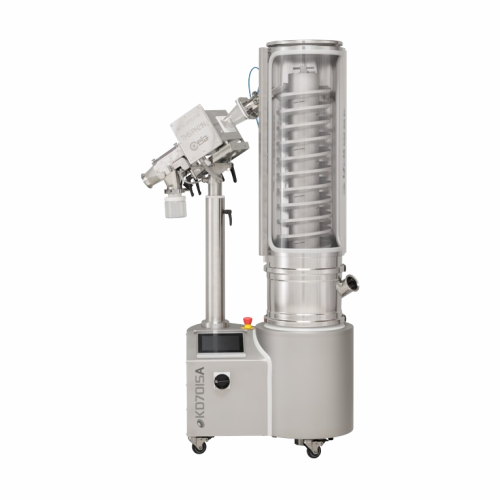
High performance tablet deduster with metal detection
Achieve precision dedusting and metal detection in tablet processin...
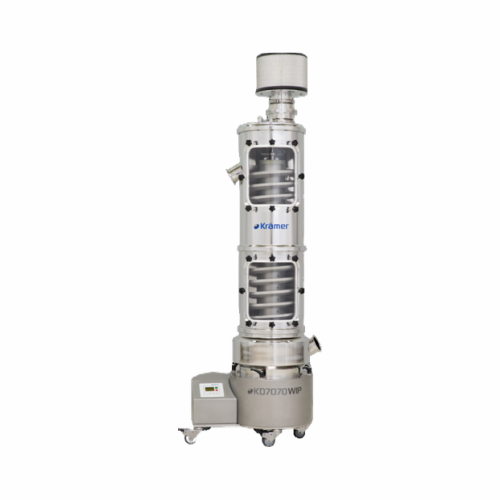
High-containment tablet dedusting solution
Ensure pharmaceutical tablets and capsules meet strict dust control and safety ...
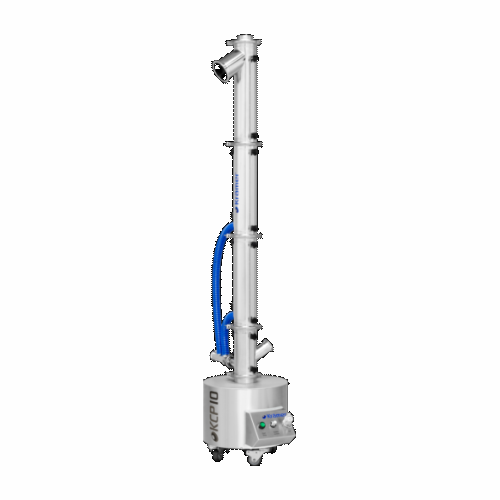
Capsule polisher for pharmaceutical production
Enhance capsule quality and safety by effectively polishing, dedusting, and...
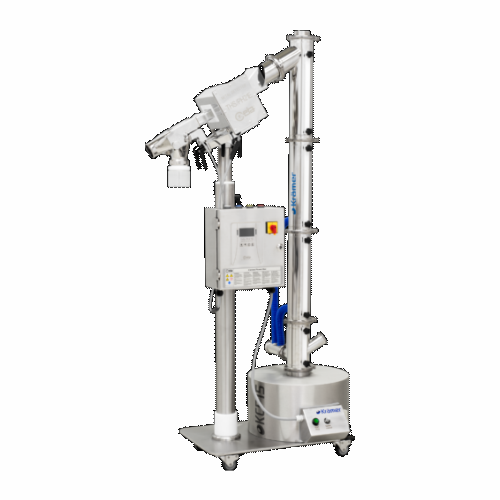
Capsule polisher for pharmaceutical capsules
Ensure your capsules are free from dust and perfectly polished with a solutio...
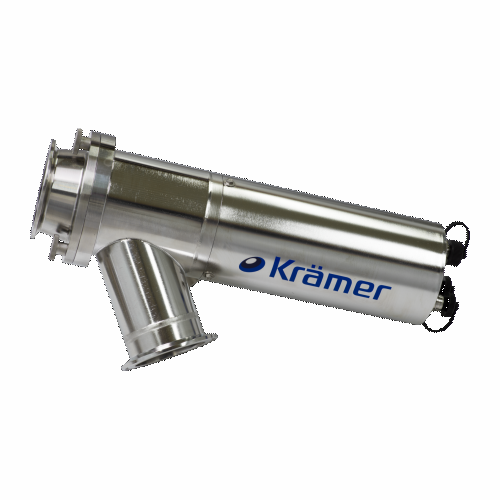
2-way diverter for tablet and capsule filling
Ensure precision in tablet and capsule filling with seamless batch switching...
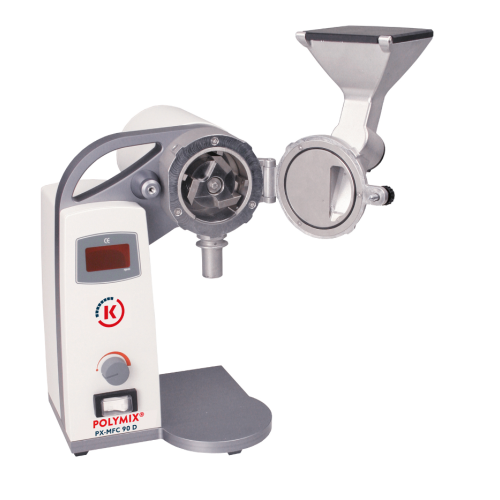
Dry sample preparation mil
Optimize your grinding processes with precision particle size reduction for various materials, en...
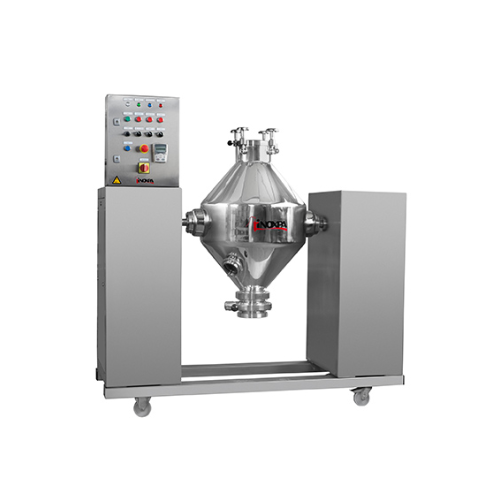
Double cone blender for homogeneous solid-solid mixtures
Need uniform blending for complex solid mixtures with diverse de...
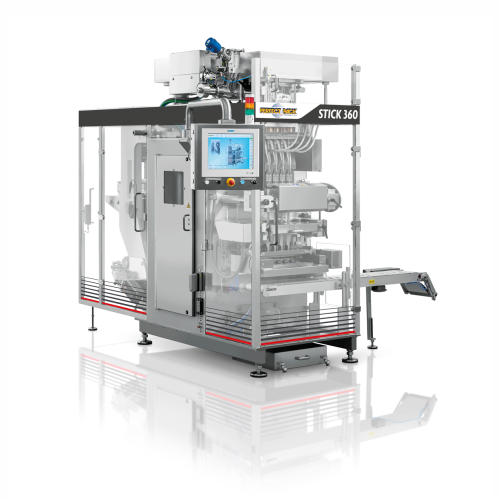
Vertical intermittent motion stick packaging
Experience seamless packing for diverse products, from powders to dense paste...
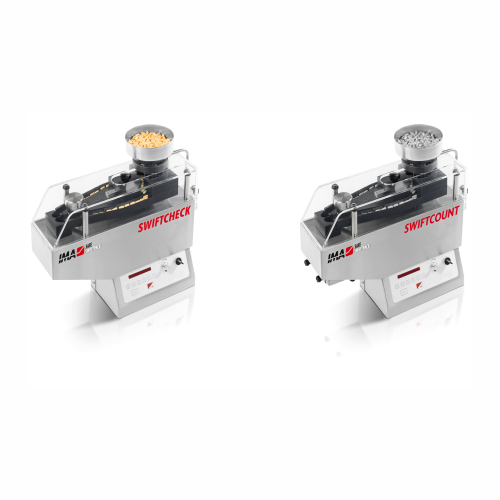
Table top tablet and capsule counter
Effortlessly ensure precise tablet and capsule counts with solutions that seamlessly i...
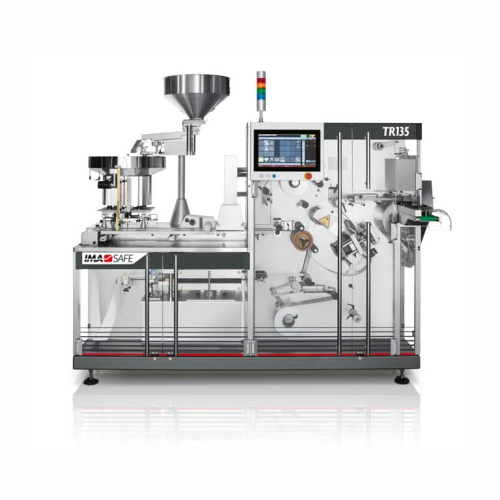
Medium speed blister packaging solution for pharmaceuticals
Optimize medium-speed tablet blister packaging with seamless...
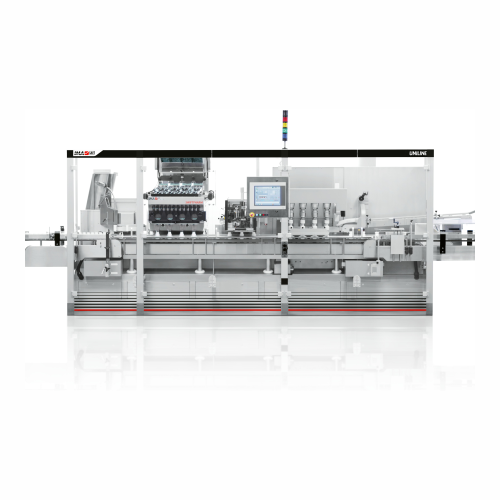
Integrated counting system for tablets and capsules
Streamline your packaging line with a highly versatile system that se...
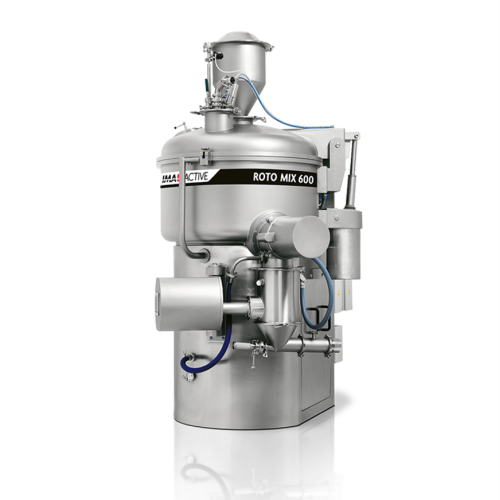
High shear mixer granulator for pharmaceutical applications
Achieve optimal granulation with precise shear control, enha...
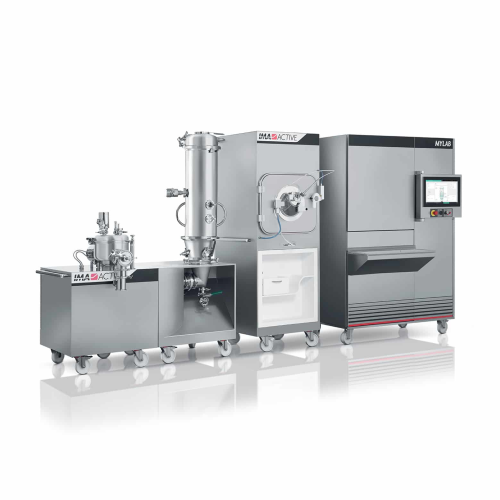
Fluid bed and coating system for small batch processing
Streamline your R&D process with a modular system that ensur...
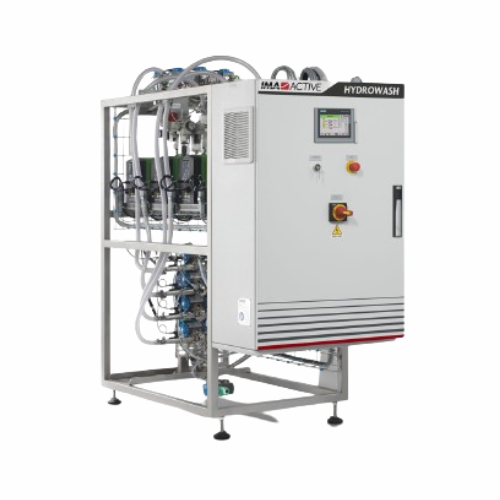
Industrial washing skid for pharmaceutical components
Ensure precise cleaning and drying of pharmaceutical components wit...
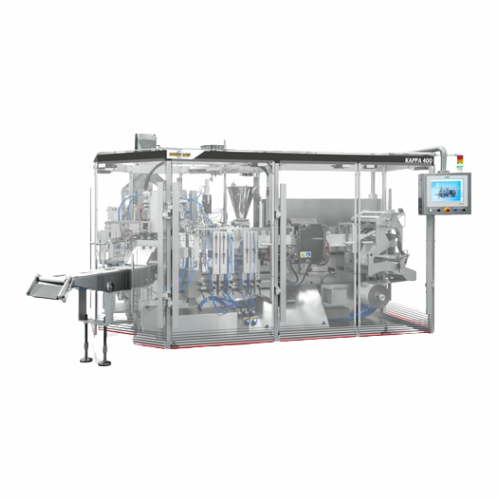
Horizontal intermittent motion sachet packaging solution
Optimize your packaging operations with a versatile sachet solut...
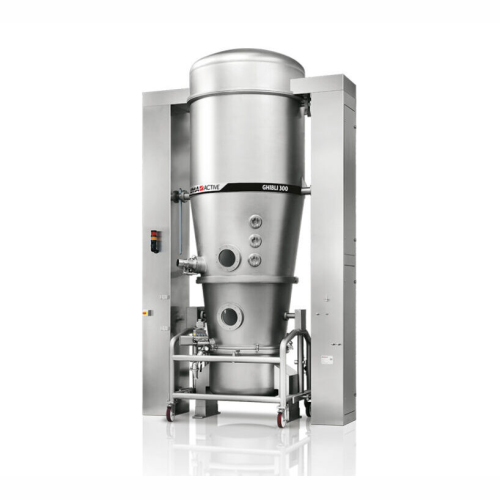
Fluid bed processor for pharmaceutical granulation and drying
Achieve precise drying, granulation, and coating of pharma...
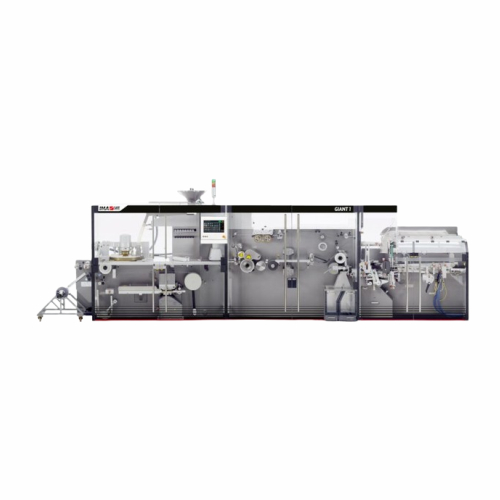
Blister packaging solution for small-medium batches
Achieve unparalleled versatility and efficiency in blister packaging ...
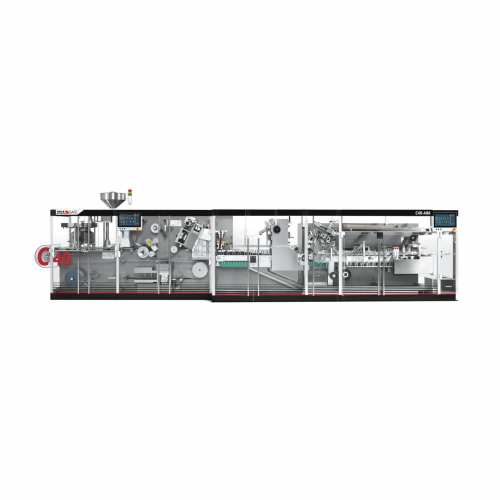
Blister packaging solution for small/medium batches
Achieve high production efficiency with frequent changeovers for your...
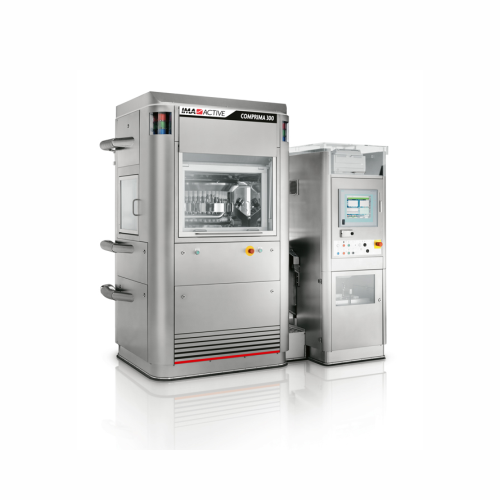
Tablet press for high-quality pharmaceutical tablets
Ensure optimal tablet quality and yield with an advanced compression...
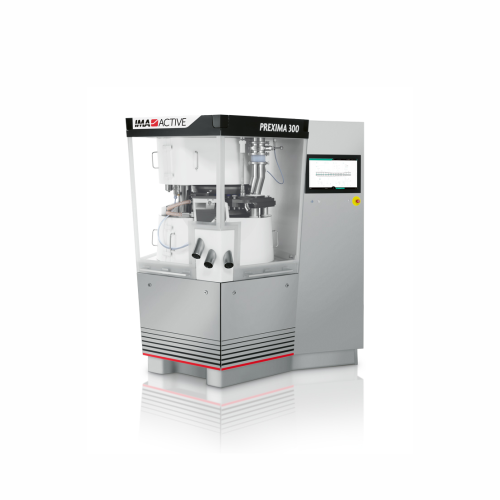
Tablet pressing system for solid chemicals and cosmetic products
Optimize your tableting process for diverse solid produ...
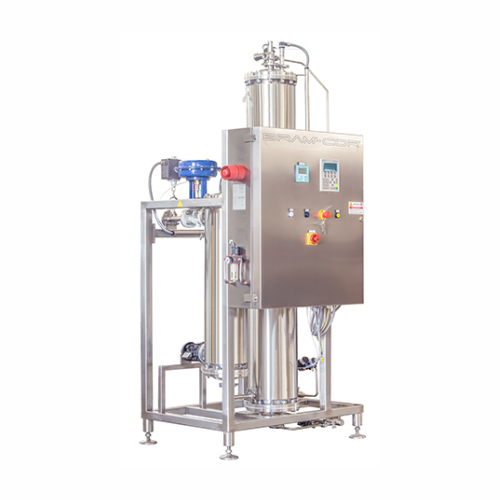
Pure steam generation and distribution system
Ensure reliable sterilization with pure steam that’s free from contami...
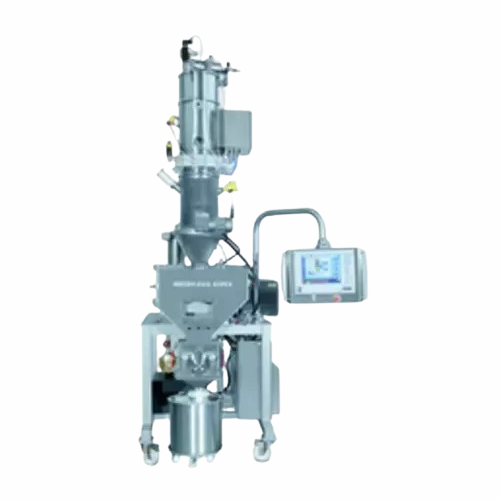
Compactor for powder processing
Designed for transforming powdered materials into uniform granules, this compactor enhances ...
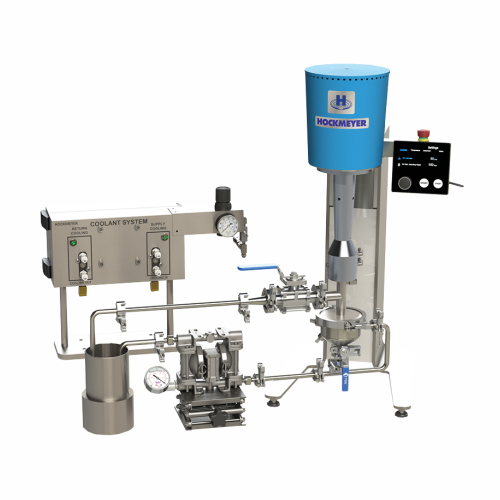
Laboratory vacuum milling for fine particle size reduction
Streamline your lab and pilot processes with high-speed vacuu...
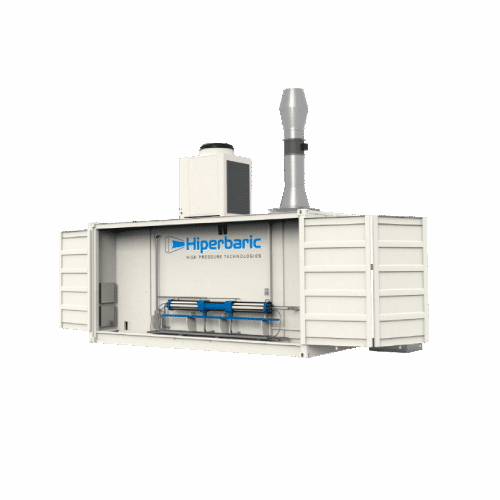
Hydrogen compression solution for refueling stations
For operations demanding efficient hydrogen compression, this modula...
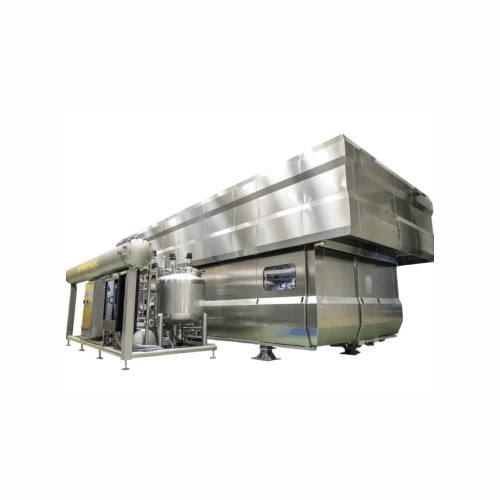
High pressure processing for bulk liquid beverages
Streamline your liquid processing with high-pressure in-bulk technolog...
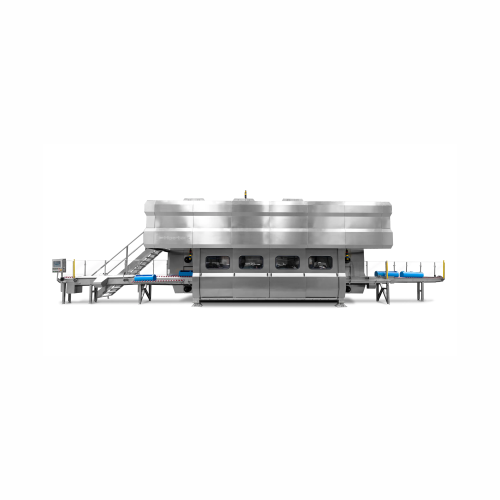
High pressure food processing system
Achieve extended shelf life and enhanced food safety with a cutting-edge high-pressure...
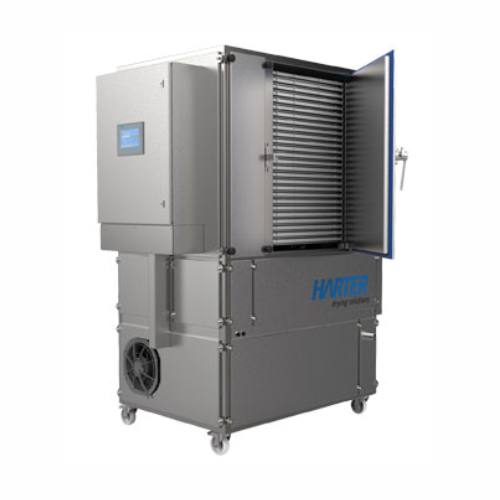
Compact food drying system
Achieve precise moisture control for product development and testing with this versatile compact ...
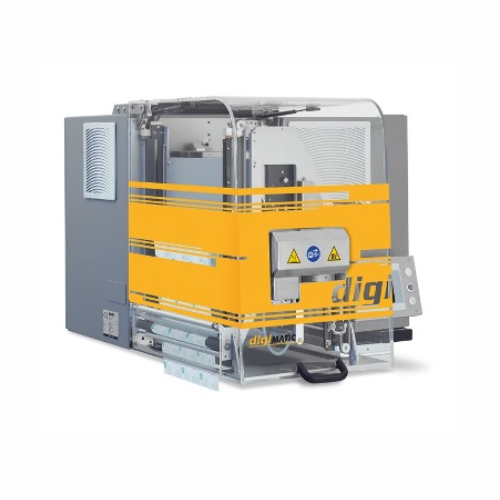
Single-color inline digital printer for blister-lidding foils
Streamline your pharmaceutical packaging with precision pr...
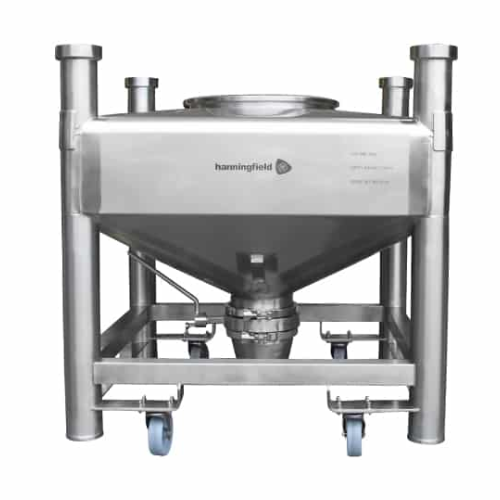
Tablet storage and transport containers
Ensure the safe and gentle handling of tablets during storage and transport, minimi...
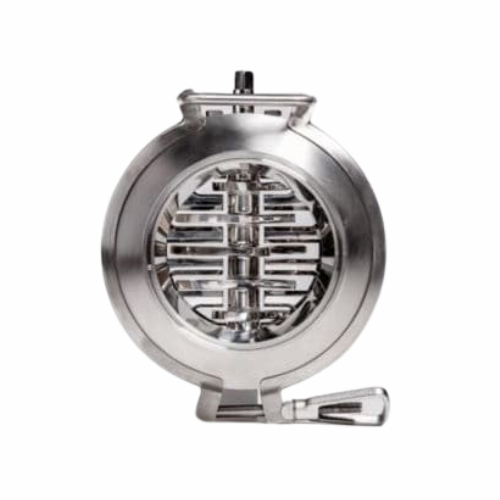
Rotary crushing valve for lump breaking
When handling bulk solids, effective pre-breaking and sizing are crucial to ensure ...
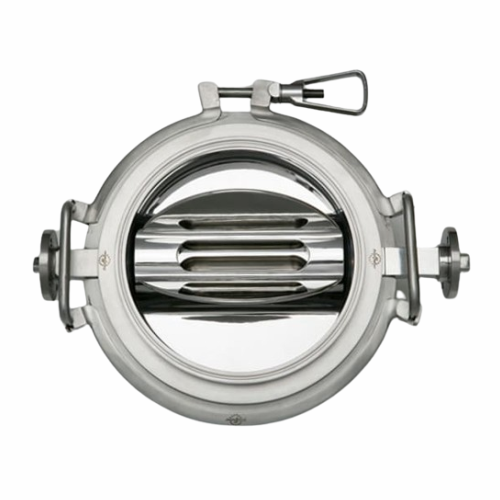
High-accuracy rotary dosing valve for fine material feeding
Ensure precise dosage of fine powders and granules, enhancin...
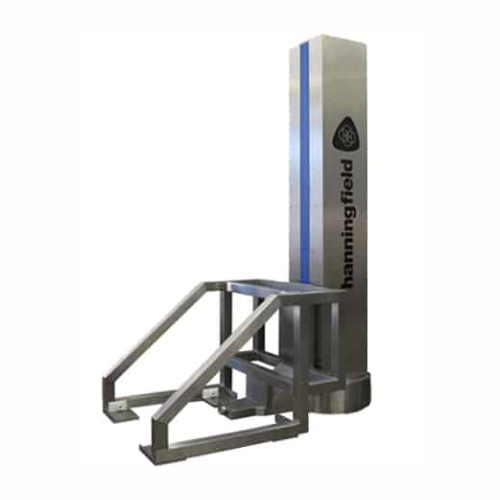
Industrial container and drum handling solution
Effortlessly maneuver and position heavy containers such as IBCs and drums...
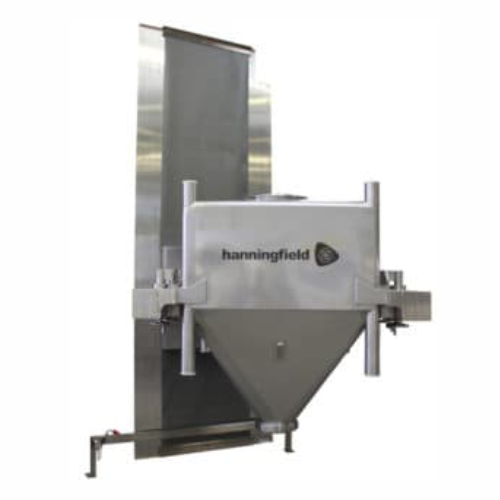
Ibc tumbler for uniform batch mixing
Achieve consistent and homogenous mixing of powders, granules, and solid products with...
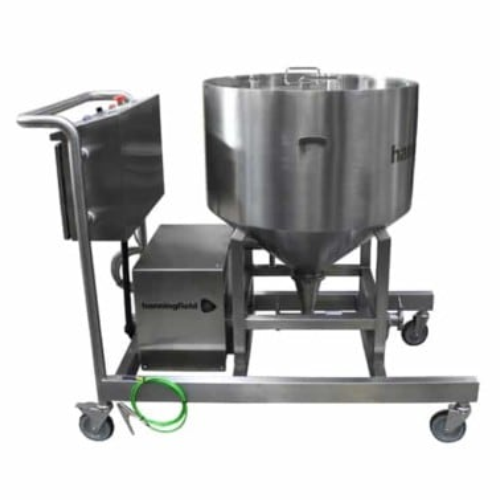
Capsule conveyors for gentle capsule transfer
Streamline your capsule production line with a system designed for high-spee...
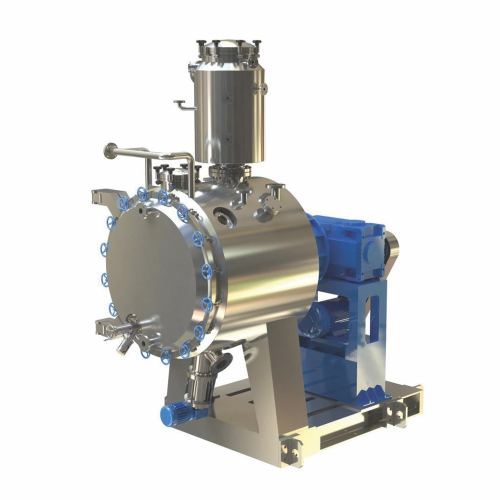
Vacuum paddle dryer for active pharmaceutical ingredients
For precise moisture control and contamination-free conditions...
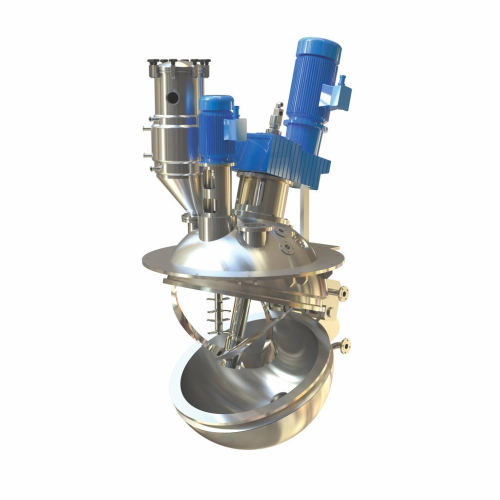
Spherical vacuum dryer for Apis and fine chemicals
Achieve precise moisture control and efficient drying for APIs and fin...
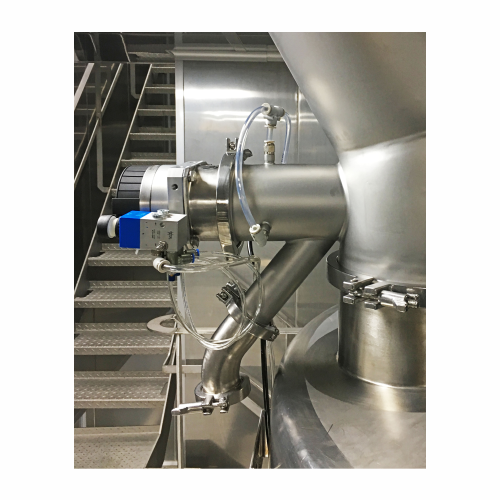
Sampling valve for secure sample extraction
Ensure product quality by safely extracting representative samples without hal...
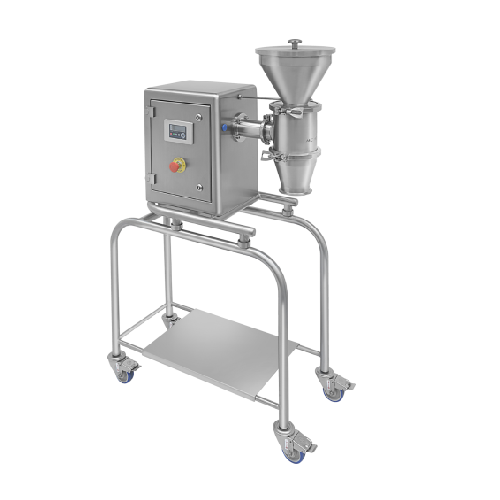
Laboratory conical screen mill for powder calibration
Achieve precise particle size control with this compact laboratory ...
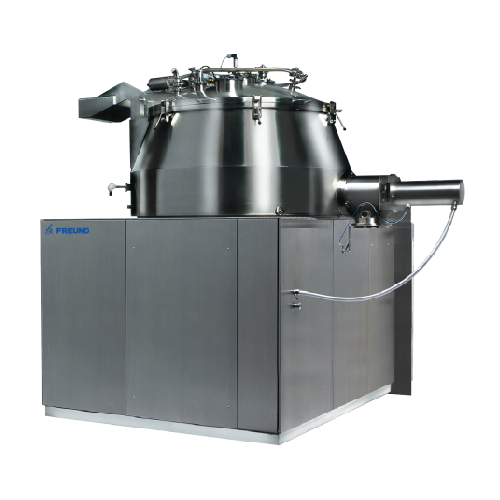
High shear granulation mixing system
Optimize your powder granulation process with a system designed for precise control ov...
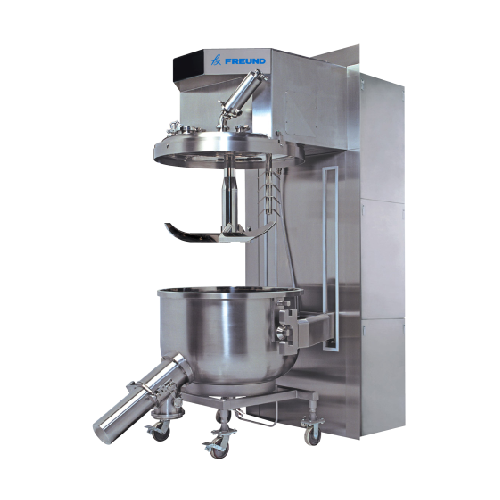
High shear wet granulation line
Achieve consistent and uniform granules with energy-efficient wet granulation designed to op...
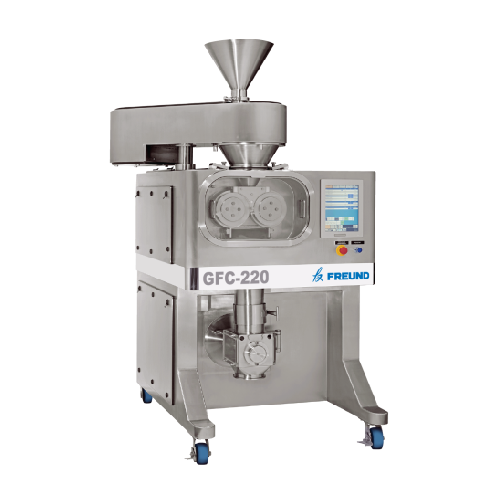
Roll compactor system for dry granulation
Achieve consistent tablet hardness and increased powder density with a versatile...
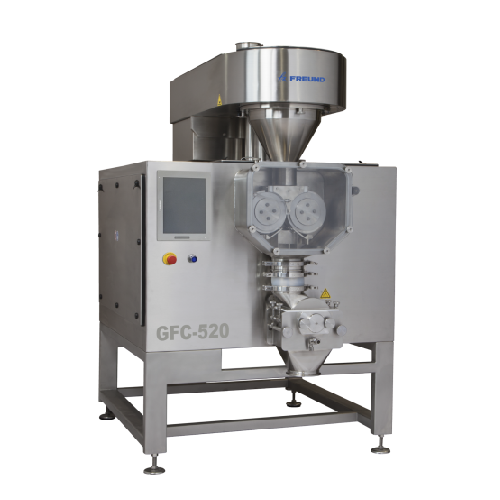
Roller compaction system for dry granulation
Achieve precise densification and consistent powder granulation with a system...
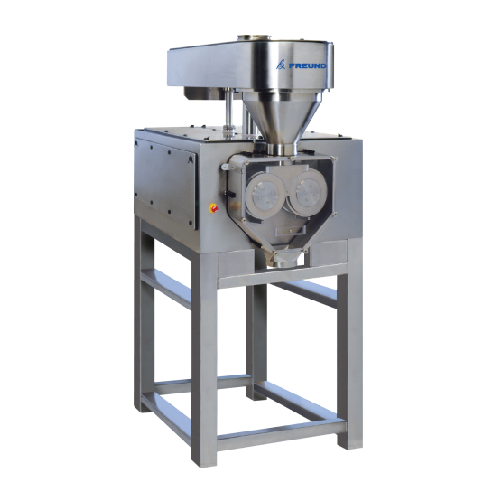
Dry granulation system for powder compaction
Achieve consistent sheet hardness and increased density in powdered materials...
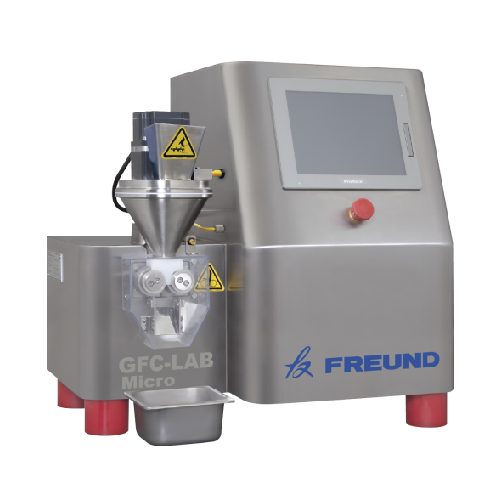
Benchtop roller compacting system
Achieve precise powder densification and uniform dry granulation with this compact system...
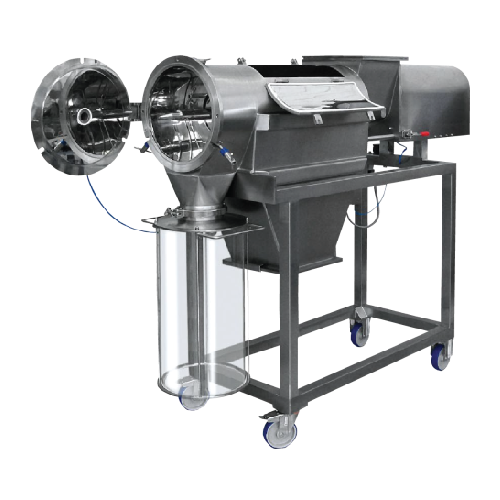
Centrifugal sifter for particle size classification
Achieve precise particle size control with high output efficiency, en...
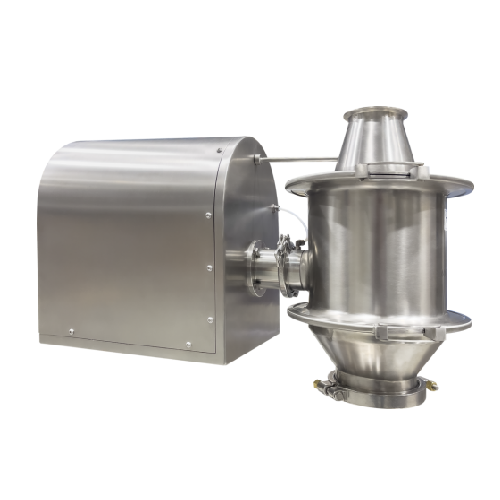
Conical screen mills for powder calibrating
Achieve precise particle size distribution for your powders and granules with ...
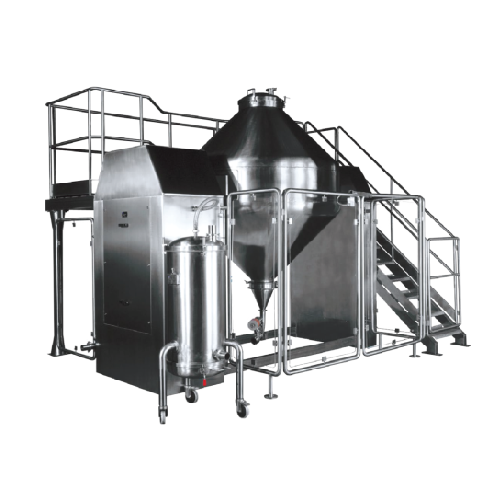
Pharmaceutical powders and granules dry blending
Achieve uniform blending of diverse powder and granule formulations with ...
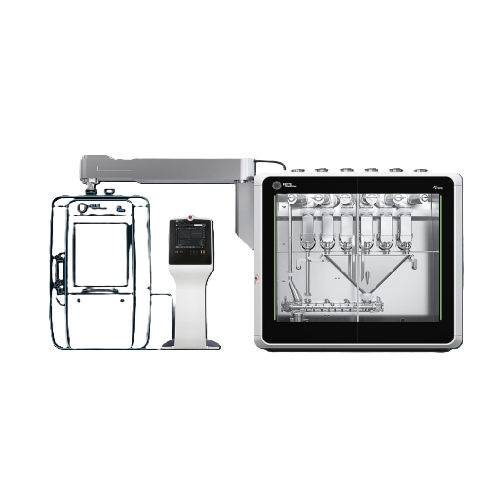
Continuous direct compression system for tablet production
Achieve seamless continuous direct compression by integrating...
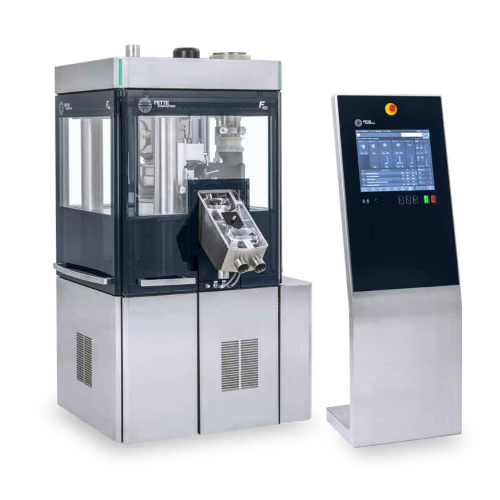
Industrial tablet press for high output production
Achieve precise control and efficient production with advanced rotary ...
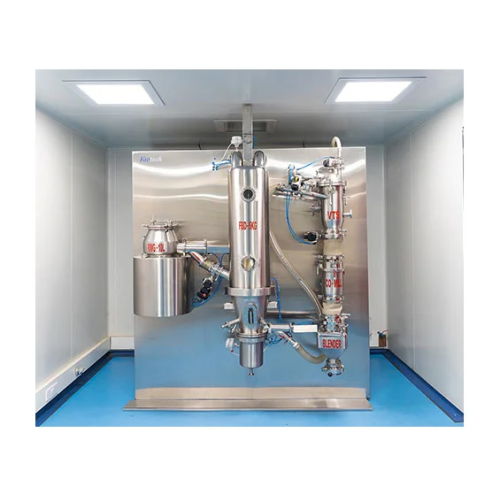
Closed loop granulator for pharmaceutical production
Streamline your production with a fully automated closed-loop system...
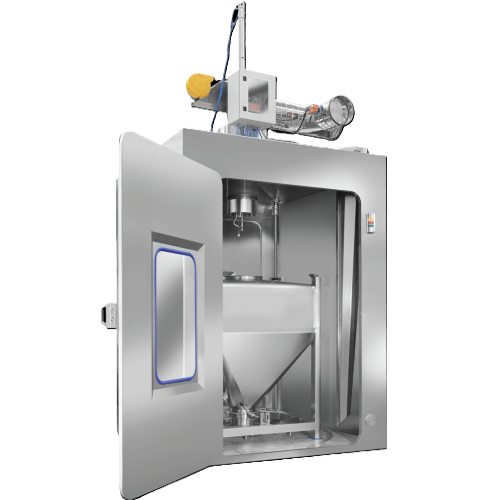
Internal and external bin washing cabinet
Streamline your sanitation process with automated bin cleaning that ensures thor...
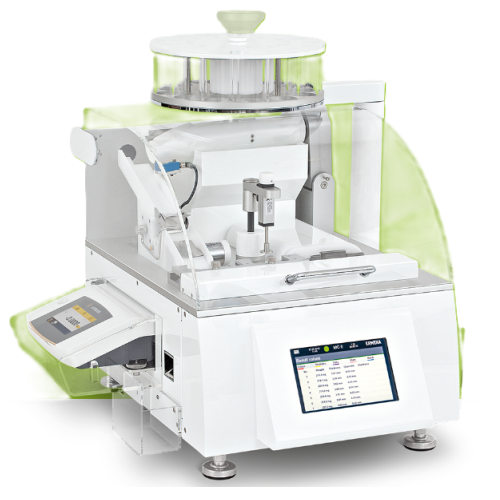
GMP automatic tablet hardness tester
Ensure precise control over tablet quality with a fully automated tester that seamless...
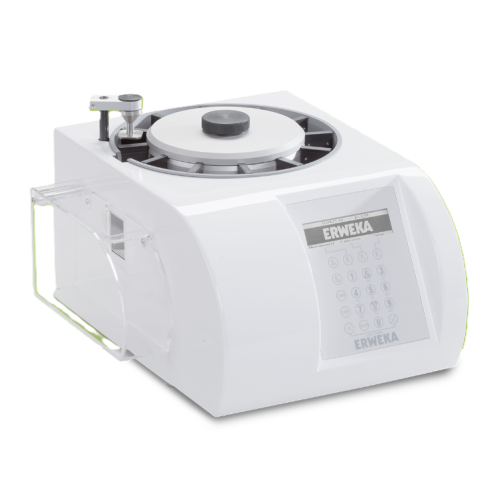
Tablet hardness and combination tester
Ensure consistent tablet hardness and precision across multiple parameters with this...
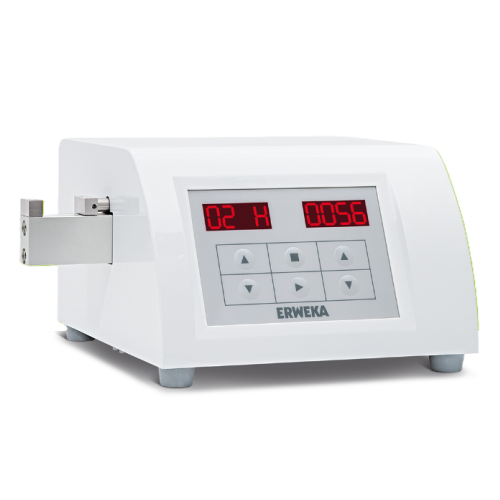
Tablet hardness tester for pharmaceutical quality control
Ensure precise tablet hardness measurement to enhance pharmace...
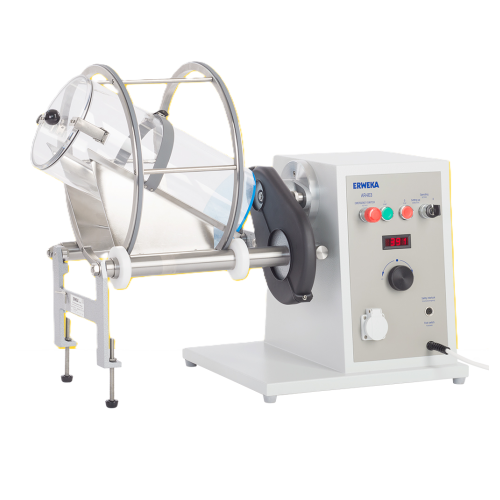
Drum hoop mixer for uniform three-dimensional mixing
Achieve consistent, homogenous mixing of powders and granules with a...
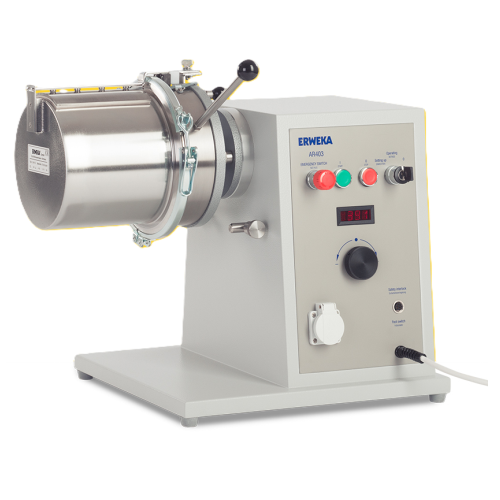
Laboratory high speed mixer for powders and granules
Achieve homogenous blending of powders and granules efficiently with...
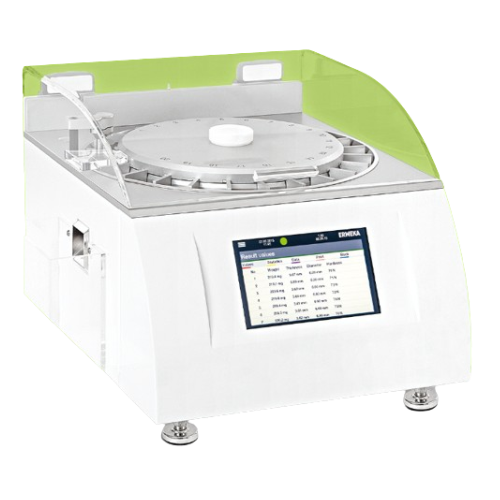
pharmaceutical-tablet hardness testing system
Ensure consistent tablet quality and compliance with pharmacopeia standards ...
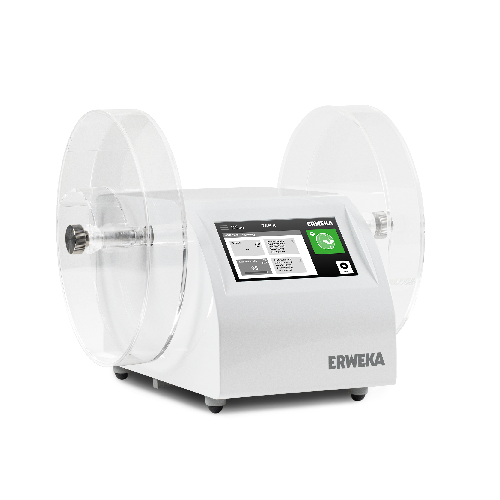
Advanced friability and abrasion testing solution
Ensure precise compliance in pharmaceutical tablet testing with this in...
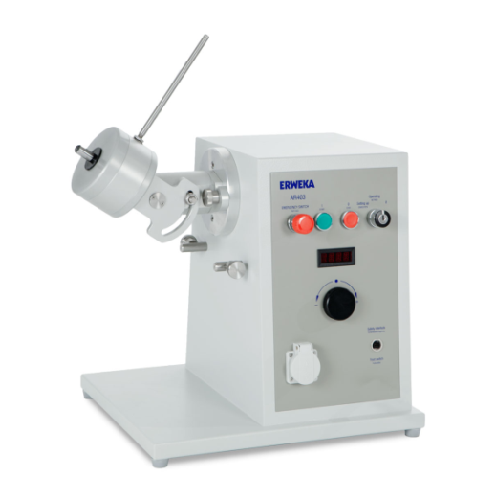
All-purpose mixer and processor for laboratory and small scale production
Optimize your small-scale production with a ...
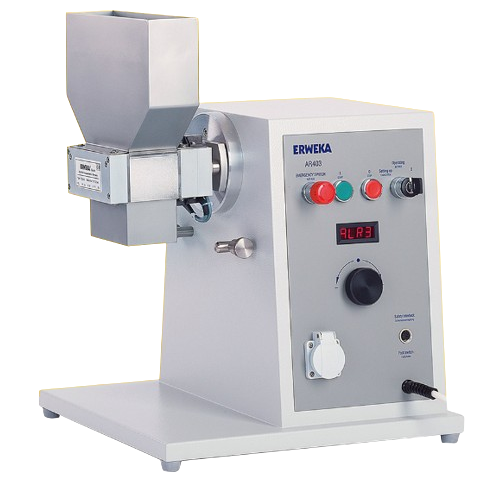
Double roll crusher for laboratory applications
Optimize material processing with a double roll crusher designed for preci...
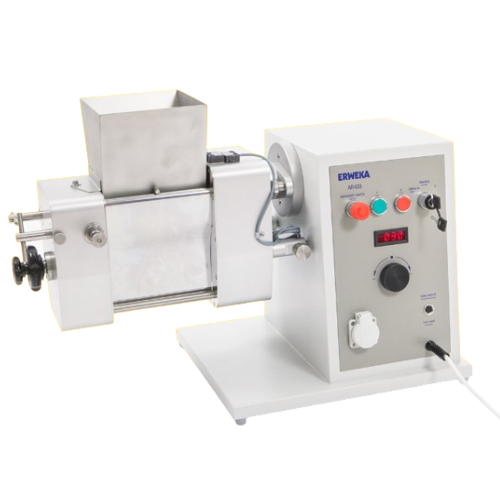
Wet granulator for pharmaceutical applications
Achieve precise granule consistency with advanced oscillating rotor technol...
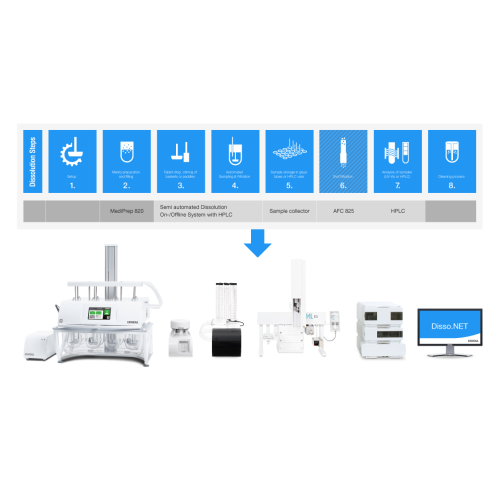
Dissolution testing system with Hplc analysis
Streamline your dissolution testing with integrated HPLC analysis, offering ...

Dissolution testing software for compliance and efficiency
Ensure data integrity and streamline compliance with a robust...
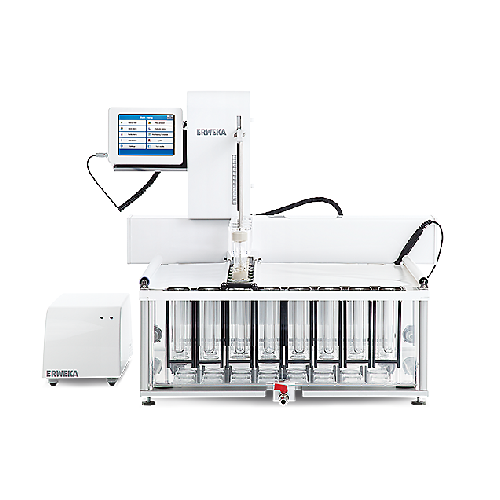
Automatic dissolution testing for sustained release dosage forms
Effortlessly simulate pH changes for accurate dissoluti...
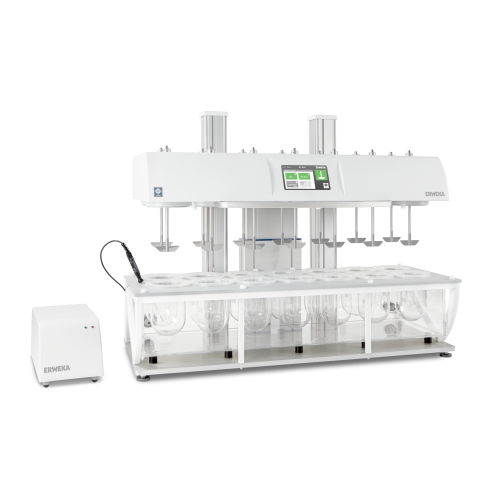
High volume dissolution tester for pharmaceutical research
Achieve precise dissolution testing of tablets across two bat...
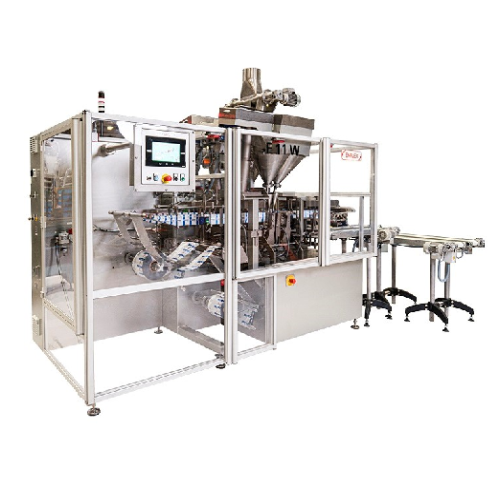
Horizontal flat pouching line for liquid soaps
Streamline your liquid product packaging with a dual-lane flat pouching lin...
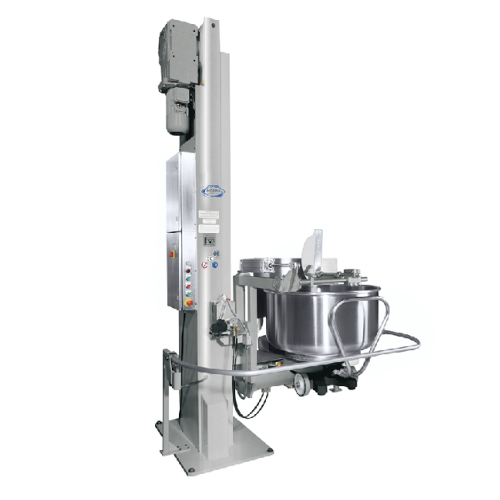
Elevator tipper for flexible dough handling
Achieve maximum flexibility in your production line with a versatile lifting s...
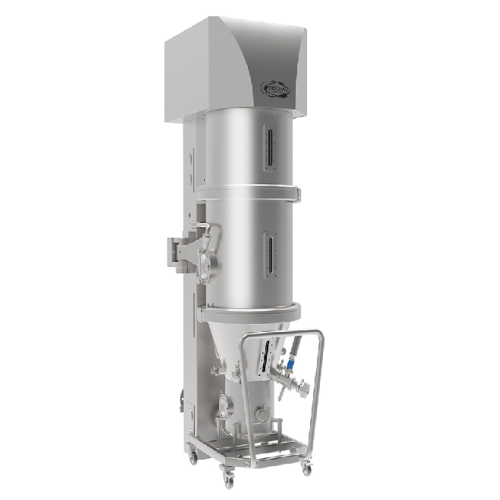
Fluid bed processor for granulating, drying, and coating in pilot scale
When scaling from laboratory to production, rel...
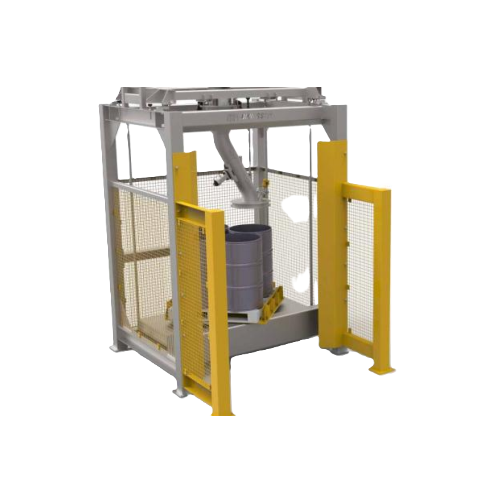
Ibc and drum filling system for chemical substances
Ensure safe and efficient handling of sensitive materials with a modu...
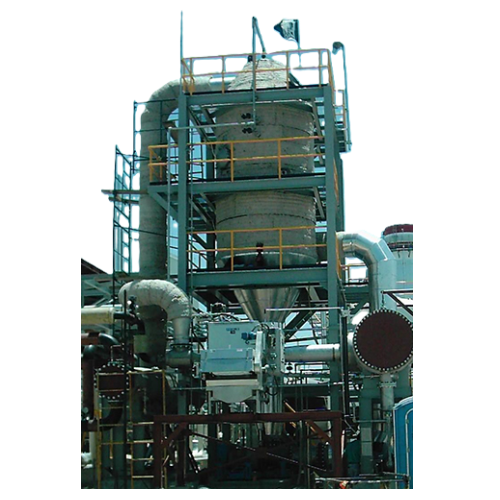
Evaporative crystallizers for chemical processing
Optimize your crystallization process with state-of-the-art evaporative...
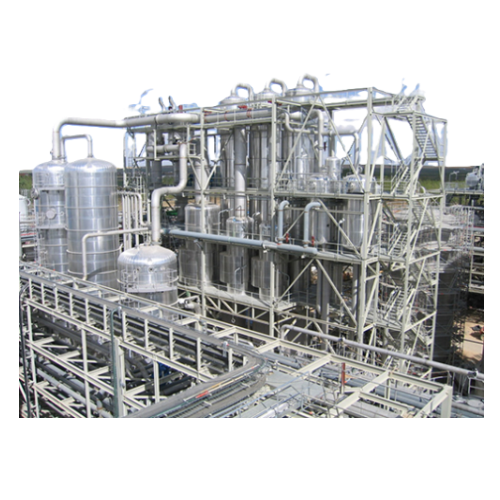
Industrial evaporators for diverse applications
Maximize energy efficiency and reduce operational costs with cutting-edge ...
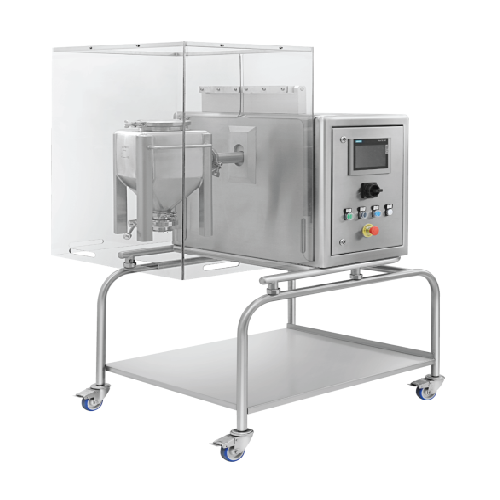
Benchtop laboratory powder blender
Perfect for R&D labs needing precise, small-batch powder blending and mixing, this ...
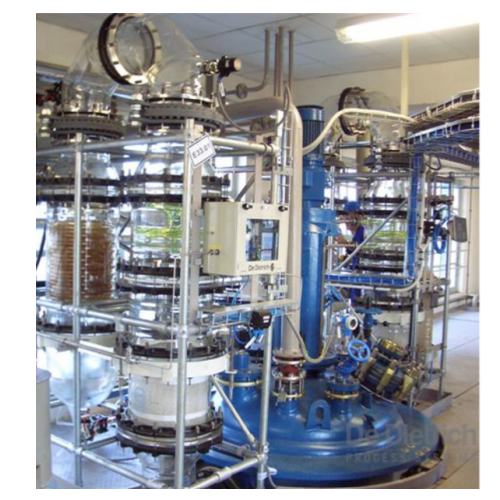
Distillation equipment for large reactors
Efficiently achieve high-purity separations and syntheses with distillation equi...
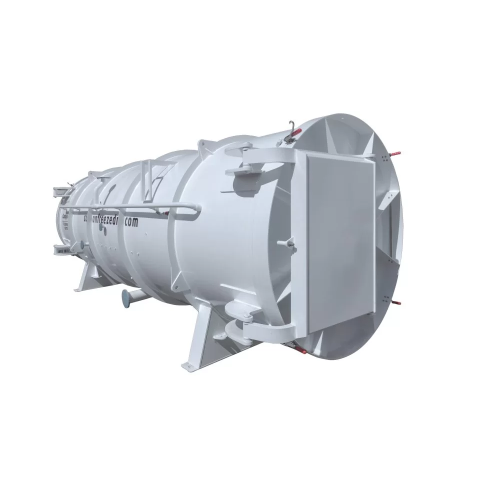
Large-scale industrial freeze dryer
Achieve precise moisture control and preserve product integrity with a large-scale free...
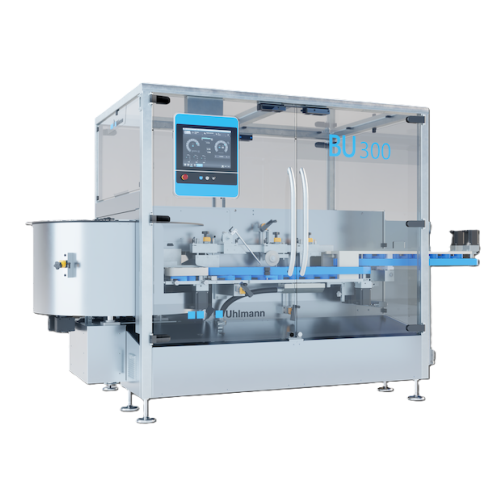
Pharmaceutical bottle unscrambler
Streamline your pharmaceutical packaging process by efficiently sorting and aligning bott...
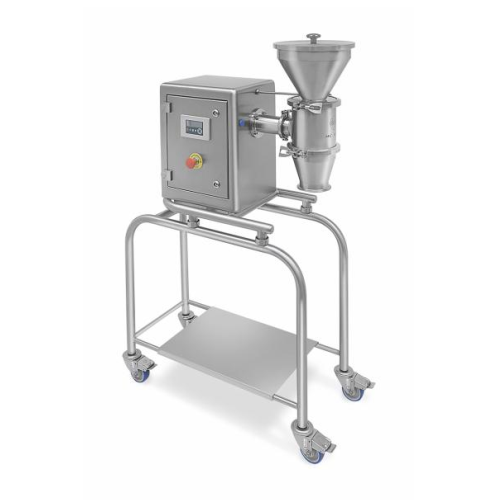
Laboratory cone mill for even grinding
Achieve consistent particle size for laboratory powders with precision calibration a...
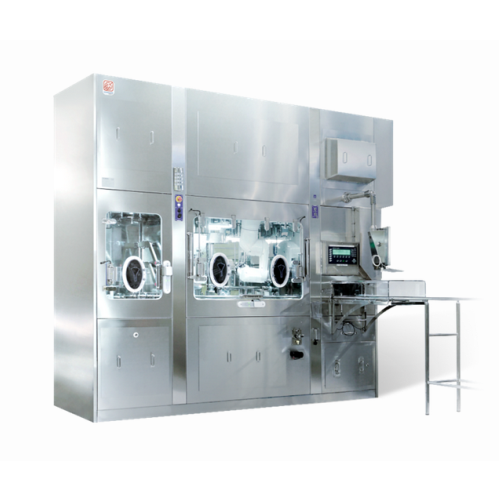
Dry powder filling isolator for cgmp production
Achieve precise powder dosage and secure containment for hazardous materia...
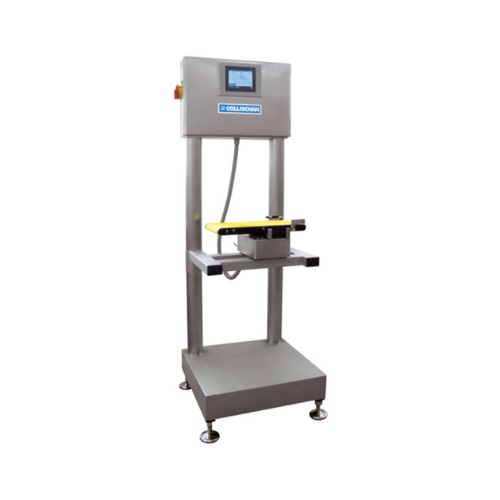
Basic checkweigher for weight control in low to medium performance
Ensure accurate weight control with a versatile chec...
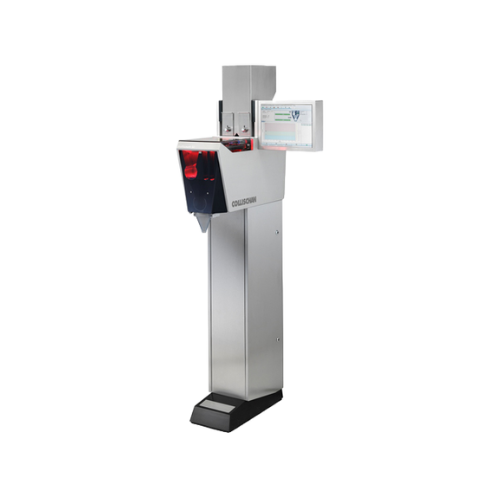
Tablet counting solution for pharmaceutical industry
Maximize dosing precision and reduce miscounts in high-speed pharmac...
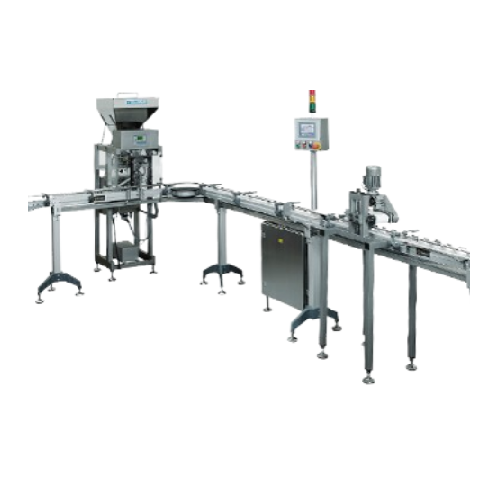
Precision weigh filler for food and pharma industries
Optimize precision in multi-component dosing with seamless integrat...
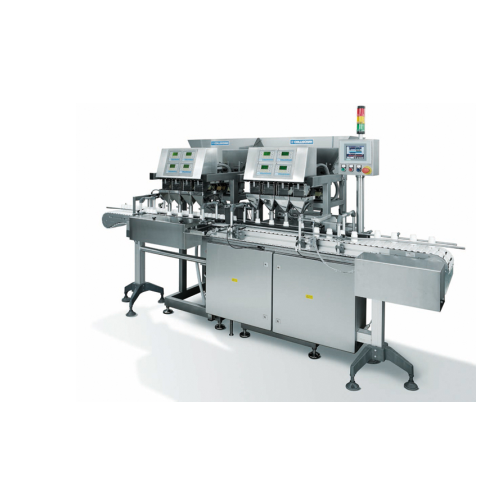
Complete packaging lines for various containers
Streamline your packaging process with versatile equipment capable of hand...
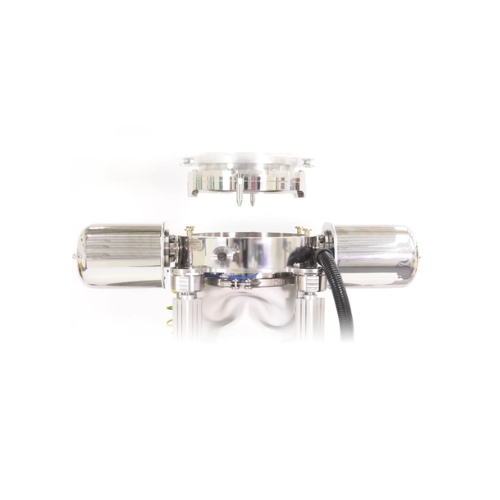
High containment powder transfer valve for bulk material
Ensure operator safety and prevent cross-contamination with robu...
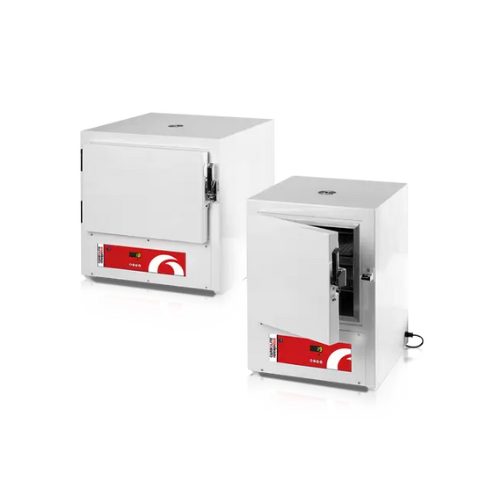
Clean room oven for class 100 environments
Achieve precise temperature control and maintain particle integrity in critical...
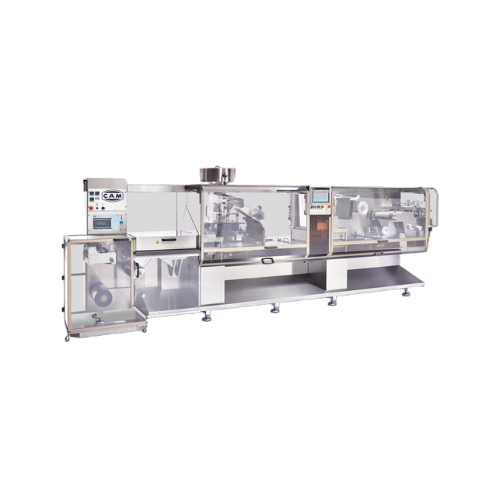
High speed blister packaging for pharmaceutical industry
Ensure precision and speed in pharmaceutical packaging with a hi...
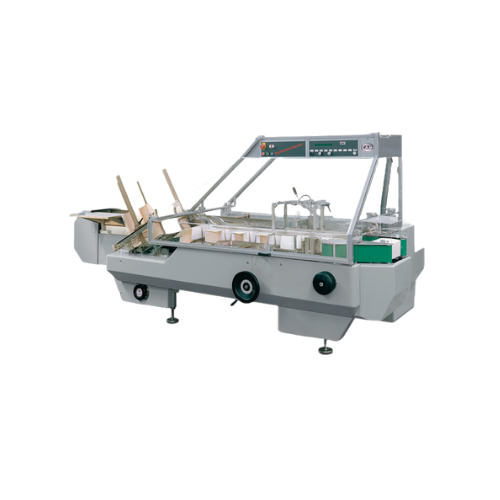
Intermittent motion horizontal cartoner for large products
Simplify your packaging process with a solution that ensures ...
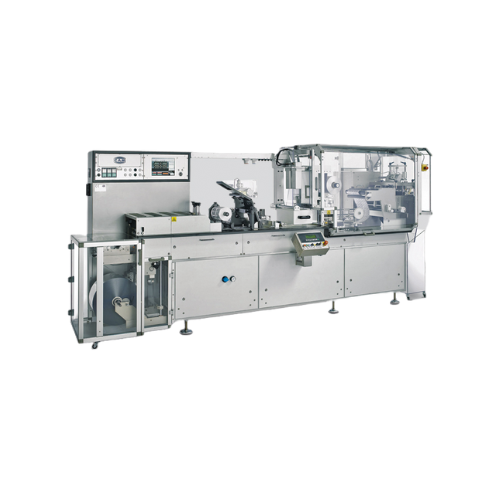
Blister packaging for pharmaceutical products
Facilitate seamless packaging of pharmaceuticals with a solution designed to...
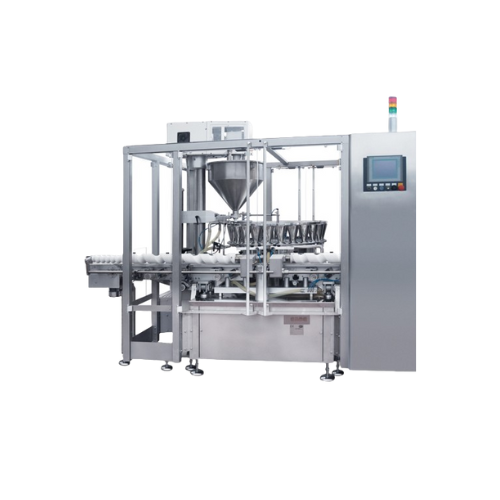
Continuous motion powder dosing system
Ensure precise dosing of pharmaceutical and nutritional powders with this continuous...
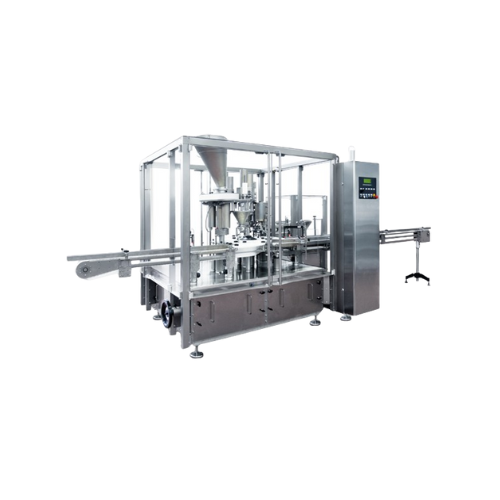
Intermittent motion powder dosing and capping system
Ensure precise powder dosing and secure capping in one seamless step...
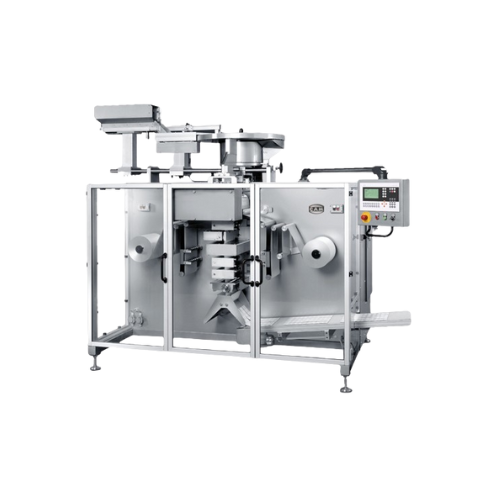
High-speed strip packaging for tablets and capsules
Optimize your high-speed pouching operations with precise four-side s...
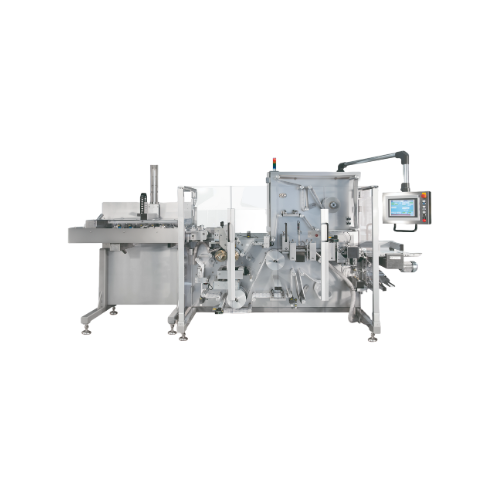
High speed strip packaging for tablets and capsules
Ensure precise packaging of pharmaceutical tablets and capsules with ...
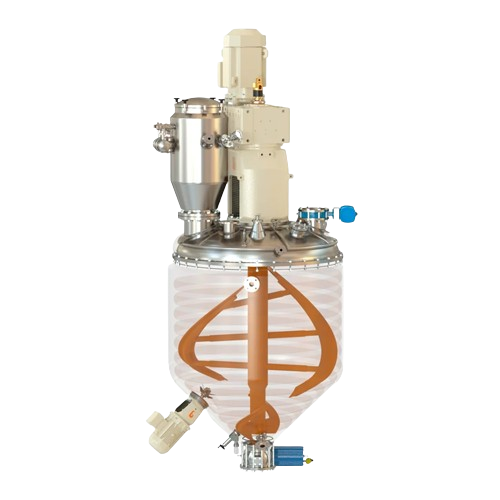
Vertical ribbon vacuum dryer for thermosensitive products
Achieve optimal drying of thermo-sensitive materials like powd...
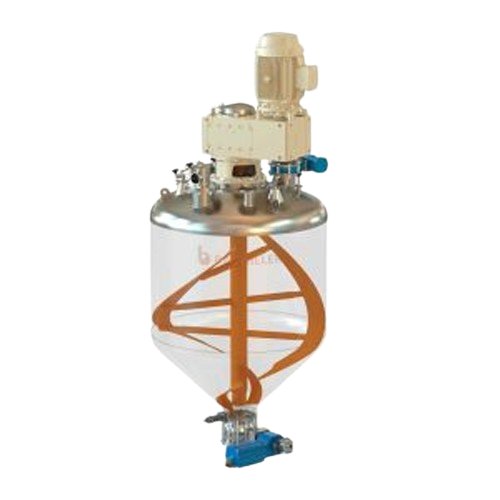
Vertical ribbon mixer for solids and powders
Achieve rapid, uniform mixing of powders and solids while preserving particle...
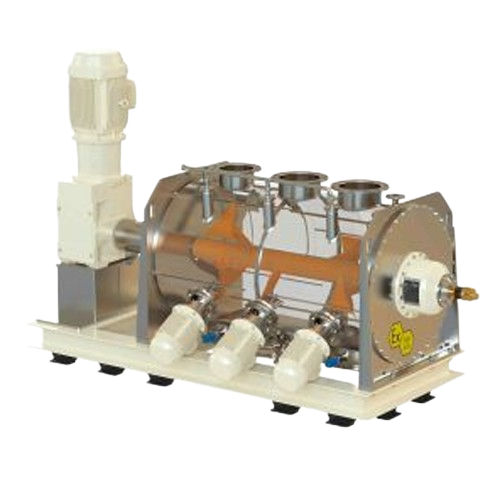
Horizontal ploughshare mixer for solids and powders
Achieve uniform blends of diverse solids and powders with precision a...
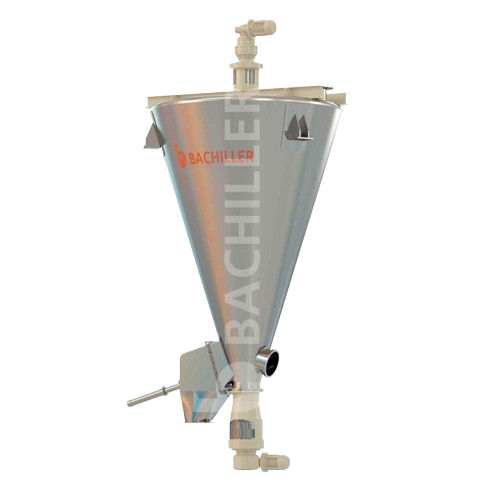
Conical screw mixer for solids and powders
Achieve precise homogenization of your solid and powder mixtures with minimal e...
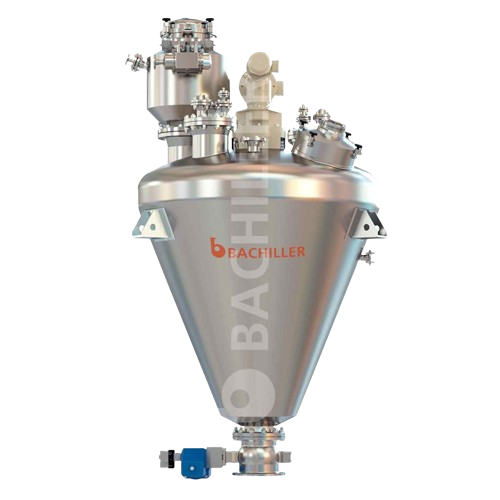
Vertical conical screw vacuum dryer
Achieve precise moisture control with ultra-vacuum batch drying, ideal for thermo-sensi...
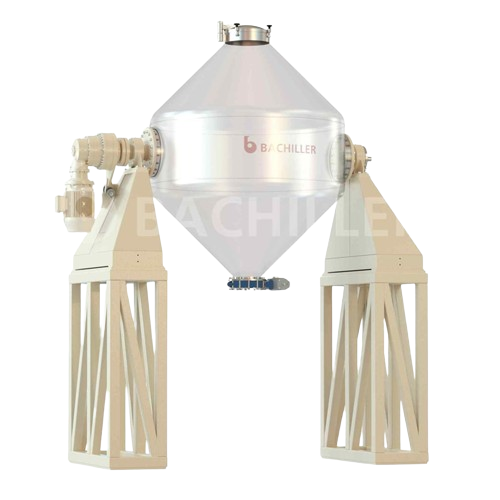
Double cone mixer for powders and solids
Ensure gentle mixing of fragile powders and solids with a low-speed, non-forced bl...
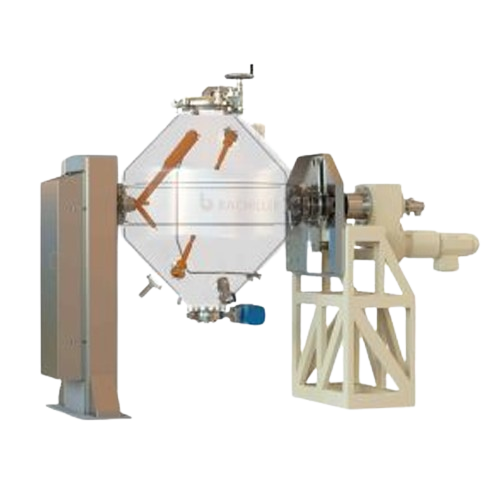
Double cone vacuum dryer for thermosensitive products
For precise drying of heat-sensitive powders, this double cone vacu...
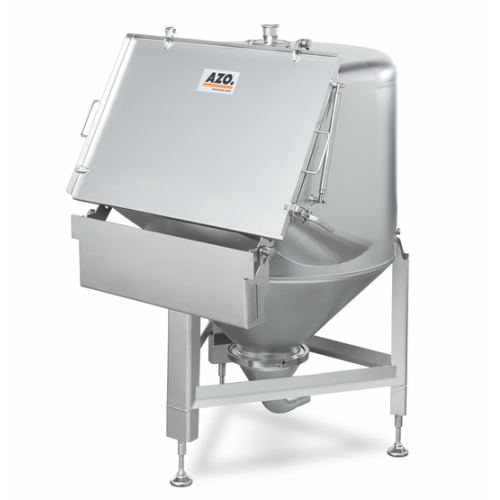
Precise weighing solutions for small batch production
Streamline handling of diverse ingredient blends with precise dosin...
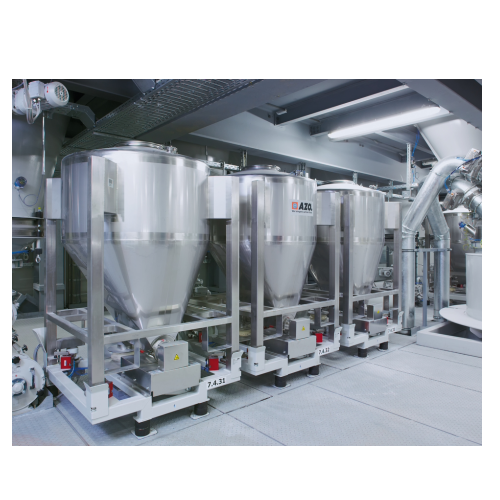
Precise dosing system for bulk materials
Ensure precise bulk material dosing with minimal dust, seamlessly switching betwee...
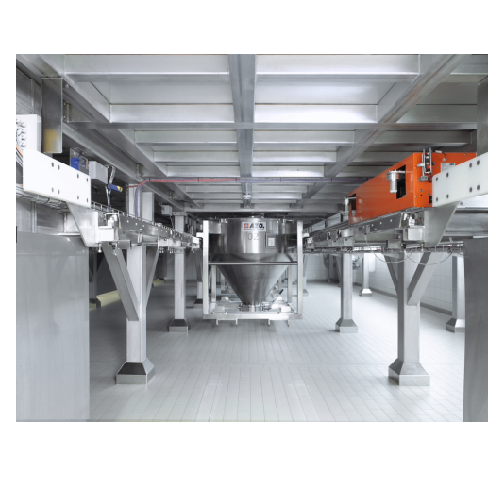
Batch automation system for fast and precise weighing
Achieve unmatched precision and speed in batch processing with this...
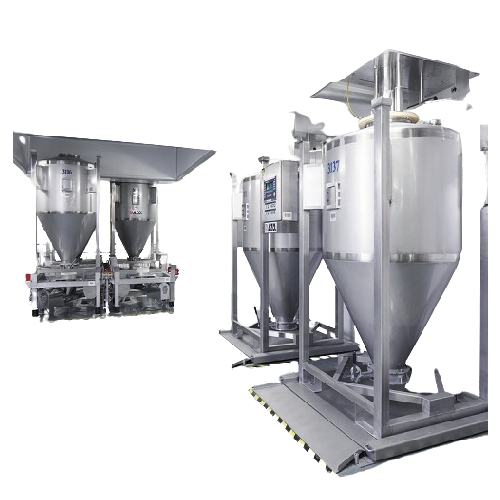
Automated bulk material handling system
Ensure precise batch tracking and efficient handling of challenging bulk materials ...
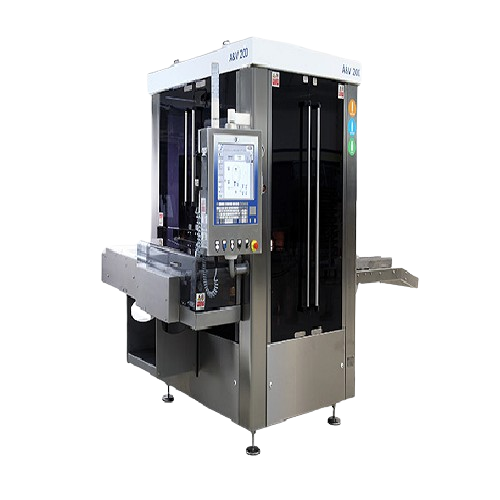
Automatic visual inspection for sterile preparations
Ensure the integrity of sterile products with precise visual inspect...
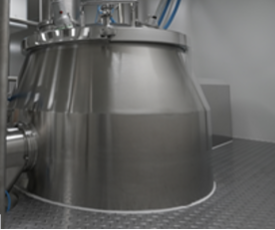
Continuous wet granulation equipment
Achieve optimal particle size and uniformity in pharmaceutical production with our con...
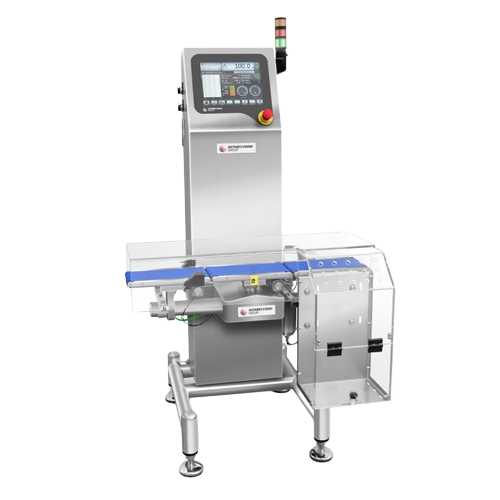
Checkweighers for medium and small products
Ensure precise weight control in high-speed production lines with advanced che...
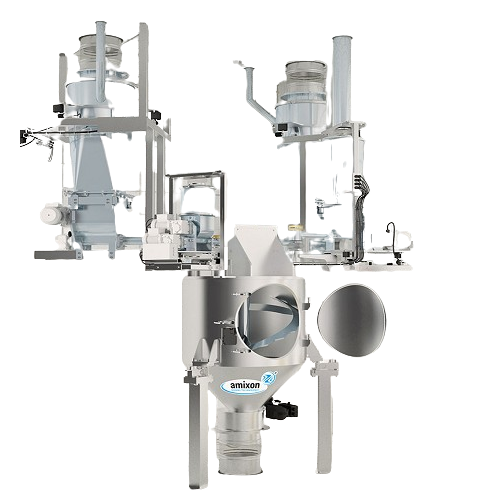
Continuous powder mixer for dry, moist and suspended goods
Achieve precise homogenization and deagglomeration with a con...
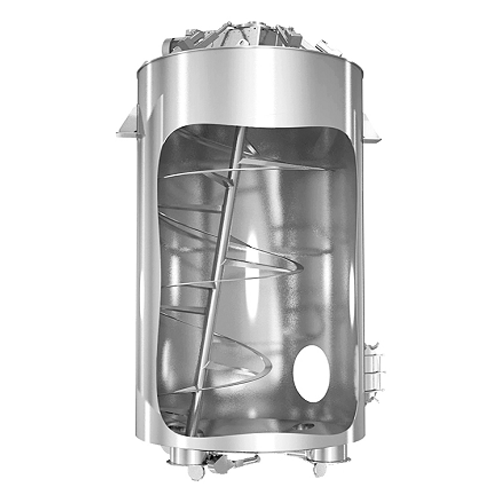
Large batch gyraton® mixer for homogenizing moist and poorly flowing materials
Optimize your production line with this...
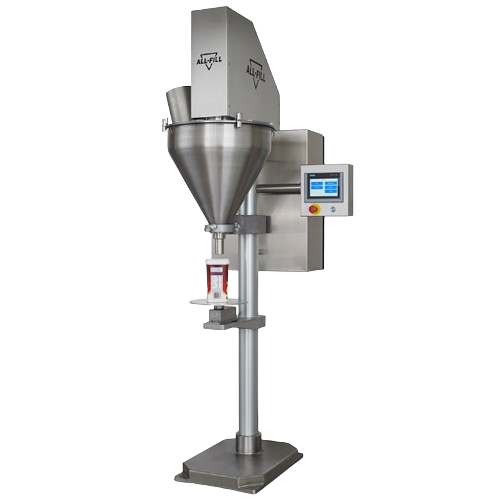
Gravimetric filling solution for inconsistent density products
Achieve precise weight accuracy in your filling processes...
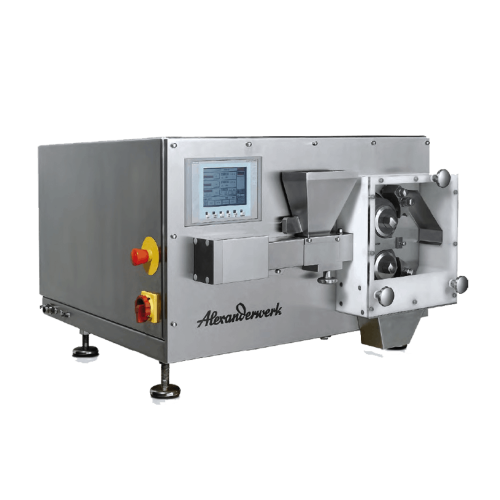
Pharmaceutical roller compactor for dry granulation
When precision and uniformity in tablet production are crucial, optim...
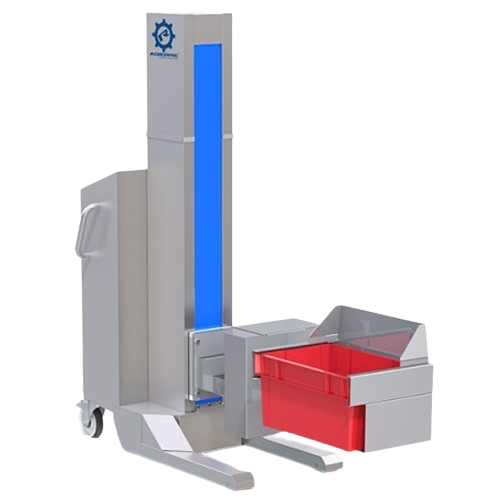
Lifting column for plastic boxes in pharmaceutical processing
Optimize your tablet and powder processing by seamlessly l...
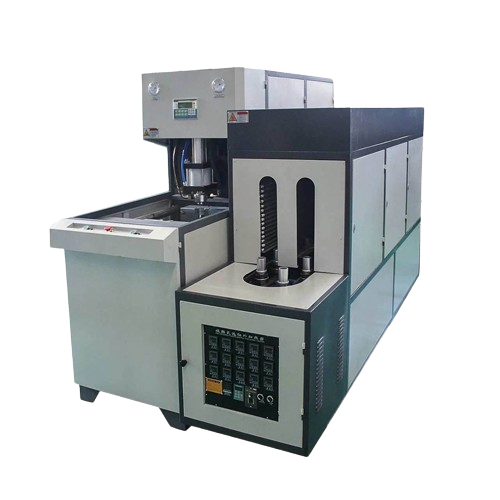
Powder dosing and weighing system
Optimize precision in pharmaceutical processing with a system designed to ensure accurate...
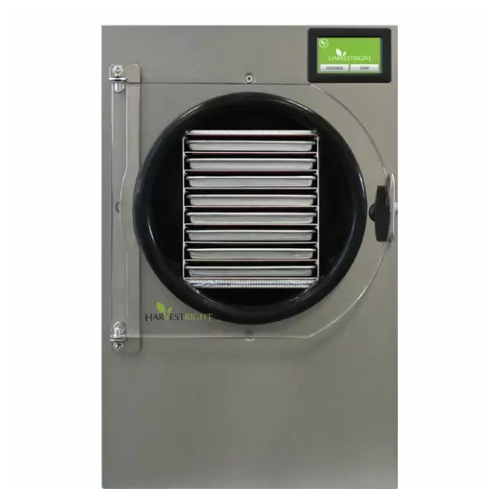
Pharmaceutical freeze dryer for medium scale production
Ensure optimal preservation of active ingredients through precise...
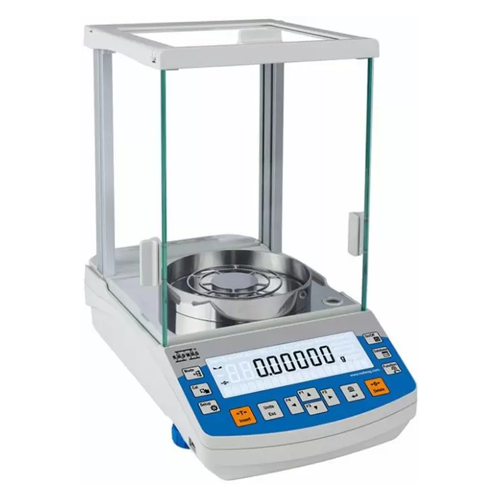
Analytical balance for precise laboratory measurements
Achieve unparalleled precision and reliability in your lab’s...
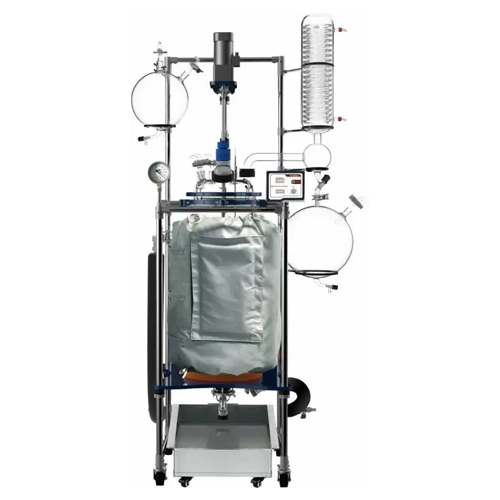
100l laboratory jacketed glass reactor
Optimize your batch processing with this 100L jacketed glass reactor, designed for p...
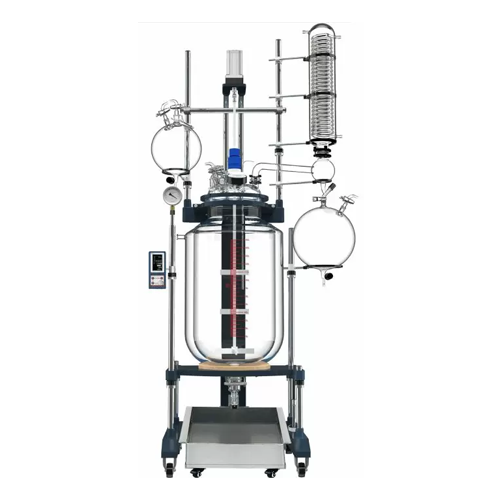
150l jacketed glass reactor for chemical synthesis
Achieve precise control over complex chemical processes with this sing...
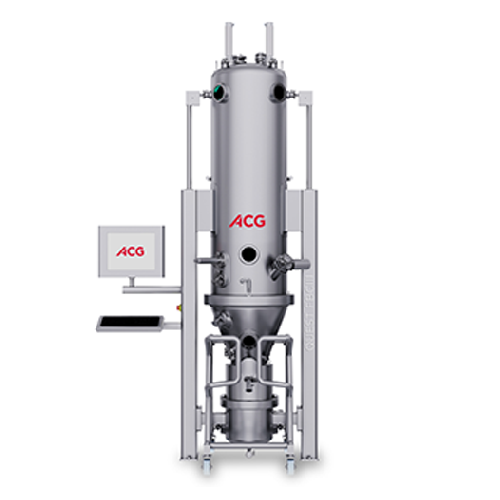
Intermediate-scale fluid bed system for drying and granulation
Achieve precise drying and granulation with this versatil...
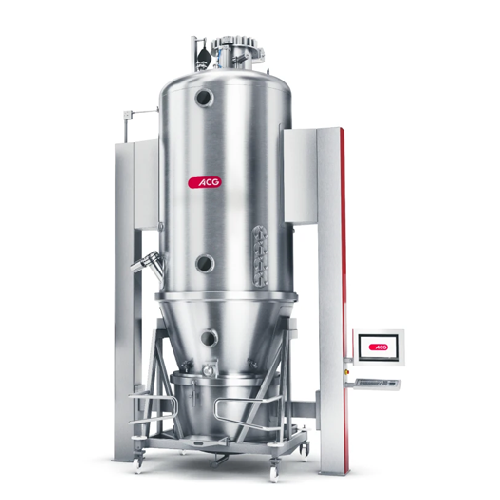
Fluid-bed granulator for top-spray applications
Need precise granulation and drying for sensitive materials? This fluid-be...
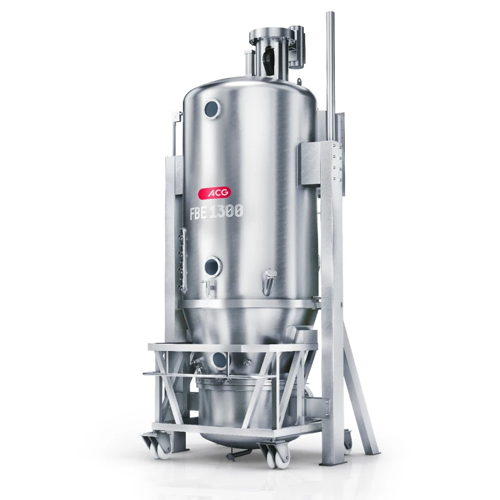
Fluid-bed drying and granulation system
Optimize your production line with high-speed batch processing for efficiently dryi...
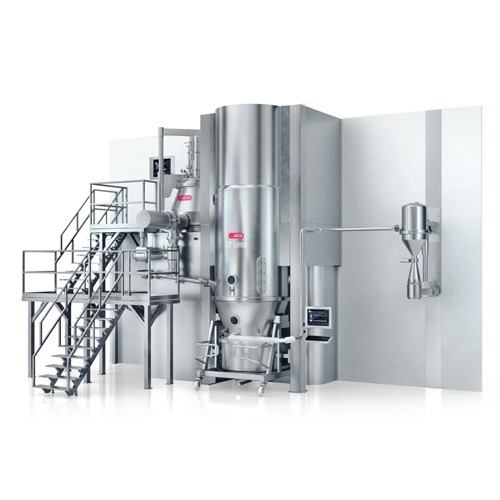
Integrated granulation train for pharmaceutical processes
Achieve precise granulation, uniform mixing, and efficient dry...
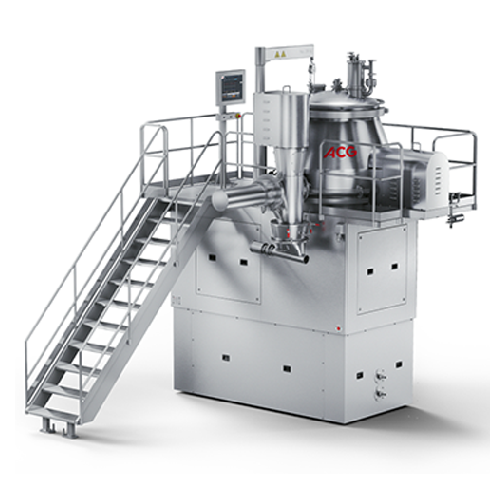
High-shear mixer for large-scale pharmaceutical production
Optimize your granulation process with an advanced high-shear...
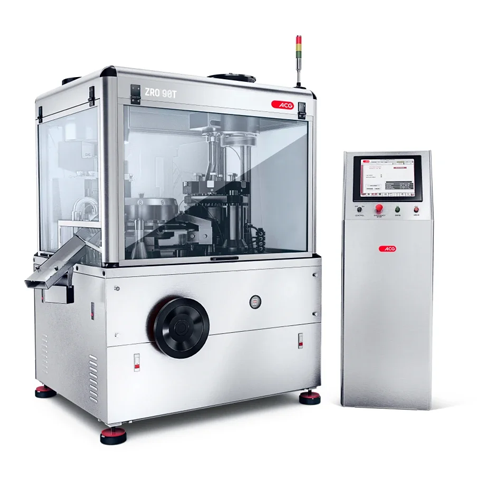
Capsule filler for high-speed, dust-free capsule production
Enhance your production efficiency with a solution designed ...
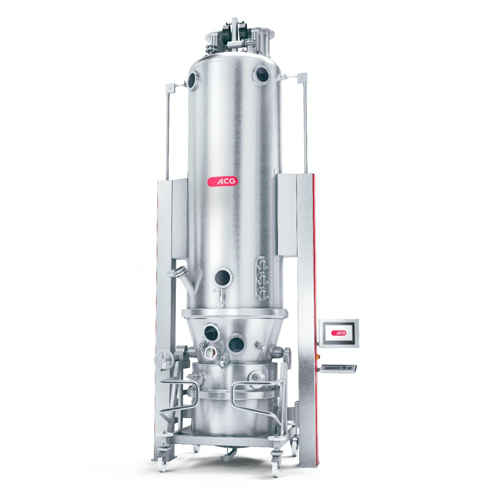
Fluid bed combo for granulation and coating
Achieve seamless granulation and coating with batch and high-speed operations,...
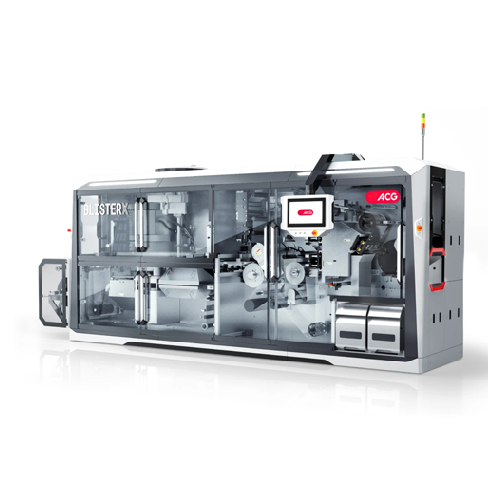
High-output blister packaging system
Maximize blister packaging efficiency with continuous-motion capabilities, ensuring su...
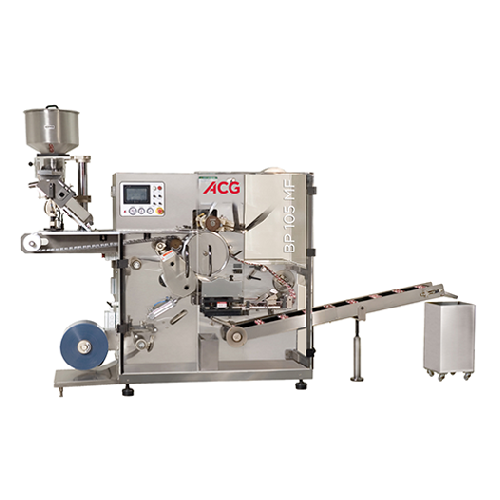
Rotary blister packaging for tablets and capsules
Optimize your blister packaging with high-performance rotary forming an...
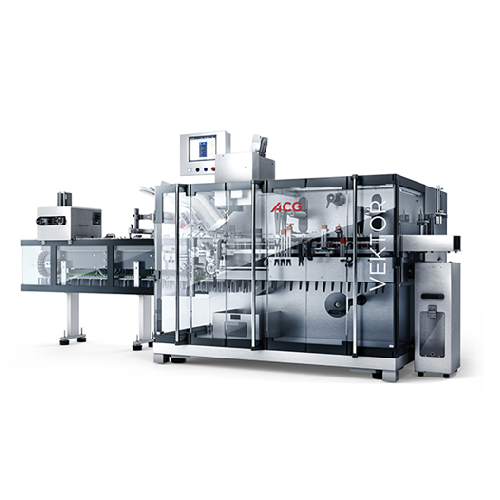
Intermittent motion cartoning machine for blister packs
Optimize your packaging line with a space-efficient cartoning mac...
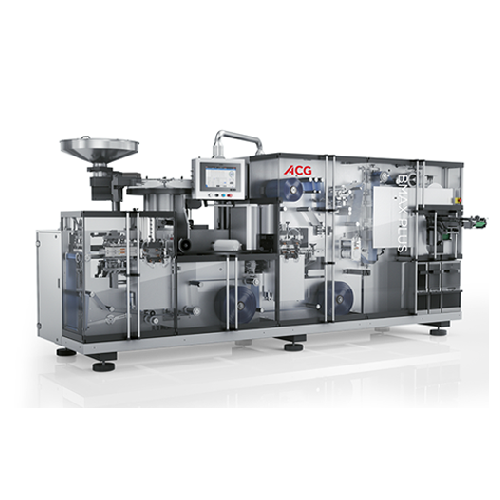
Flat forming and sealing blister packaging solution
Enhance your blister packaging process with a solution that ensures p...
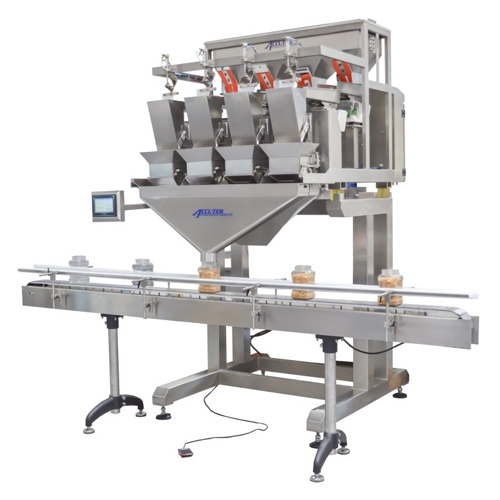
Automatic granular product weighing system
Effortlessly achieve precise fills for dry granular products and powders while ...
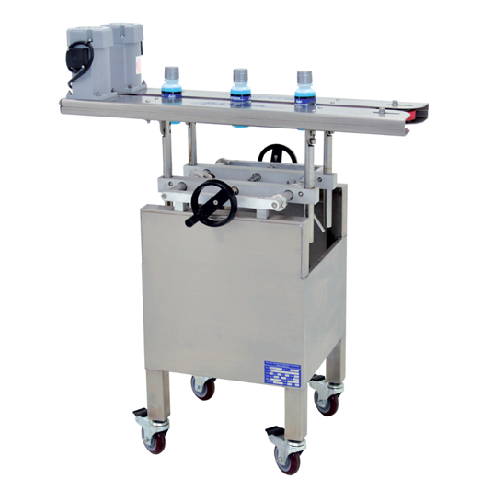
Bottomless conveyor for 90° bottle transfer and coding
Efficiently connect disparate production systems in your bottling ...
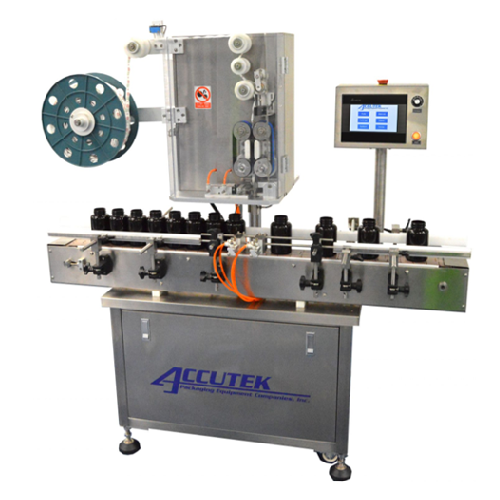
Desiccant inserter for pharmaceutical containers
Prevent product degradation by efficiently inserting desiccants into cont...
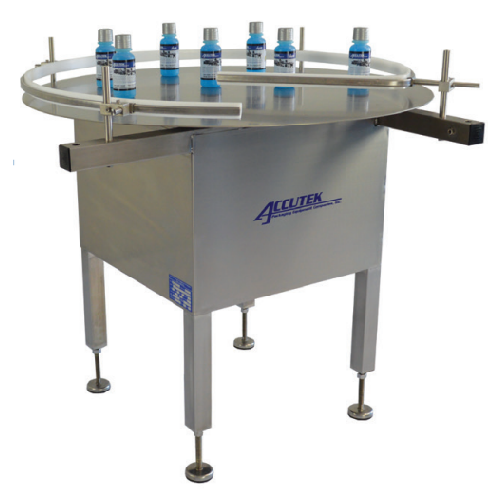
Accumulation turntable for bottling lines
Optimize your production line’s efficiency with a 42-inch diameter accumul...
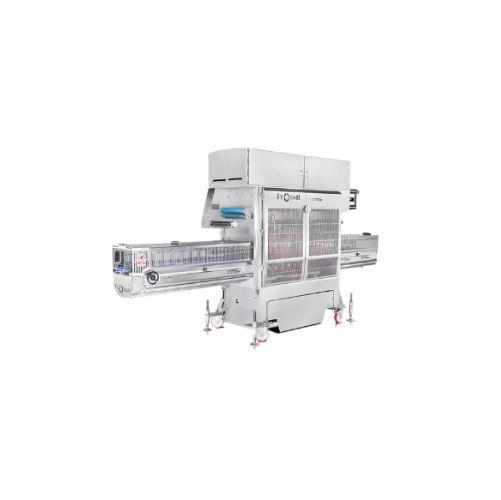
Automatic inline tray sealer for food packaging
Streamline your packaging process with high-speed, reliable tray sealing t...
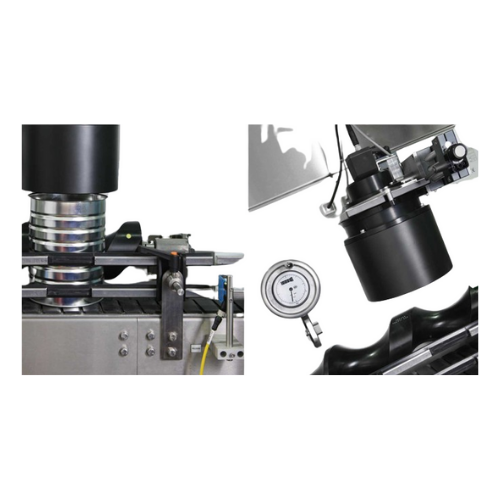
Container inspection and particulate detection system
Ensure product integrity and efficiency by accurately detecting and...
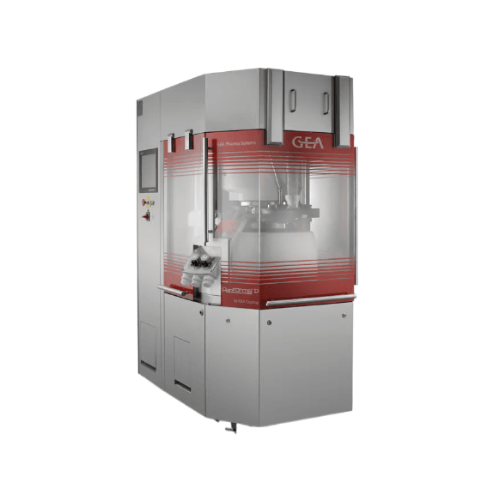
Rotary tablet press for pharmaceutical industries
Optimize your tablet production with swift format changeovers and bi-la...
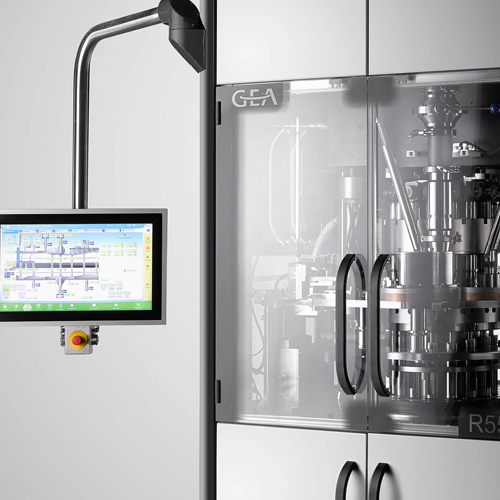
Heavy-duty tablet press for single & double-layer tablets
Maximize your tablet production with a high-speed solution cap...
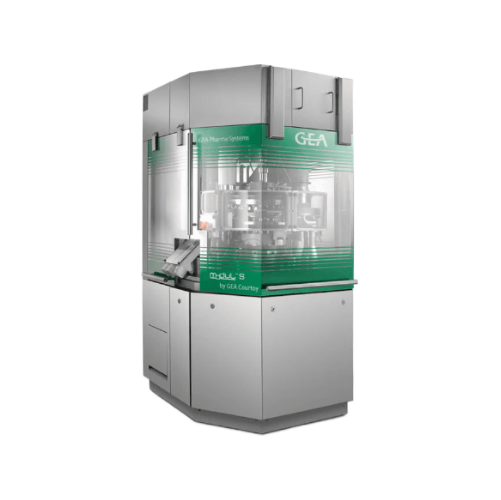
Medium-volume rotary tablet press for pharmaceuticals
Optimize tablet production with high-throughput and rapid changeove...
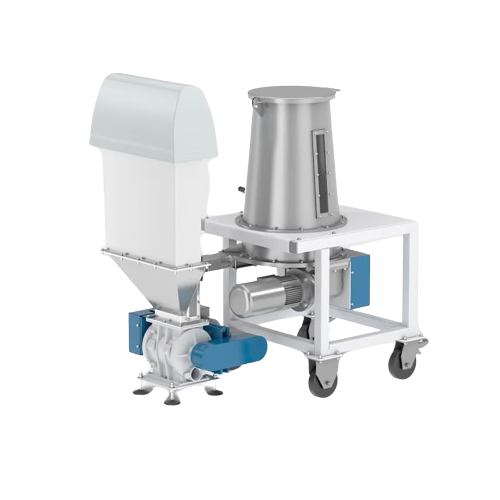
Micro-ingredients doser for precise powder additives
Maintain precision and hygiene in your production line with a specia...
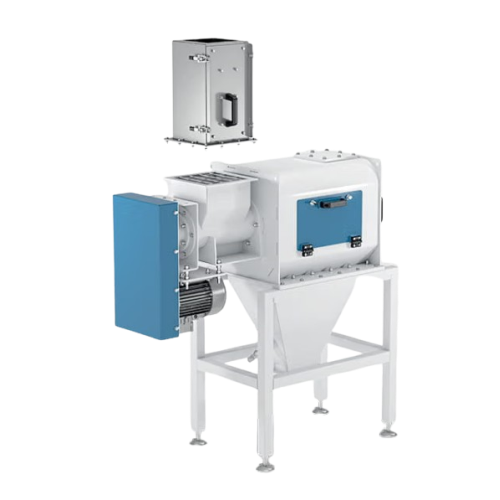
Rotary cleaner for raw material sieving
Ensure precise raw material quality with a rotary cleaner that efficiently sieves a...
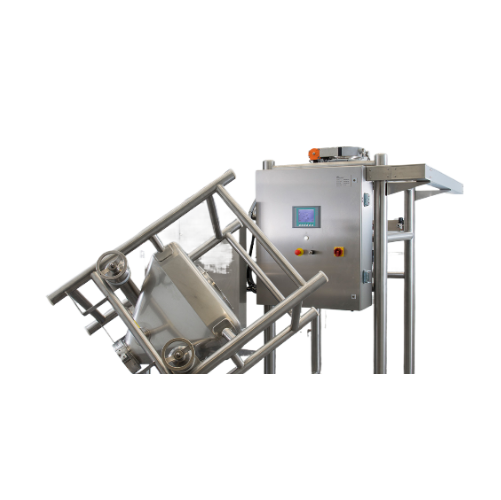
Intermediate bulk container (ibc) blending for pharmaceutical manufacturing
Streamline your pharmaceutical blending pr...
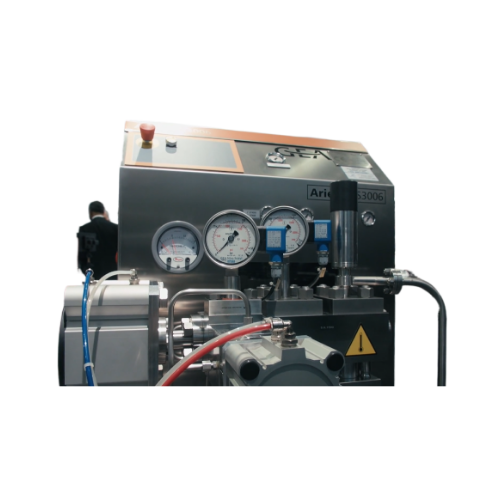
Pharmaceutical homogenization skid system
Achieve precise particle size reduction and efficient cell rupture with an auton...

Pharmaceutical freeze dryer for large-scale production
Streamline your freeze-drying process with precision-engineered ly...
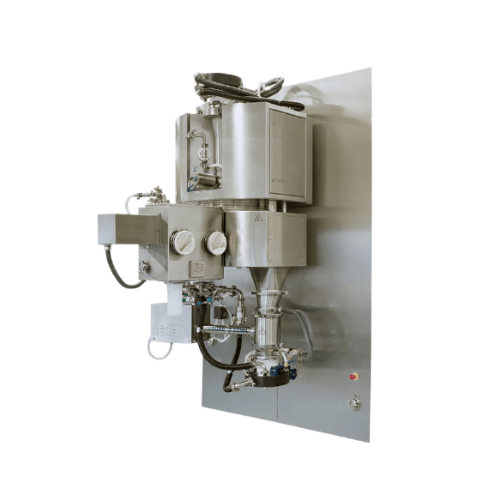
Single pot processor for granulation and drying
Streamline your pharmaceutical production with an integrated solution that...
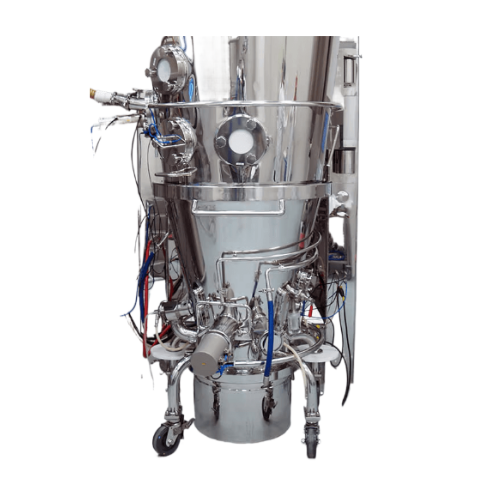
Fluid bed processing of pharmaceuticals
Enhance your pharmaceutical production with versatile fluid bed processors, enablin...
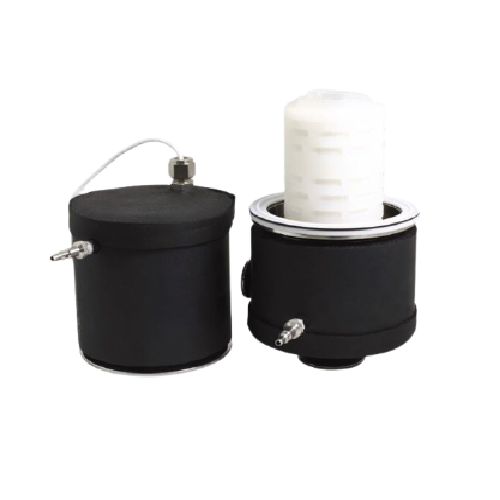
Large production autoclaves for laboratory and pharmaceutical use
Enhance your production line with our large autoclave...
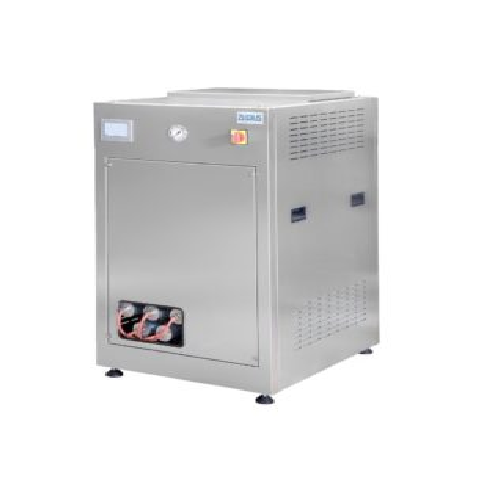
Pure steam generator for industrial applications
Ensure the highest levels of steam purity and precise pressure control fo...
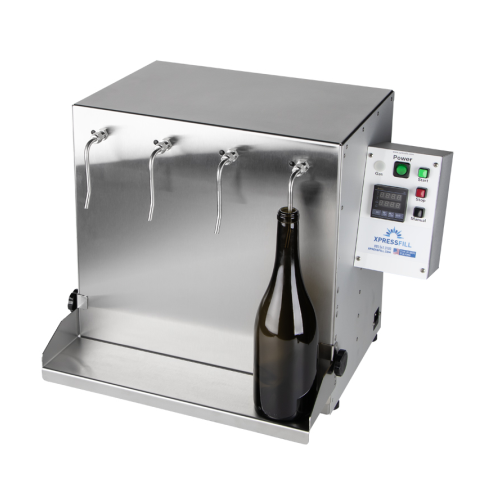
Volumetric bottle filler for distilled spirits
Ensure precise volume control and compliance with regulatory standards in y...
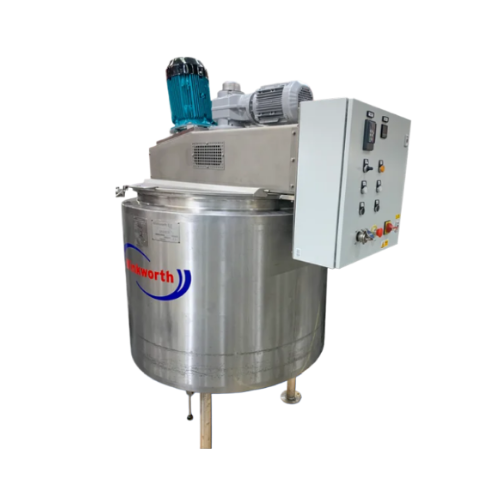
Pv processing vessels for liquid and cream mixing
Optimize your mixing operations with versatile processing vessels desig...
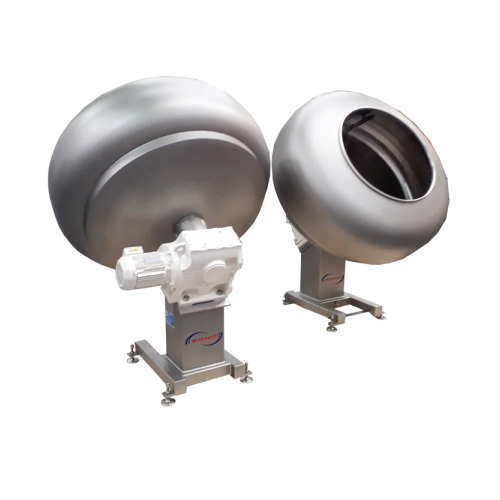
Industrial coating pans for sweets and confectionery
Ensure even and consistent coatings with high-capacity pans designed...
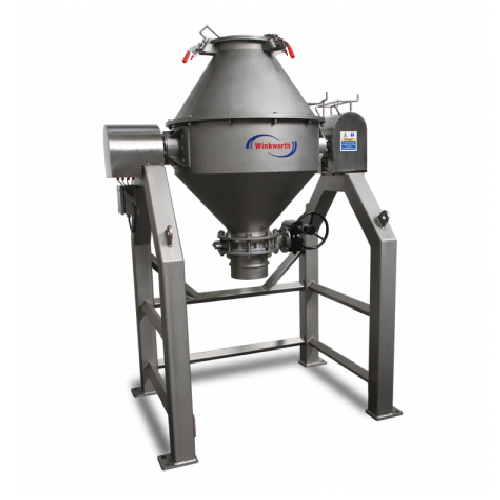
Double cone mixer for free-flowing material blending
Optimize your production with precision blending and gentle drying o...
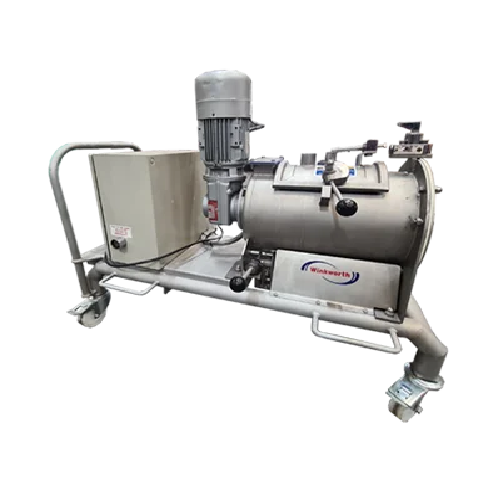
Industrial mixers for hire
Optimize your production line with versatile mixers designed for precision blending, heating, and...
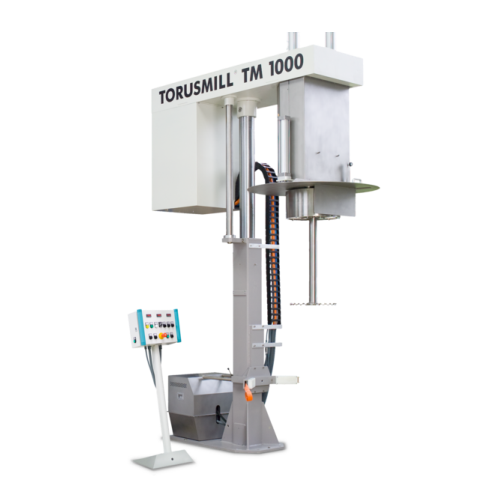
Basket mill with integrated dissolver for high viscosity products
Optimize your production efficiency by combining disp...
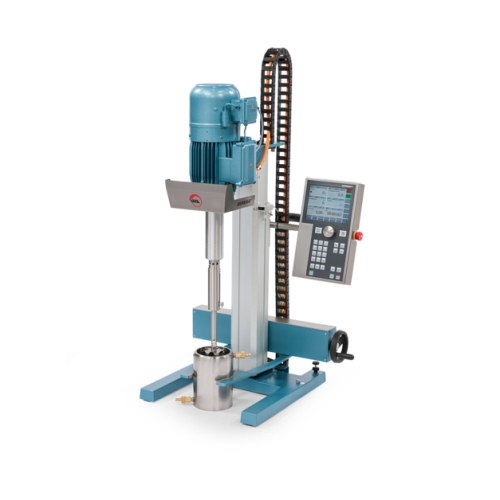
Rotary homogenizer for laboratory and pilot plant
For achieving optimal dispersion in complex formulations, this solution...
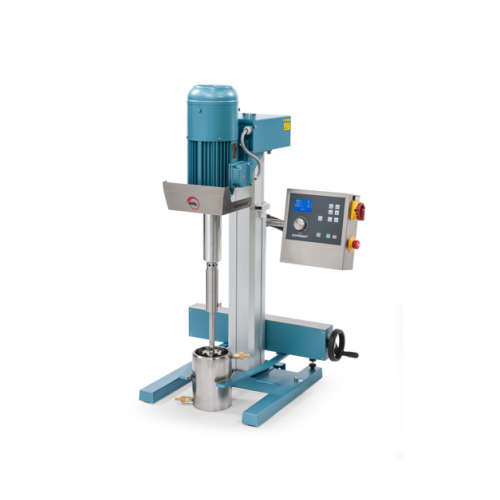
Dissolver for mixing and processing in lab and pilot plant
Optimize your material dispersion and homogenization processe...
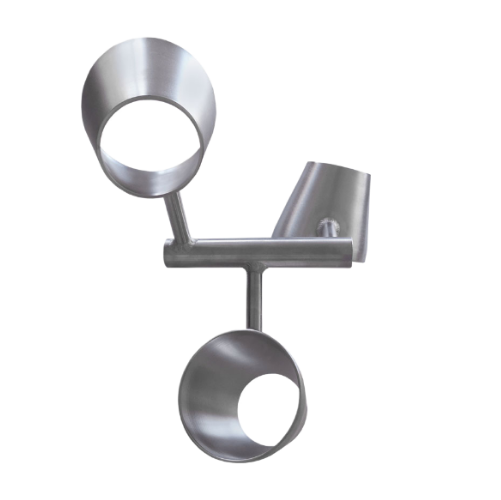
Side-mount agitator for large tank mixing
Achieve efficient mixing in large tanks with reduced energy consumption by lever...
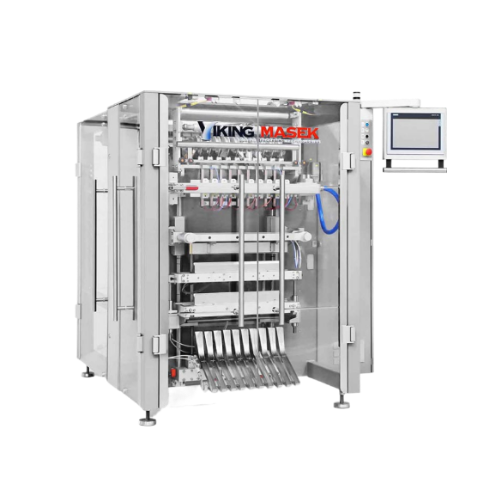
Stick pack packaging for powders and liquids
Streamline your packing process with high-speed, servo-driven stick pack mach...
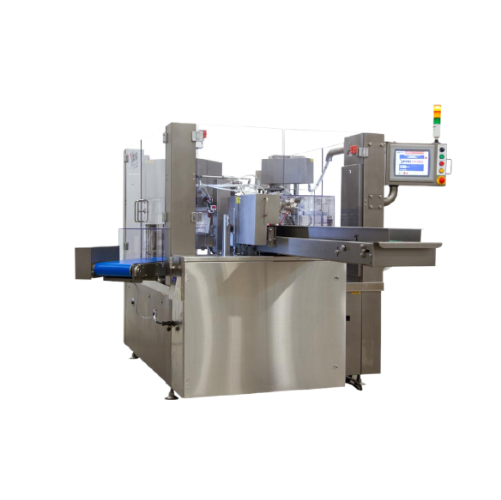
Premade pouch fill and seal solution
Effortlessly fill and seal various pouch sizes for streamlined packaging in diverse fo...
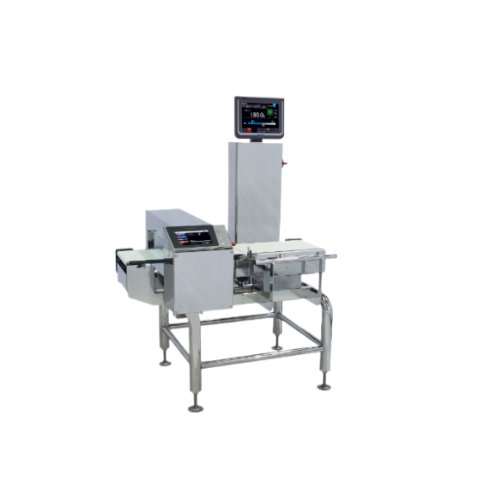
Product inspection systems for contamination control
Ensure product safety and compliance with precision inspection techn...
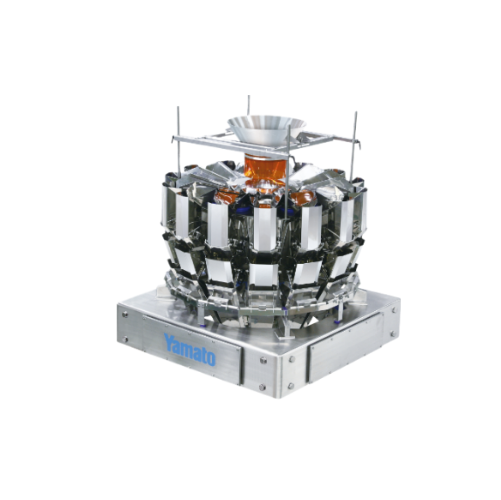
Industrial product fillers for precise packaging
Achieve consistent package weights and volumes with precision filling sol...
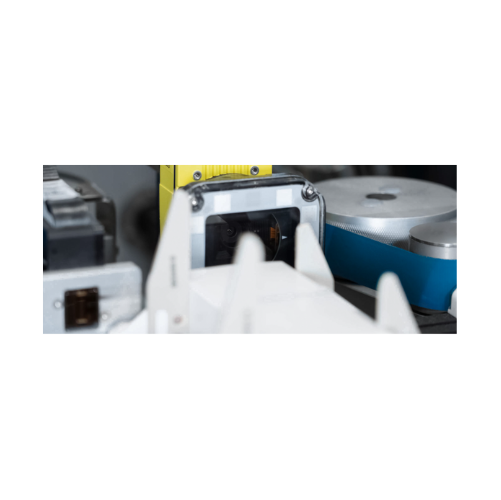
Sachet packaging lines for pharmaceuticals
Optimize your pharmaceutical production with high-speed sachet packaging lines ...
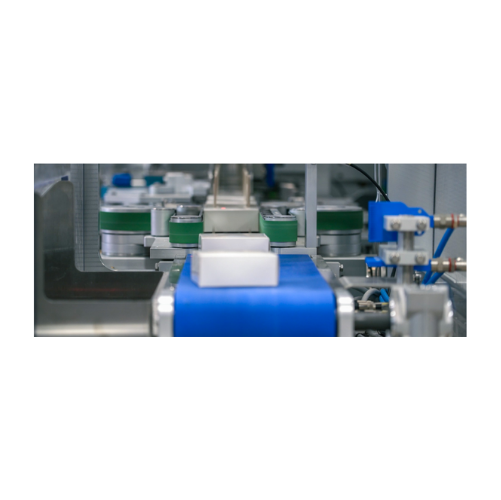
Cartoning solution for pharmaceutical products
Ensure accurate and efficient packaging of pharmaceutical products with pre...
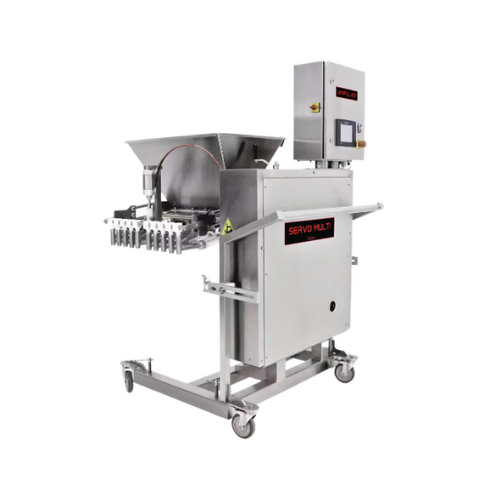
Servo multi piston depositor for bakery production
Streamline your bakery production with precise portion control and hig...
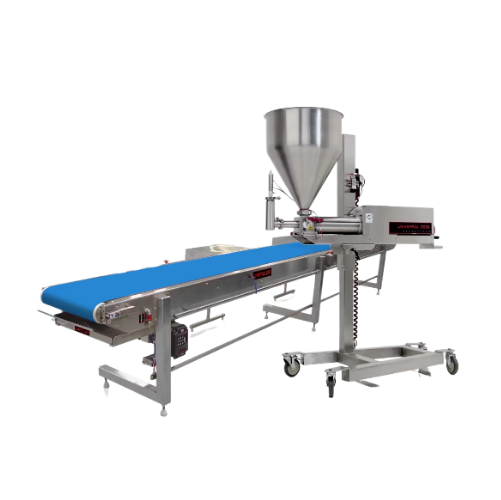
Single piston food depositor for temperature-sensitive environments
Optimize your production with a versatile depositor...
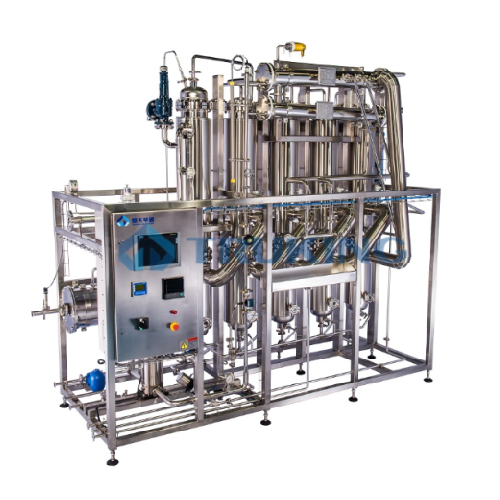
Multi-effect water distillator for pharmaceutical applications
Ensure your production line meets stringent regulatory st...
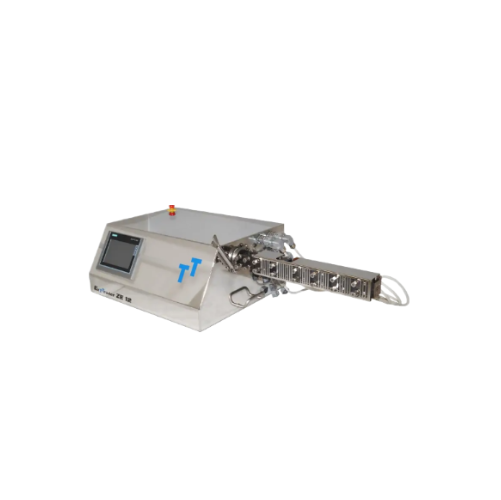
Table-top mini extruder for precision material processing
Achieve precise control over complex formulations with this fl...
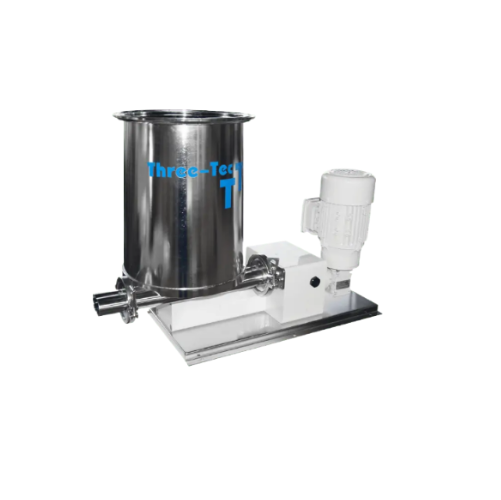
Volumetric twin-screw feeder for poorly flowing powders
For manufacturers dealing with powders that clump or cake, this f...
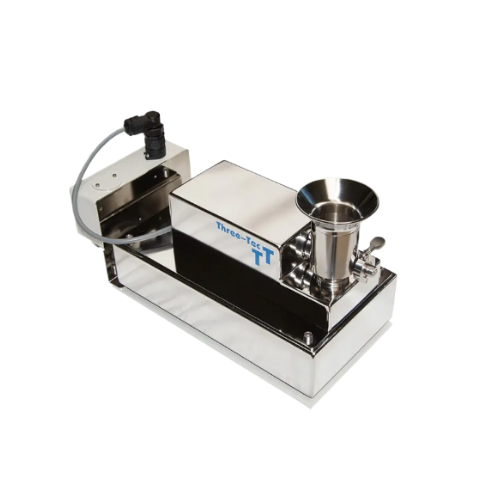
Small-scale twin-screw feeder for powder handling
Perfect for precision in lab environments, this small-scale feeder effi...
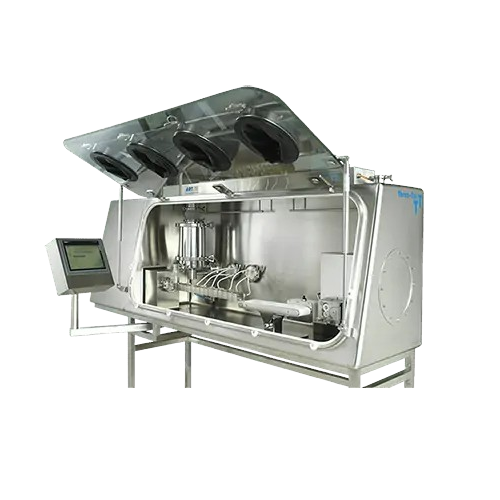
Isolator high containment for granule production
Ensure high-purity production in pharmaceuticals with controlled granulat...
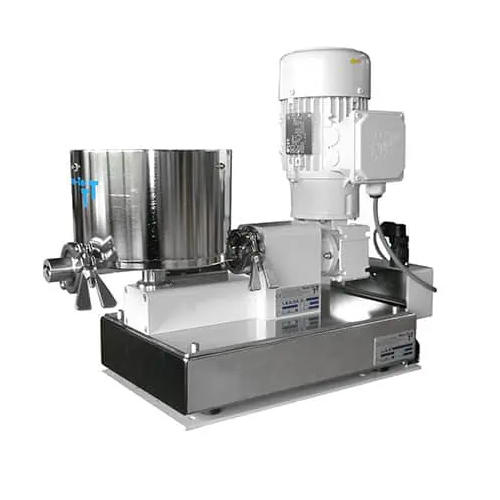
Volumetric flat-bottom twin-screw feeder for powders
When handling powders prone to clumping, a reliable feeder ensures u...
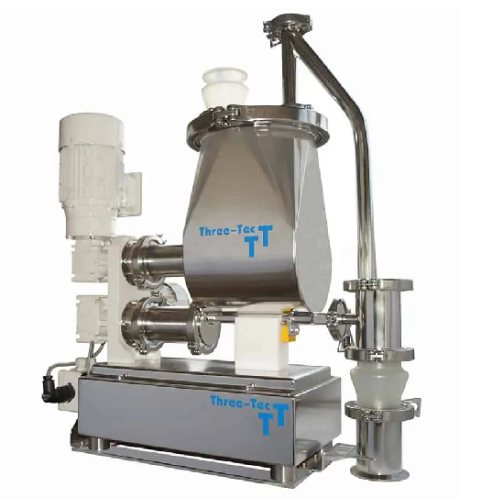
Quick change feeding devices for industrial applications
Experience seamless product transitions with quick-change feedin...
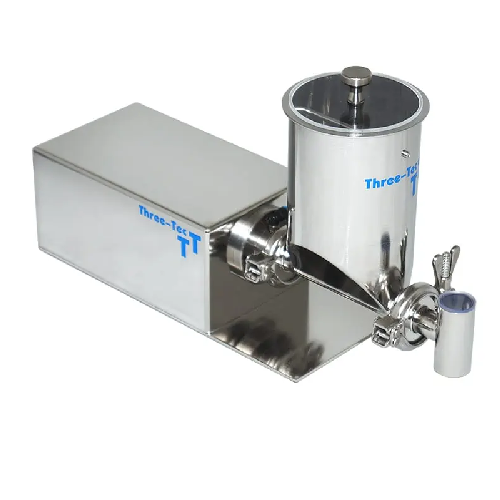
Volumetric single-screw feeder for fine dosing
Achieve precise and consistent dosing of fine powders and granules with a c...
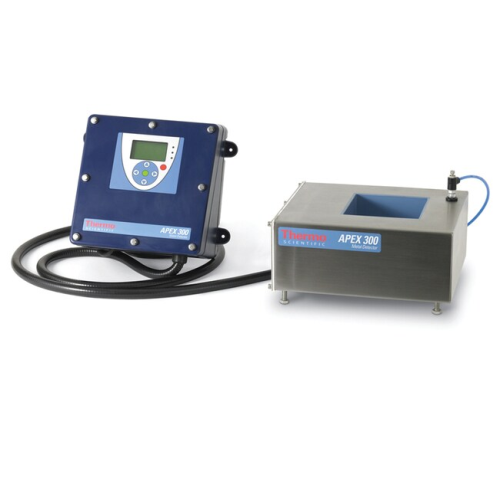
Industrial metal detector for food and beverage applications
Ensure your production line is free from metal contaminants...
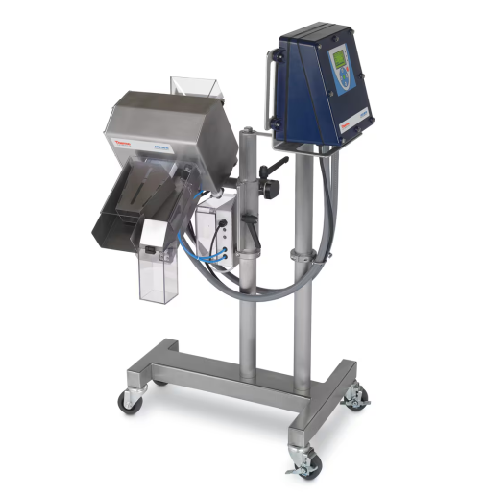
Pharmaceutical metal detector for tablet presses and capsule filling
Detect and eliminate metal contaminants in high-sp...
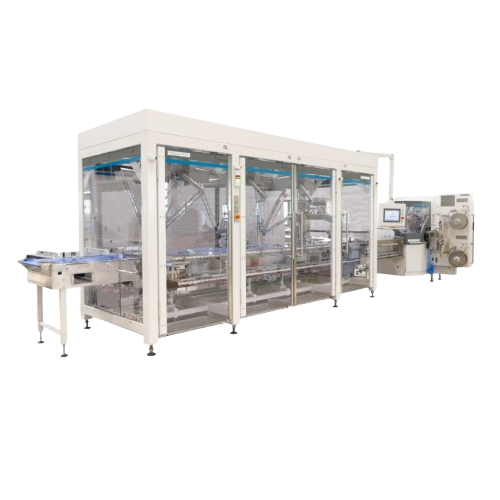
Vision-based robotic feeding system
Enhance your production line with precise robotic feeding, optimizing product placement...
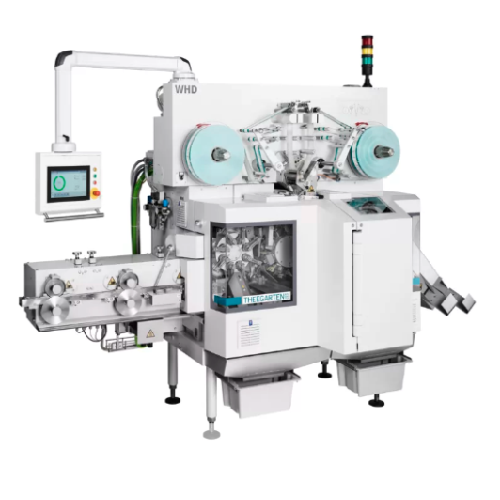
High-speed double twist packaging system for soft caramels
Streamline your confectionery packaging process with a high-s...
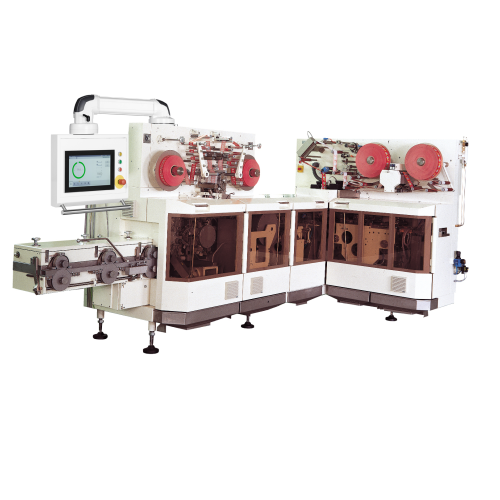
High speed packaging system for fold wrap and stick packs
Streamline your confectionery production with a versatile syst...
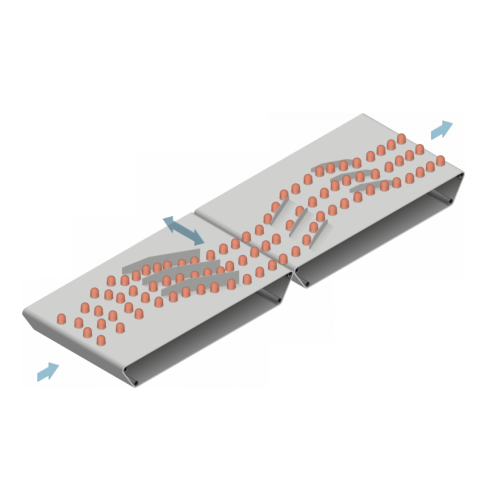
Lane arrangement for efficient product transfer
Optimize your production line’s efficiency with seamless integration...
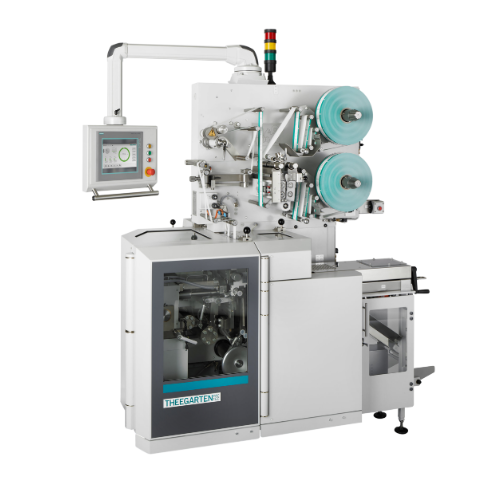
Twin-lane high-speed forming, cutting, and wrapping system
Achieve unparalleled packaging efficiency with a high-speed t...
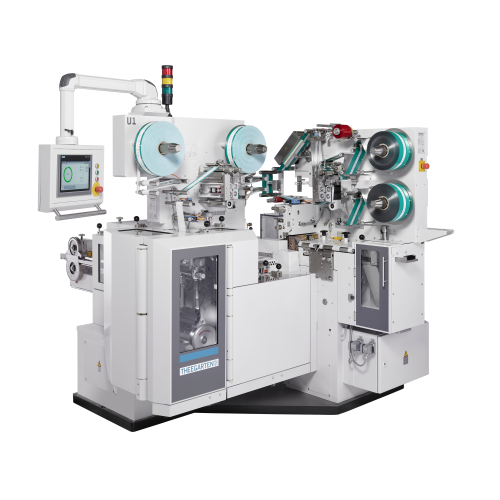
High speed packaging system for soft caramels
Optimize your confectionery line with a high-speed solution designed to seam...
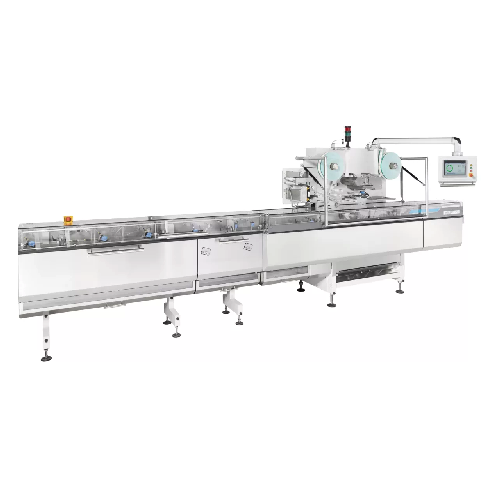
High-speed wrapping solution for compressed powder products
Efficiently wrap high-volume compressed powder products with...
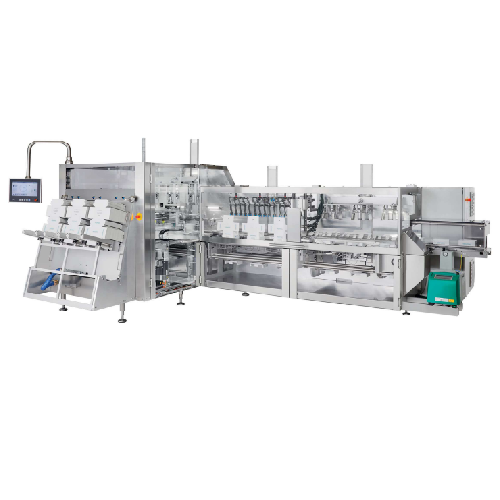
High-speed cartoning system for primary wrapped products
Optimize your packaging line with this high-speed cartoning syst...
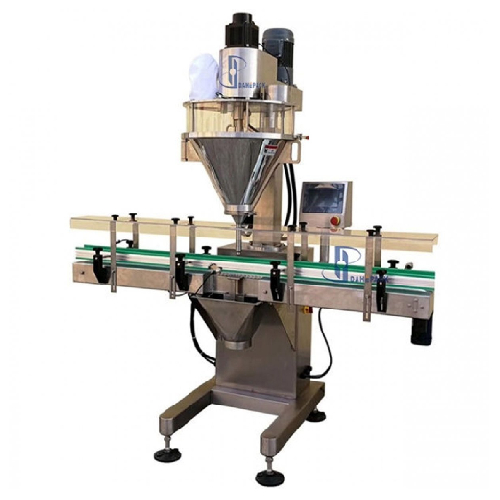
Volumetric auger filler for powder packaging
Streamline your powder packaging process with precise and efficient volumetri...
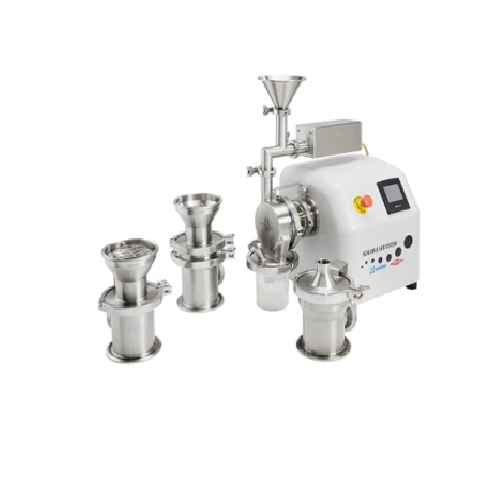
Lab scale hammer mills for fine particle size reduction
Optimize your R&D scaling efforts with versatile lab equipme...
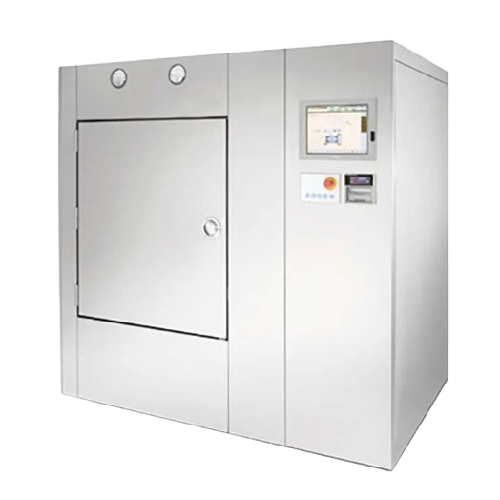
Dry heat sterilization and depyrogenation oven for glassware
Achieve precise sterilization and depyrogenation of glasswa...
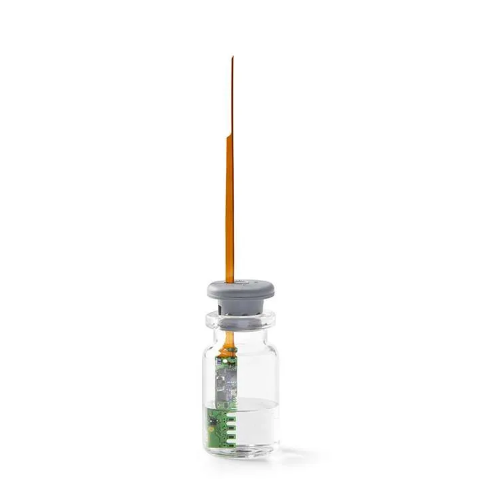
Sublimation front monitoring system for freeze drying
Ensure precise control over your freeze-drying process with real-ti...
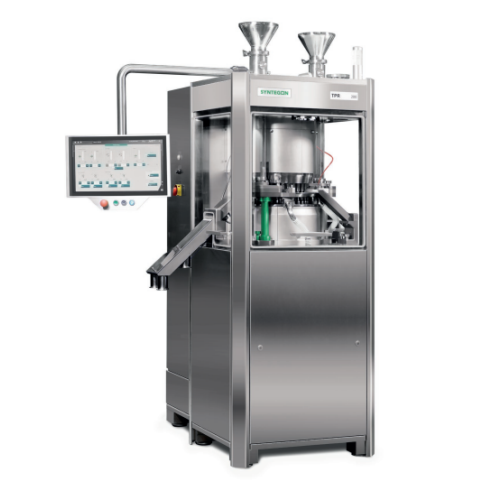
Tablet compression technology for pharmaceutical production
Enhance your production capabilities with advanced tablet co...
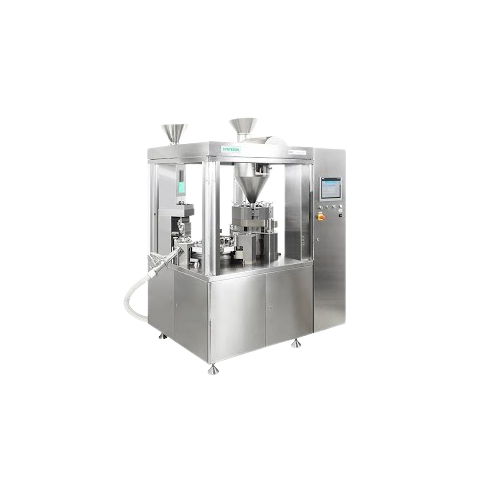
Capsule filling for nutrition and health products
Optimize your production line with advanced capsule filling capabilitie...
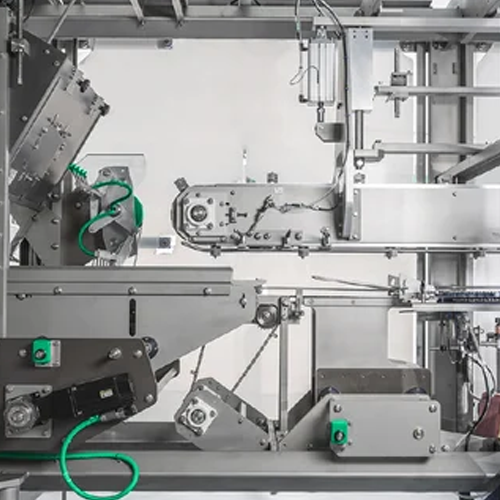
Nutraceutical products processing and packaging
Streamline your nutraceutical production with versatile equipment capable ...
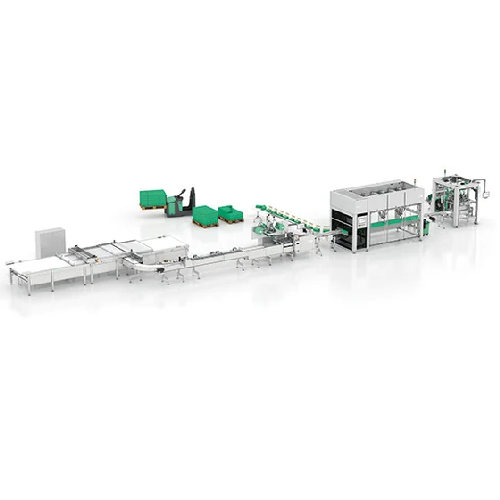
Automated visual inspection for pharmaceutical products
Ensure the integrity and safety of your parenteral products with ...
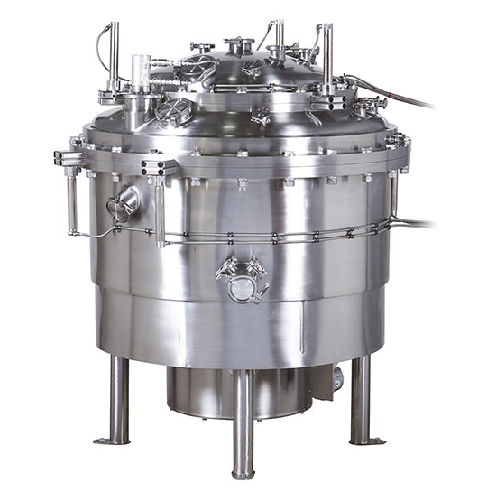
Pharmaceutical aseptic separator tumble dryer
Streamline moisture reduction with precision: this solution accelerates dryi...
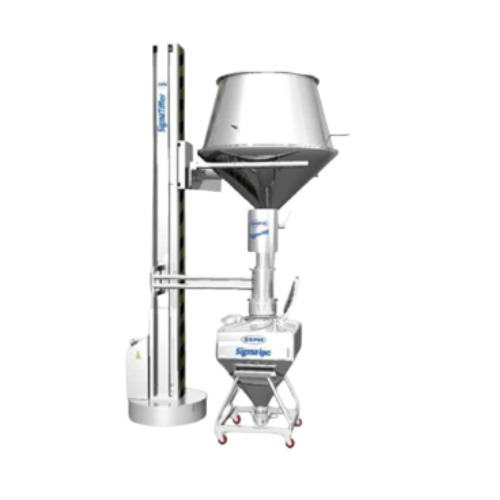
Material handling system for granules and powders
Optimize your production with seamless material handling specifically d...
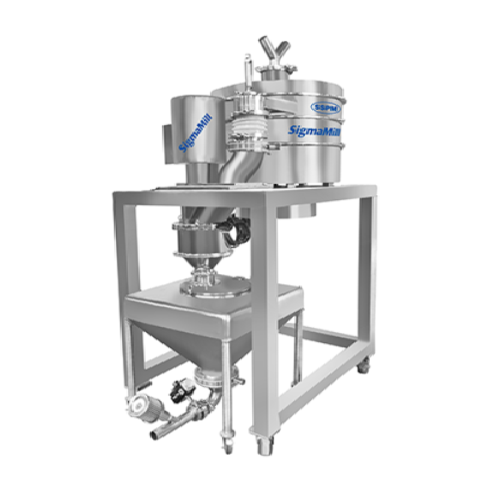
Wet granulation for pharmaceutical products
Achieve seamless integration of sifting and milling with precise powder handli...
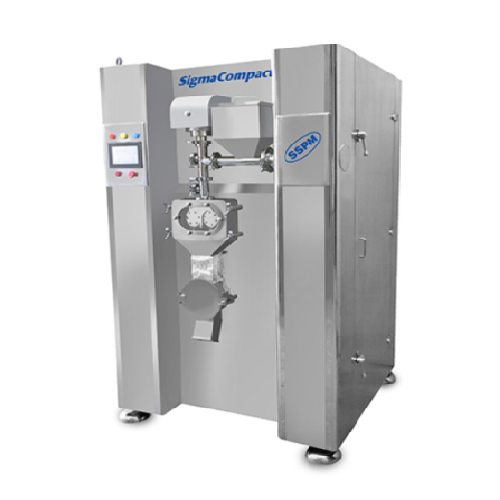
Dry granulation roll compactor
Optimize your tablet and capsule formulation by efficiently compacting and granulating powder...
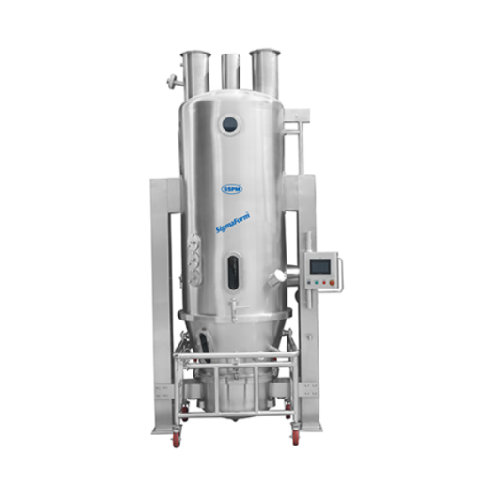
Fluid bed dryer for wet granulation in pharmaceutical industry
Streamline your production with fast, uniform drying and ...
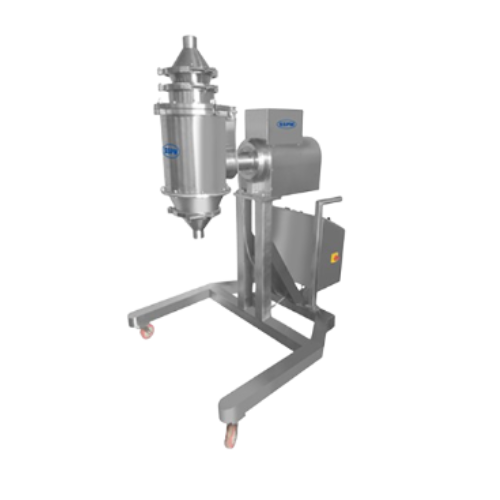
High-speed sifting for safety screening in pharmaceutical production
Achieve precise particle sizing with a high-speed ...
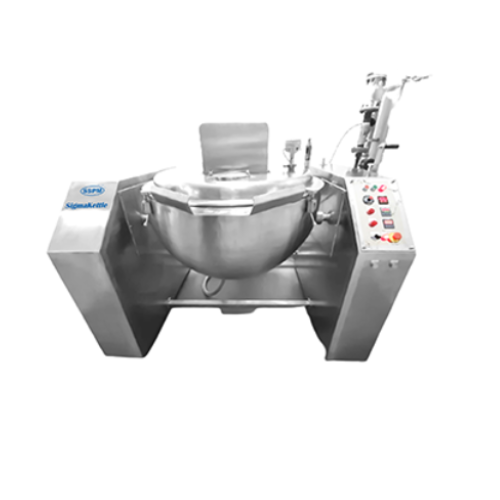
Steam/electrical kettle for wet granulation processes
Achieve precise moisture content and uniformity in your granulation...
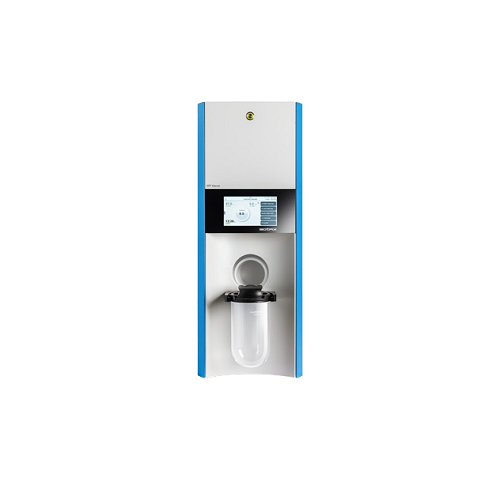
Dissolution medium preparation system
Streamline your laboratory workflows with a system that prepares and manages dissolut...
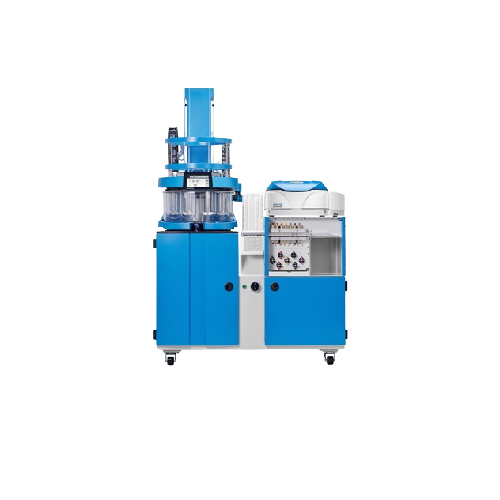
Advanced dissolution tester for pharmaceutical laboratories
Achieve consistent and reproducible dissolution results with...
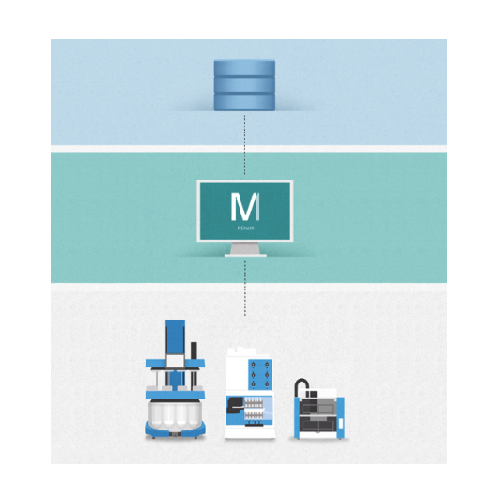
Dissolution testing software for automated analysis
Streamline your laboratory testing with seamless data capture and in-...
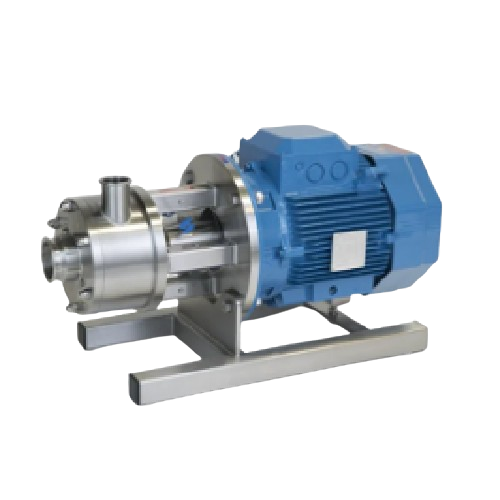
High shear mixer for efficient particle size reduction
Achieve rapid and precise blending and particle reduction in your ...
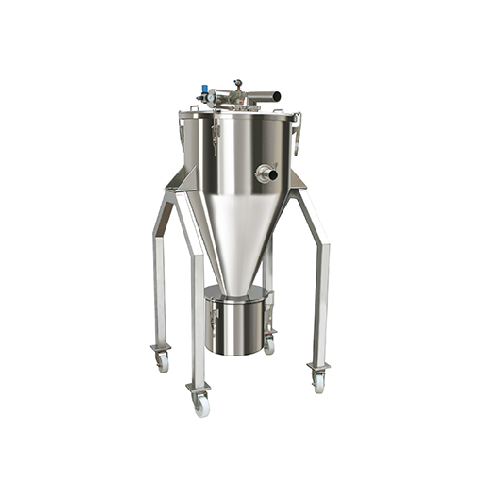
Pneumatic conveying system for dry bulk powders
Ensure seamless and contamination-free transfer of pharmaceutical powders ...
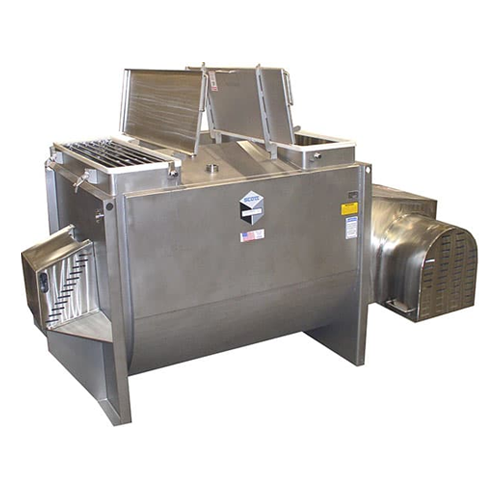
Industrial batch mixer agitators
Achieve precise and efficient mixing of diverse materials with industrial batch mixer agita...
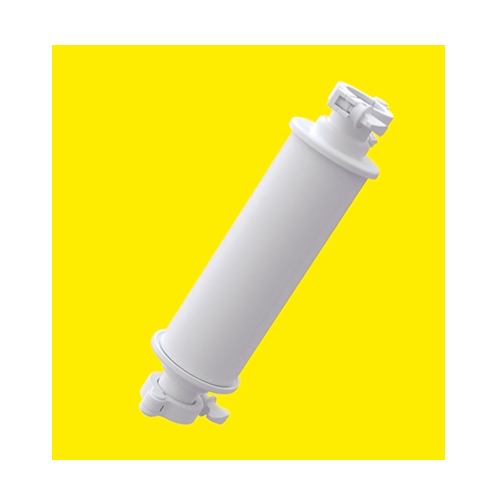
Single-use batch chromatography systems for biopharmaceuticals
Streamline your purification process with high productivi...
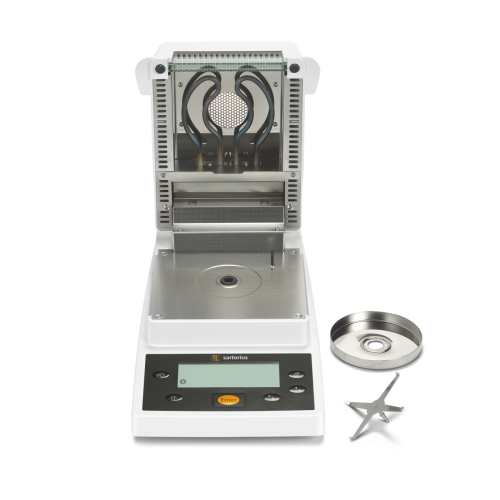
Infrared moisture analyzer for lab and production use
Achieve precise and reliable moisture analysis with minimal time an...
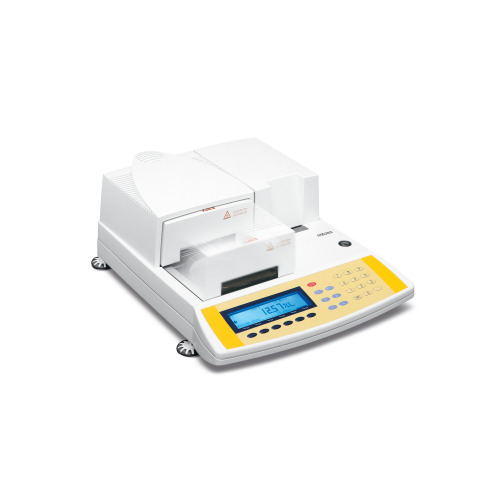
High-accuracy moisture analyzer for lab weighing
Achieve precise and reproducible moisture content determination for diver...
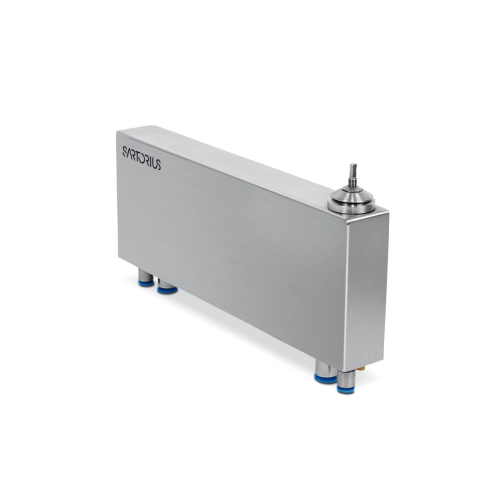
Semi micro and micro weighing cells for lab weighing
Achieve unparalleled precision in your laboratory measurements with ...
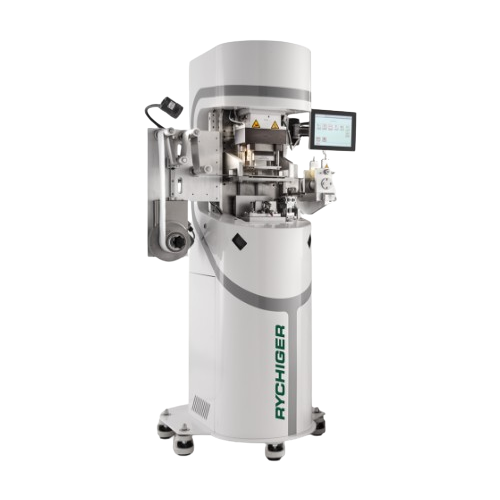
Lab punching and sealing system for cleanroom conditions
Test and refine your packaging processes with precision, ensurin...
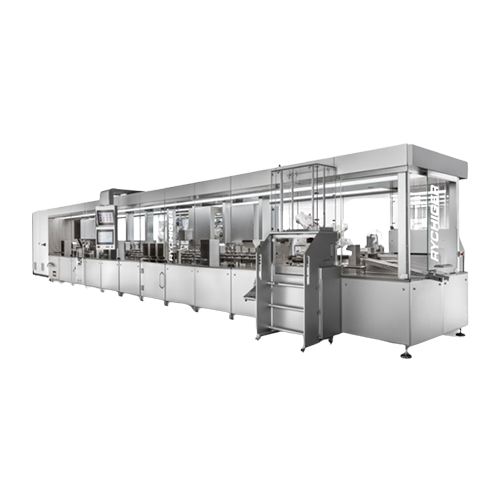
Production system for molecular diagnostics
Eliminate bottlenecks in molecular diagnostics production with a versatile sys...
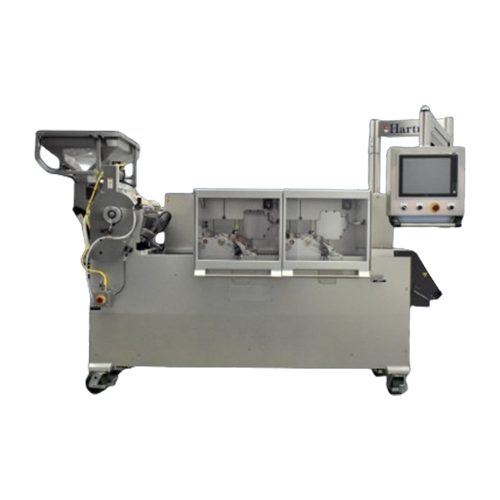
Capsule printer for pharmaceutical applications
Experience precise dual-color printing with high-speed efficiency for caps...
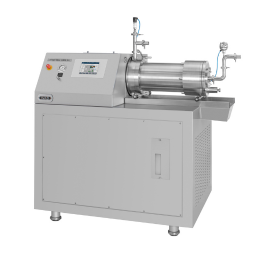
Agitator bead mill for functional foods and flavors
Fine-grinding solid flavors to improve taste properties and integrati...
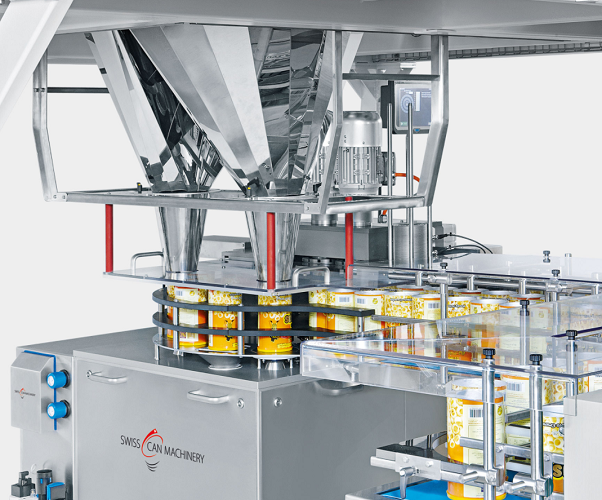
Filling and weight checking machine for food cans
Making sure the right quantity of product is in the packaging can be a ...
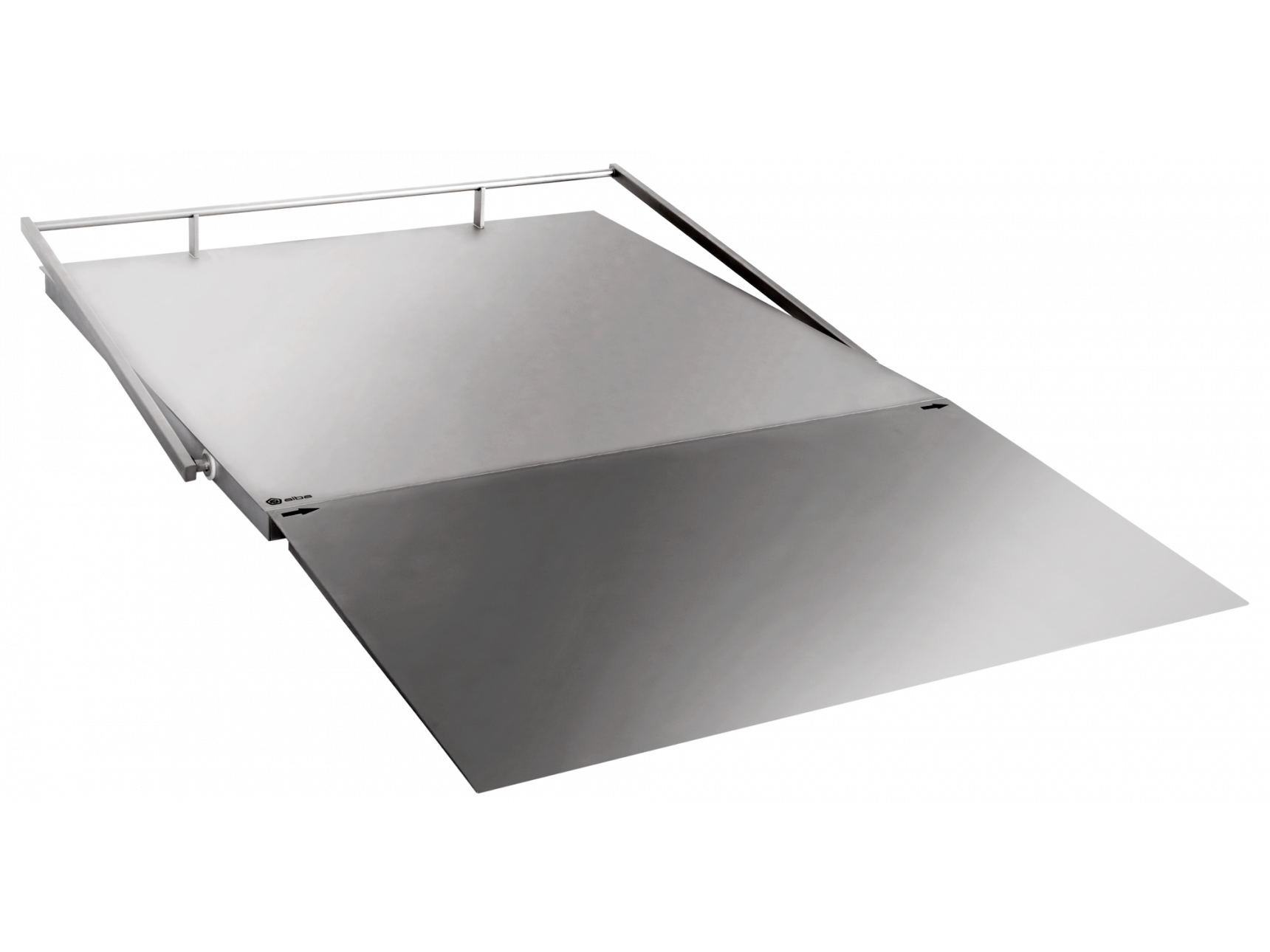
Hygienic floor scale
The food and pharmaceutical industries require maintaining high levels of sanitations as well as logisti...
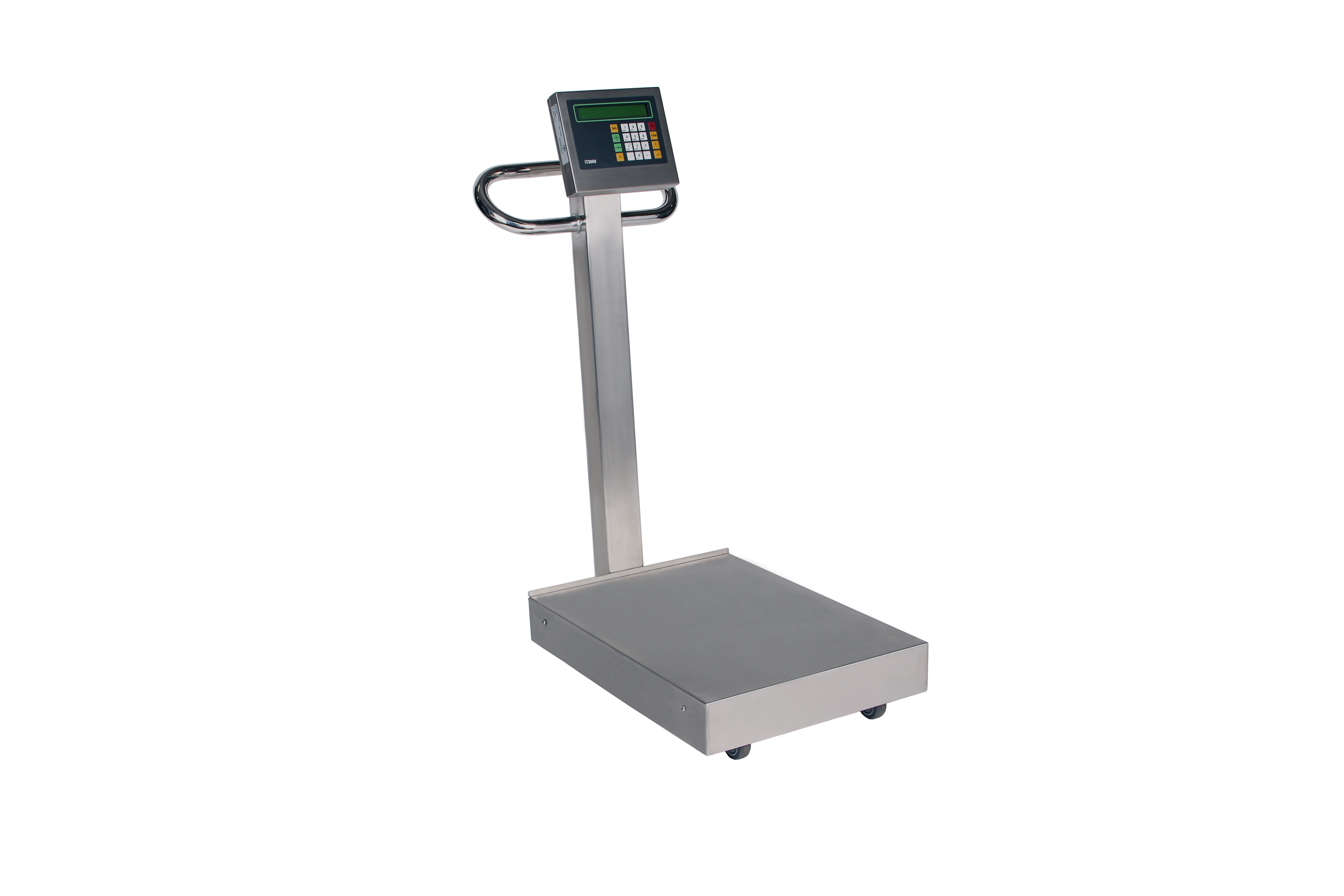
Hygienic mobile scale
Having a reliable and accurate weighing and measuring solution is absolutely essential, especially in t...
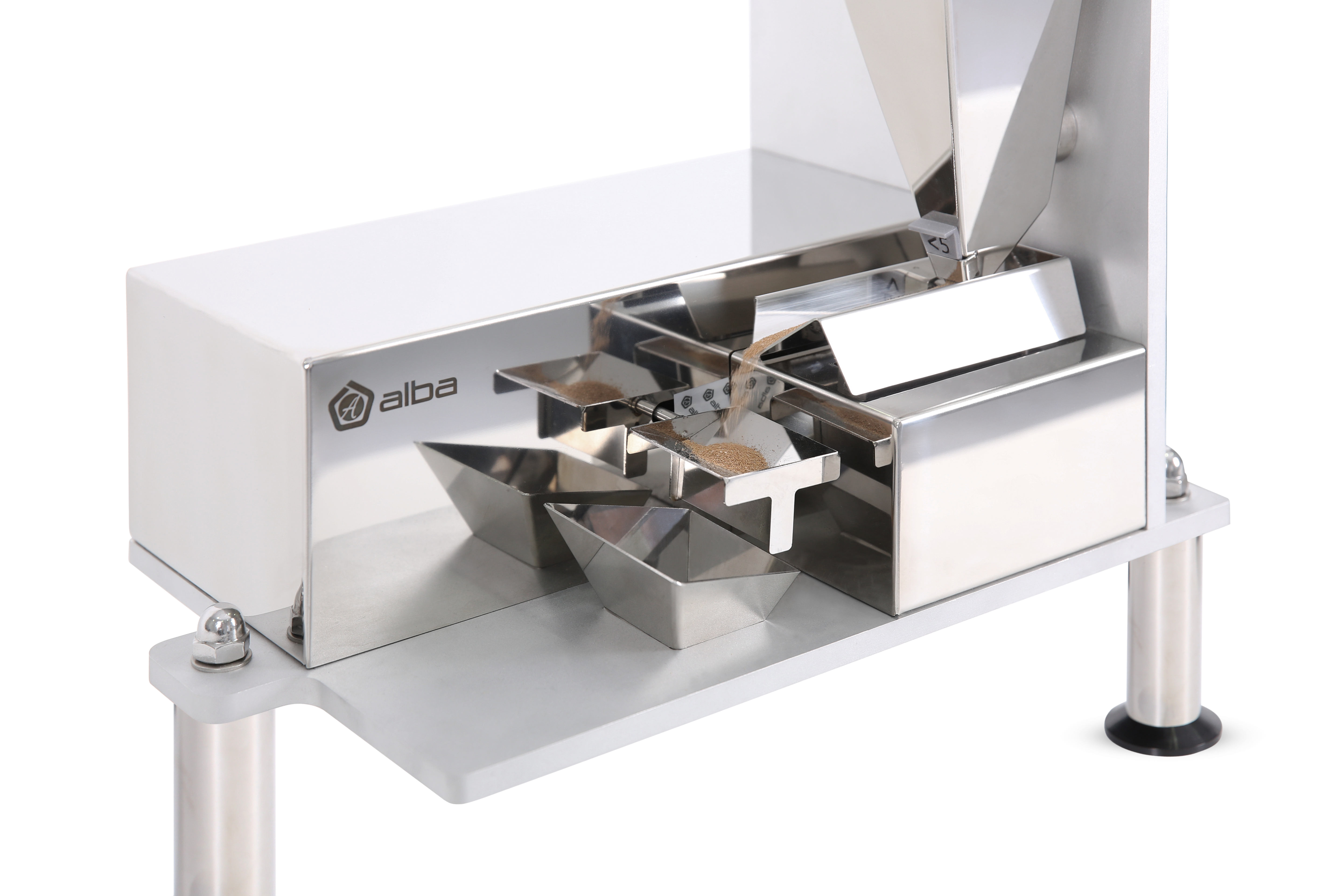
Gravimetric powder microdosing 2 - 100 g
Powders and granules are commonly dosed for the manufacturing of pharmaceuticals, ...
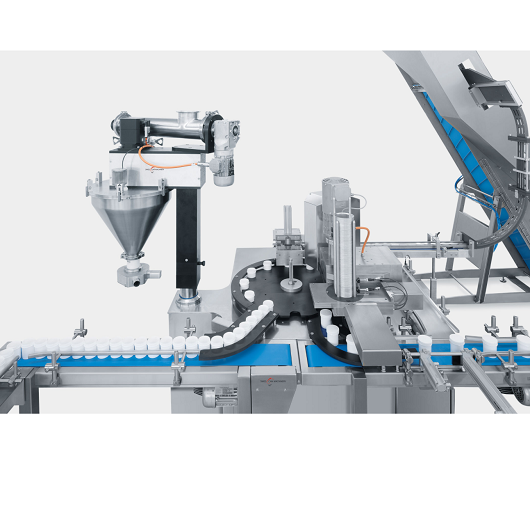
Can filling equipment
Having separate equipment for different process steps like filling and closing, can put a brake on grow...
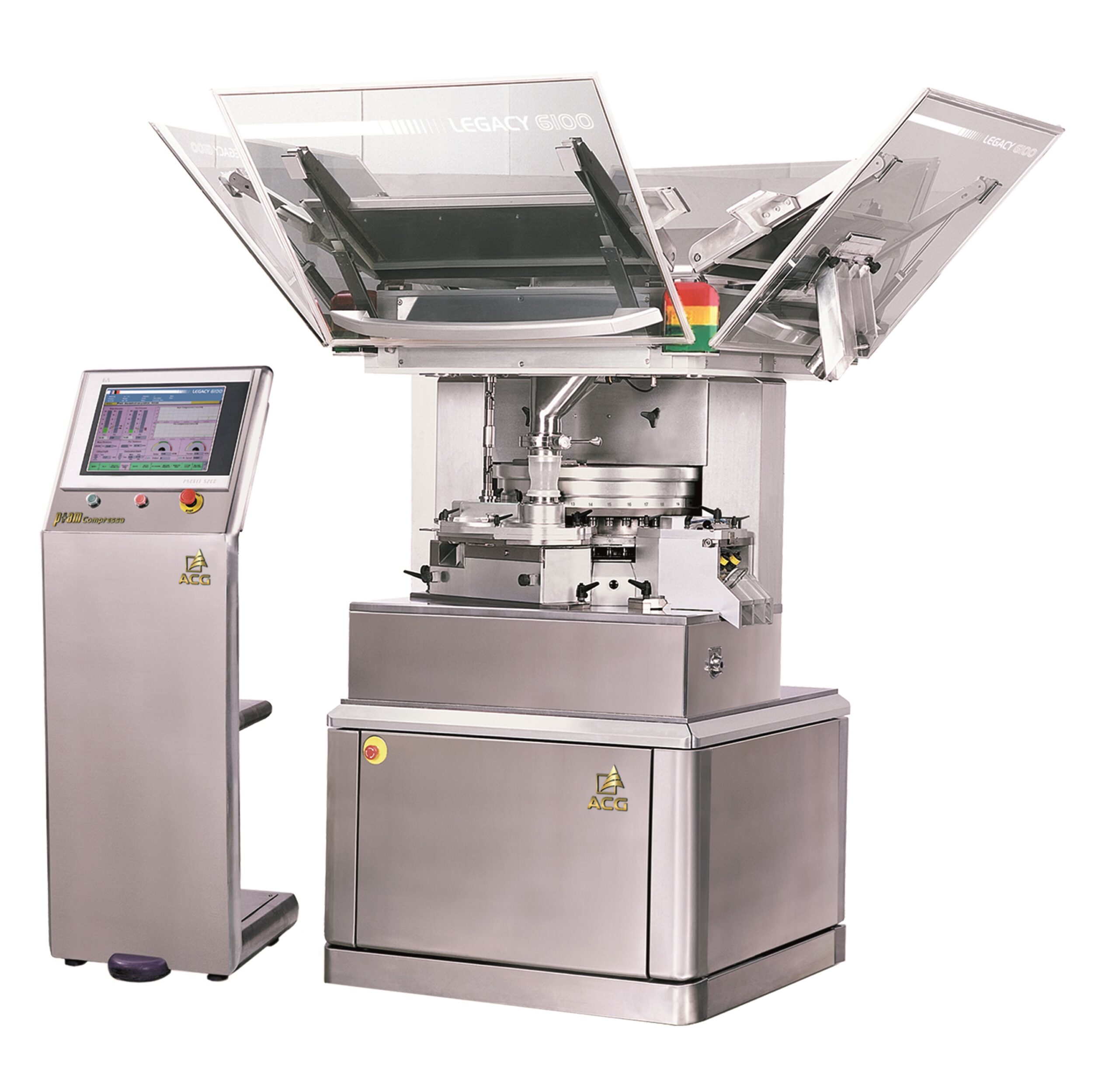
Economic tablet press
Successful pharmaceutical manufacturers know that high quality, reliable equipment is essential in orde...
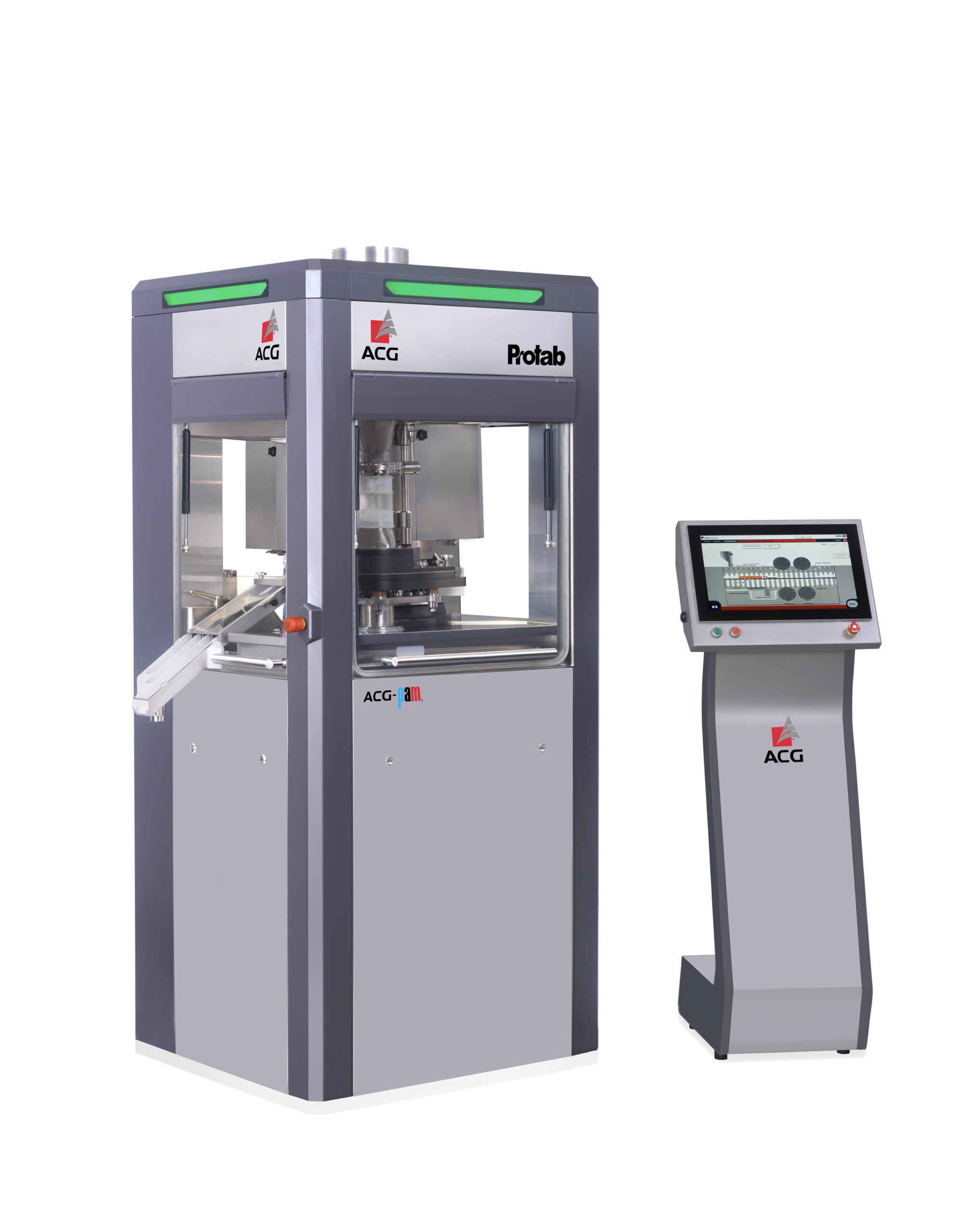
Single rotary tablet press
Creating batches of consistent high quality pharmaceutical grade tablets from your powdered ingre...
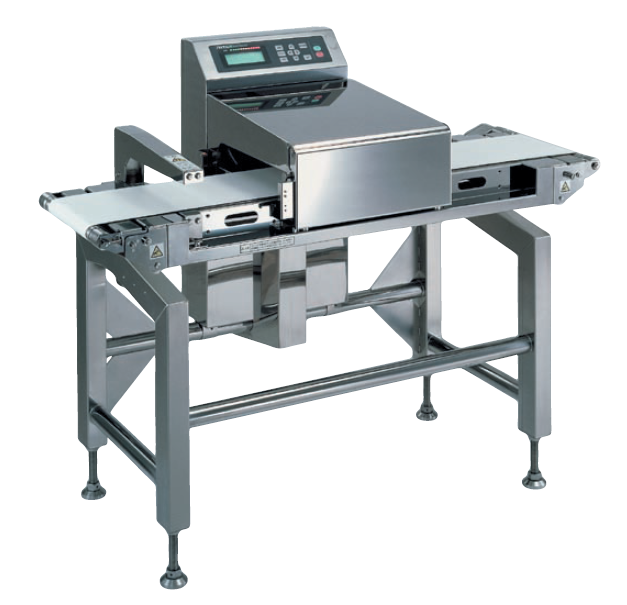
Metal detection system for aluminum packages
The magneto reflection system is ideal for detection of metals in aluminium f...
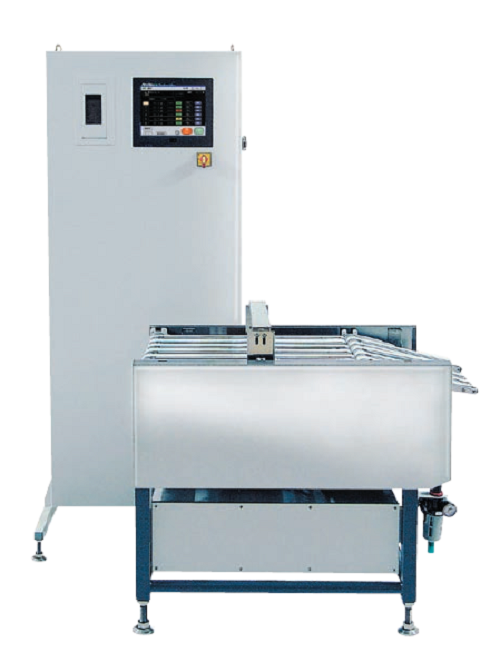
Checkweigher for sachets and sticks
The checkweighers for multiple lanes have a 1.5 times faster response speed and 2 times...
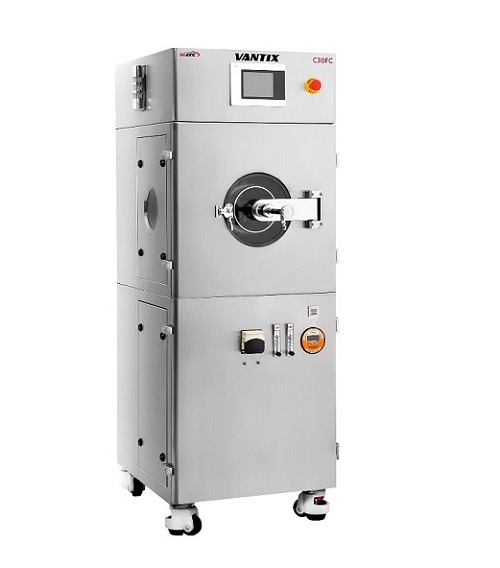
Automatic tablet coater for lab scale
The ability to coat tablets in an even and controlled way is an important stage in th...
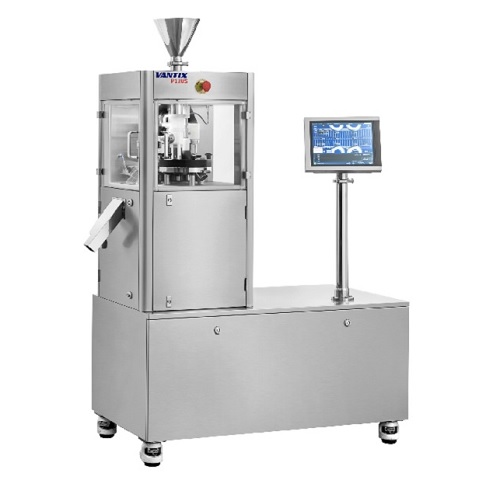
Lab scale single layer tablet press
Automated pressing of tablets saves time and improves quality. In R&D or laboratory...
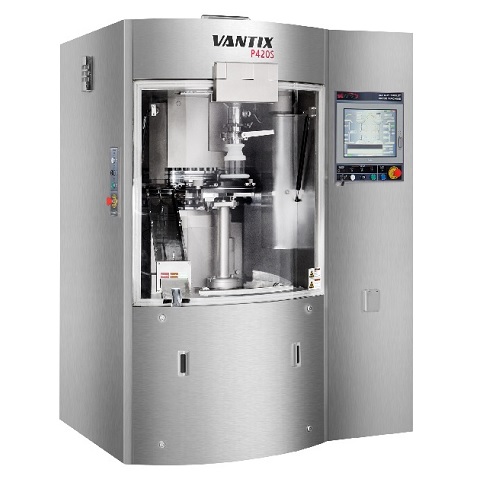
Single layer tablet press
High performance tablet presses for the modern production environment need to be fast, accurate an...
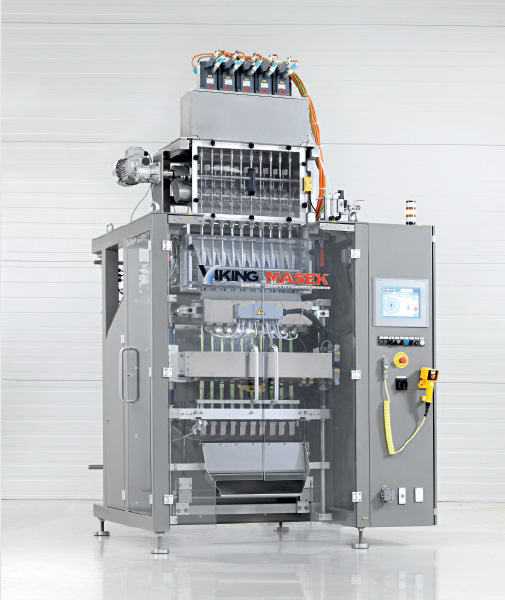
Stickpack Machine
If you are looking to pack your product into stick packs from 17 x 40 mm to 100 x 200 mm in size, you may b...
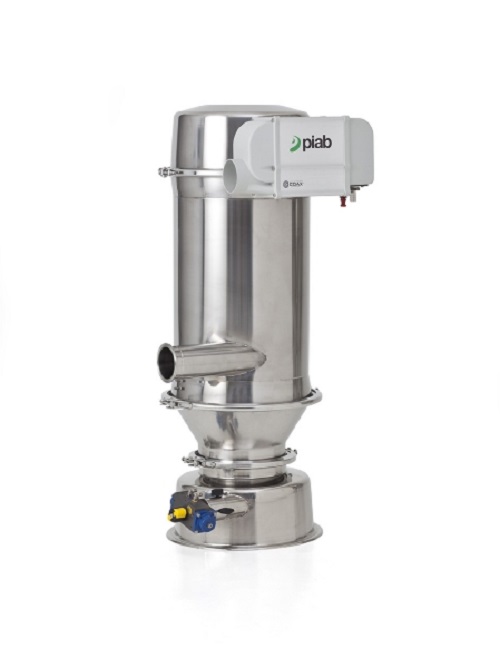
Premium vacuum conveyor
When you have a need to tailor make your conveyor and still have the high requirement on hygiene, e.g...
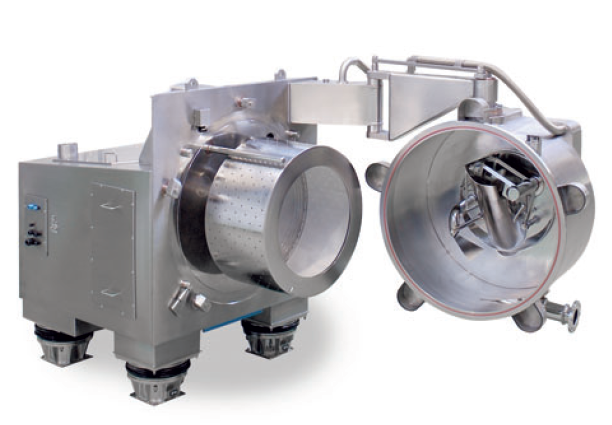
Horizontal pharmaceutical scraper centrifuge
For slurries difficult to discharge, a scraper can improve process reliabilit...
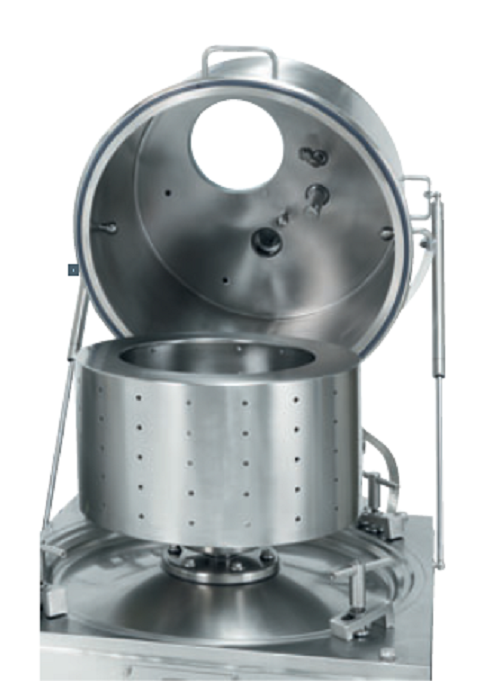
Isolator centrifuge
For transferring highly active pharmaceutical ingredients (HAPI) without contamination from the isolator ...
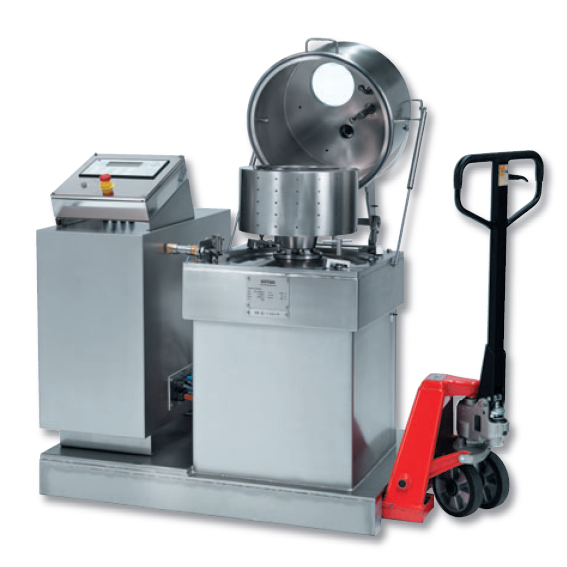
Mobile pilot plant centrifuge
The system is perfectly suited for pilot plants as well as small-quantity productions in the f...
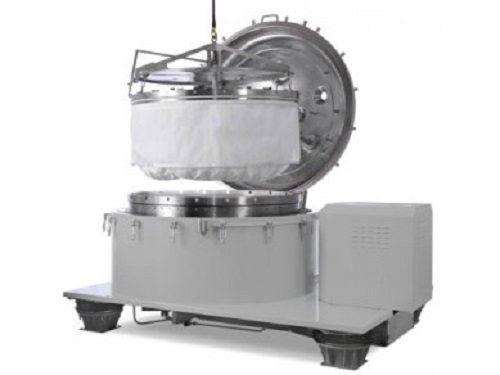
Vertical top discharge centrifuge
Discharge solids vertically upward through manual action, optionally using a filter bag o...
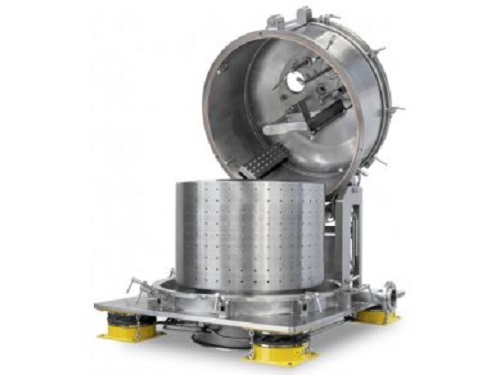
Vertical peeler centrifuge
A vertical peeler centrifuge is used to separate solids, usually to separate fine particles from ...
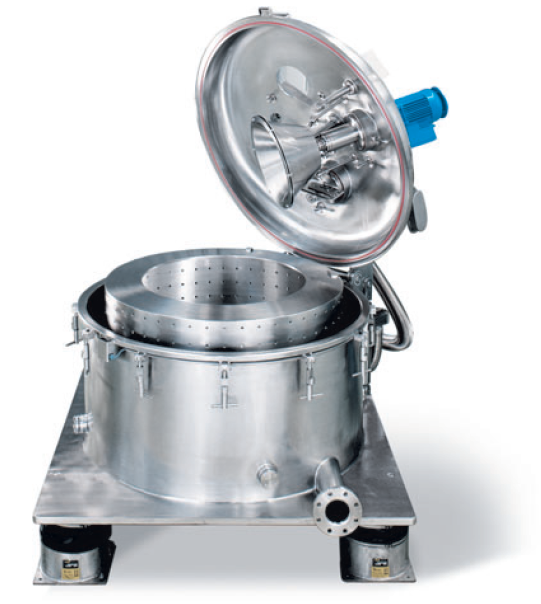
Vertical scraper centrifuges
Vertical Bottom discharge Centrifuges work discontinuously, discharging the solids to the botto...
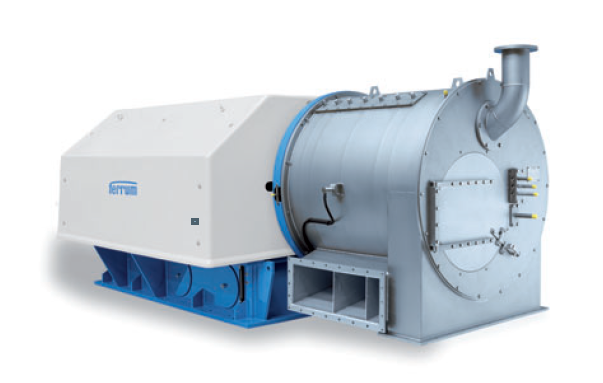
Pusher centrifuge
Pusher centrifuges are continuously operating filter centrifuges and can have several basket stages dependi...
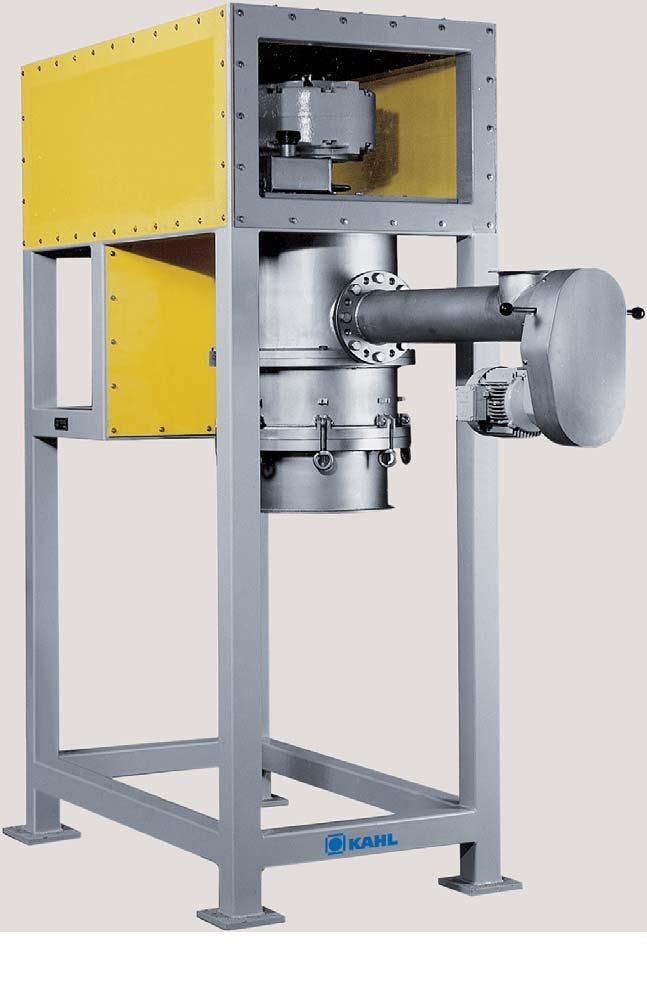
Pelleting press with overhead drive
Production of certain pelletized products requires working with output products of a pa...
